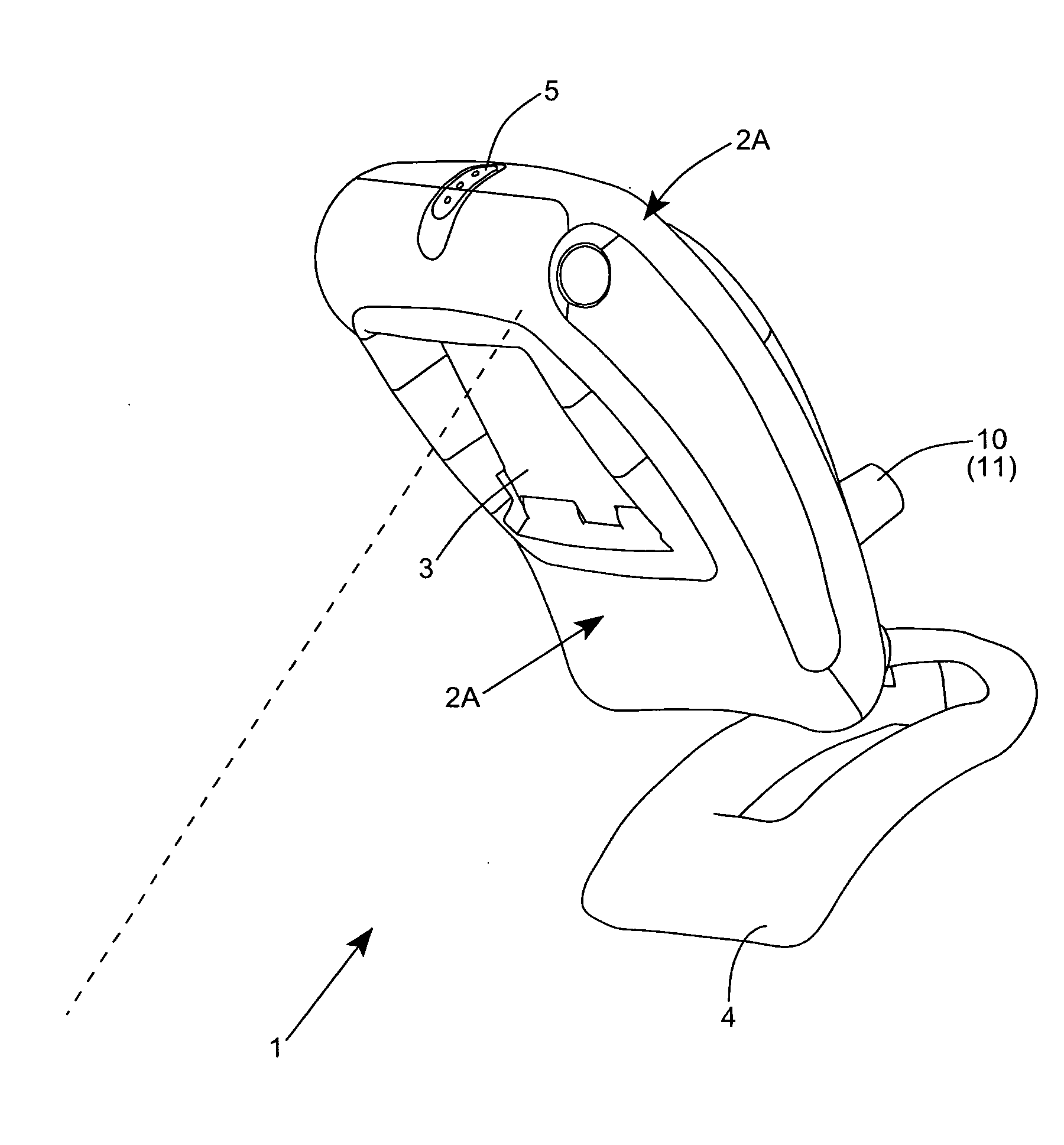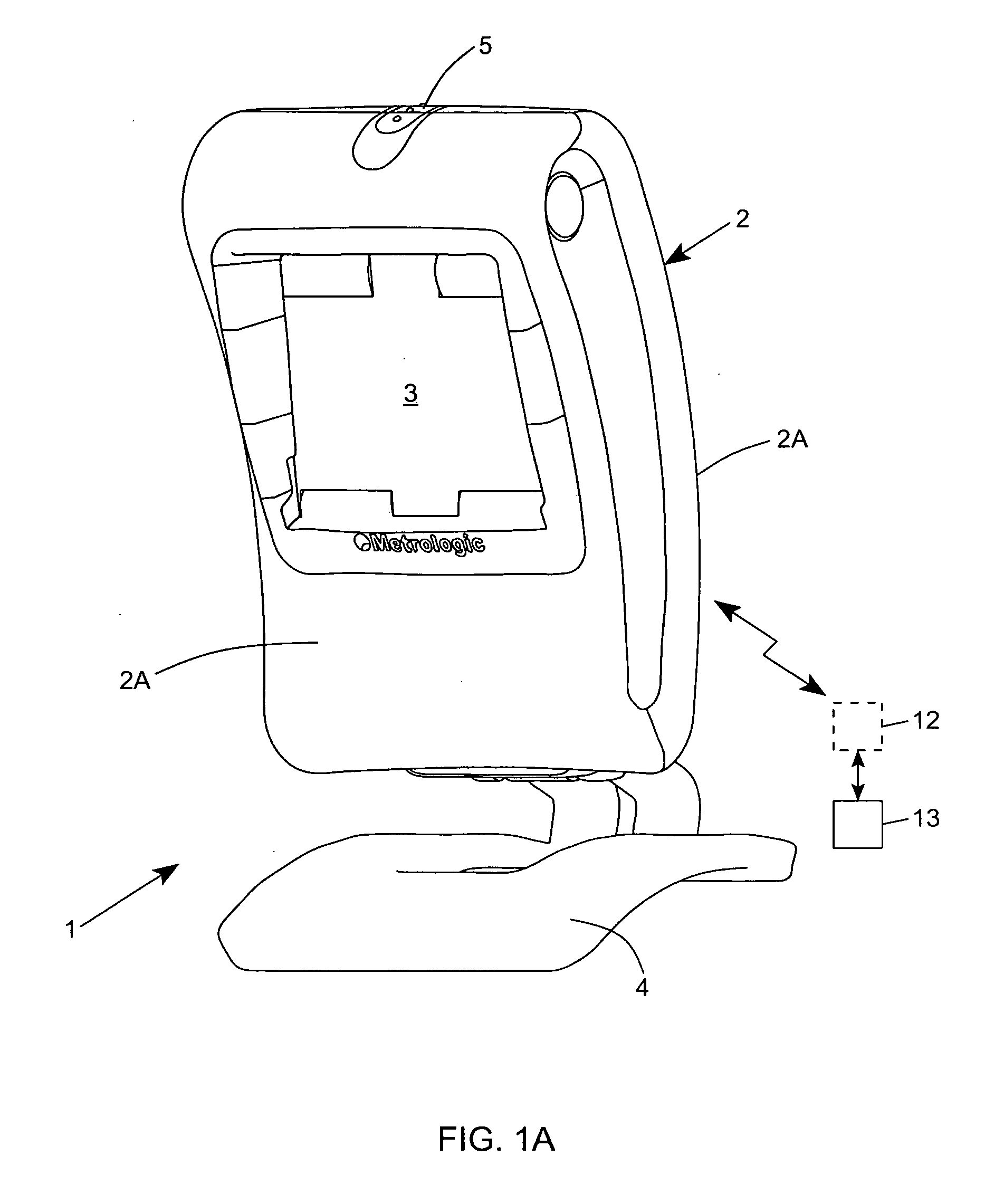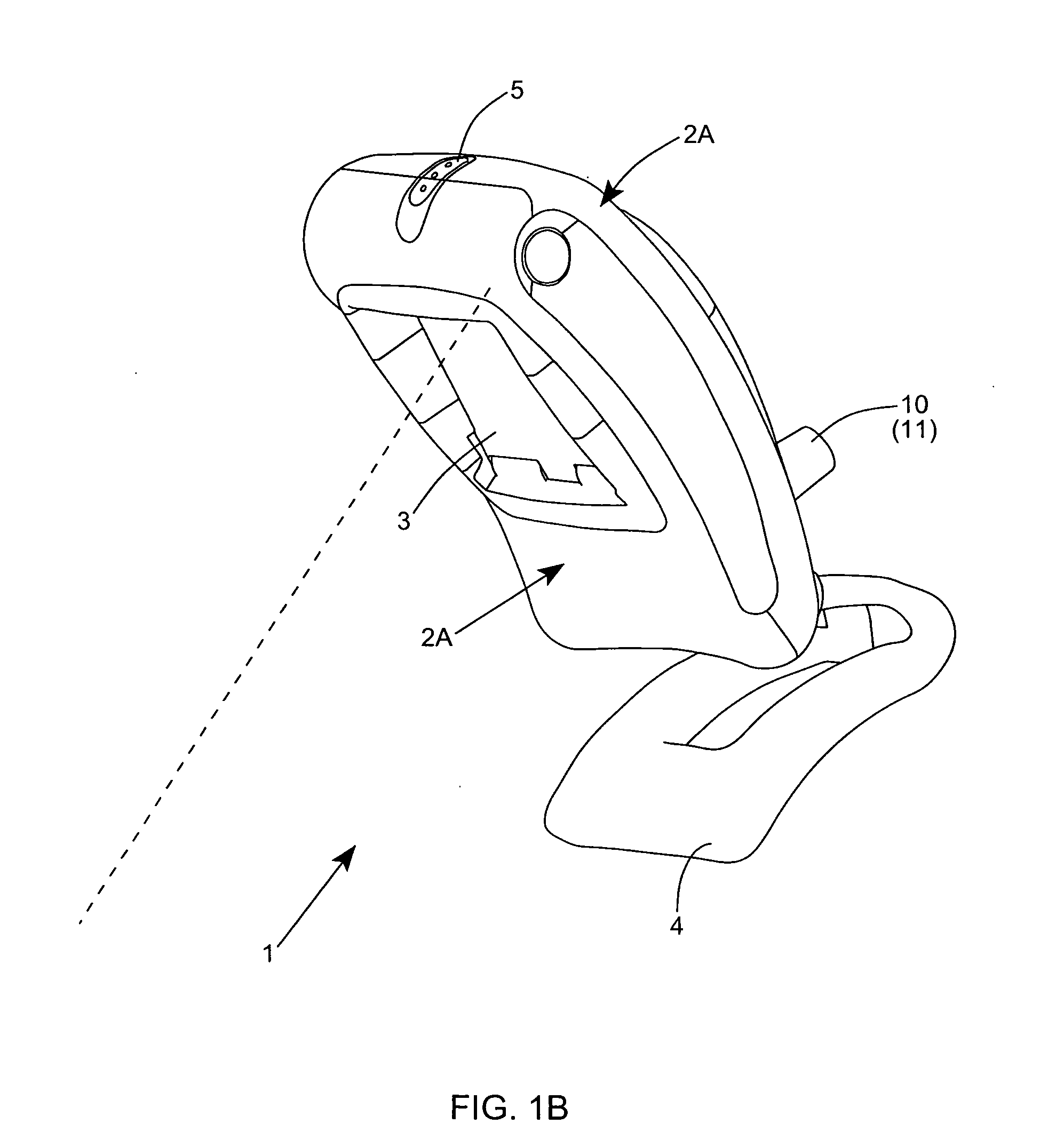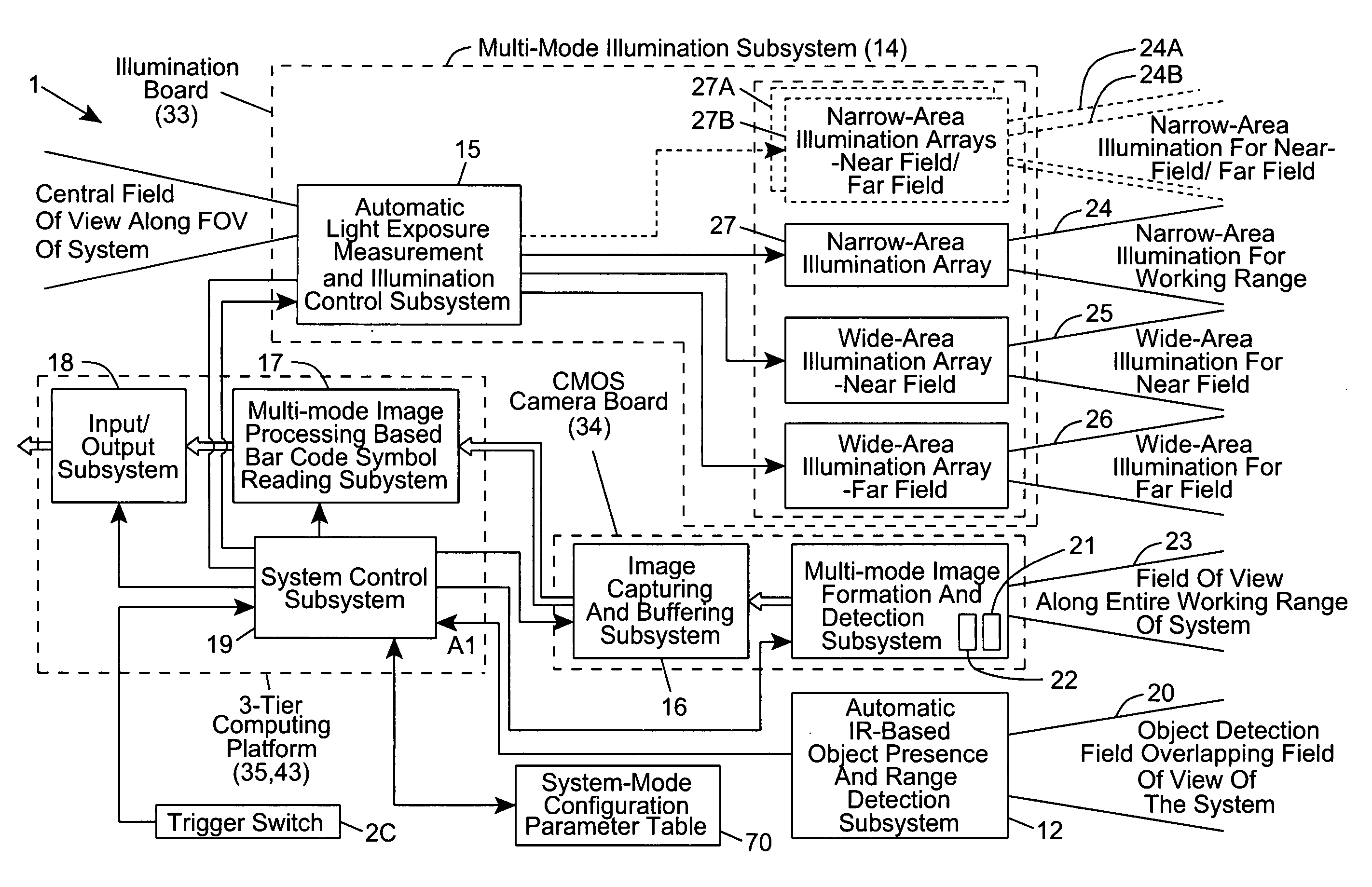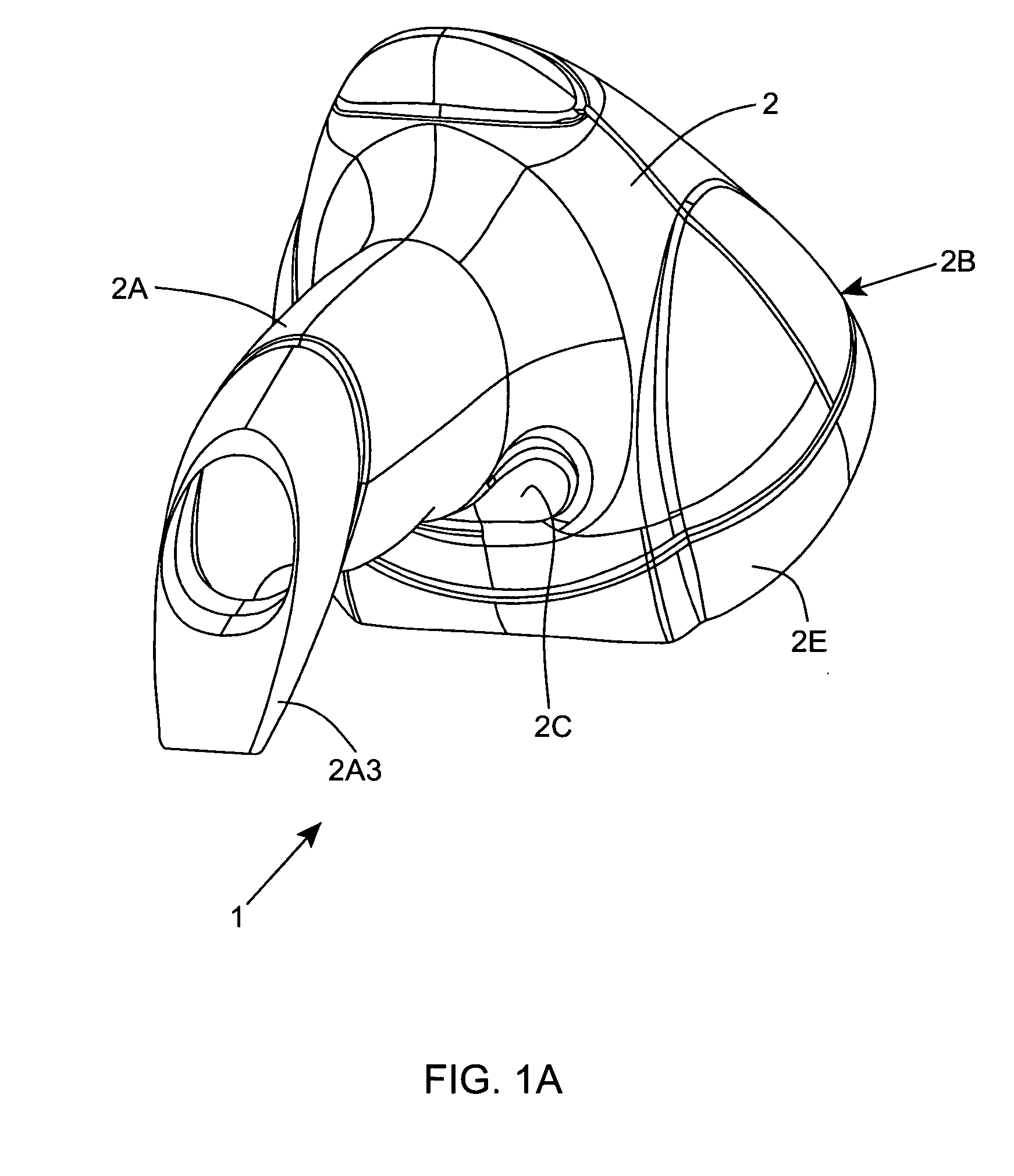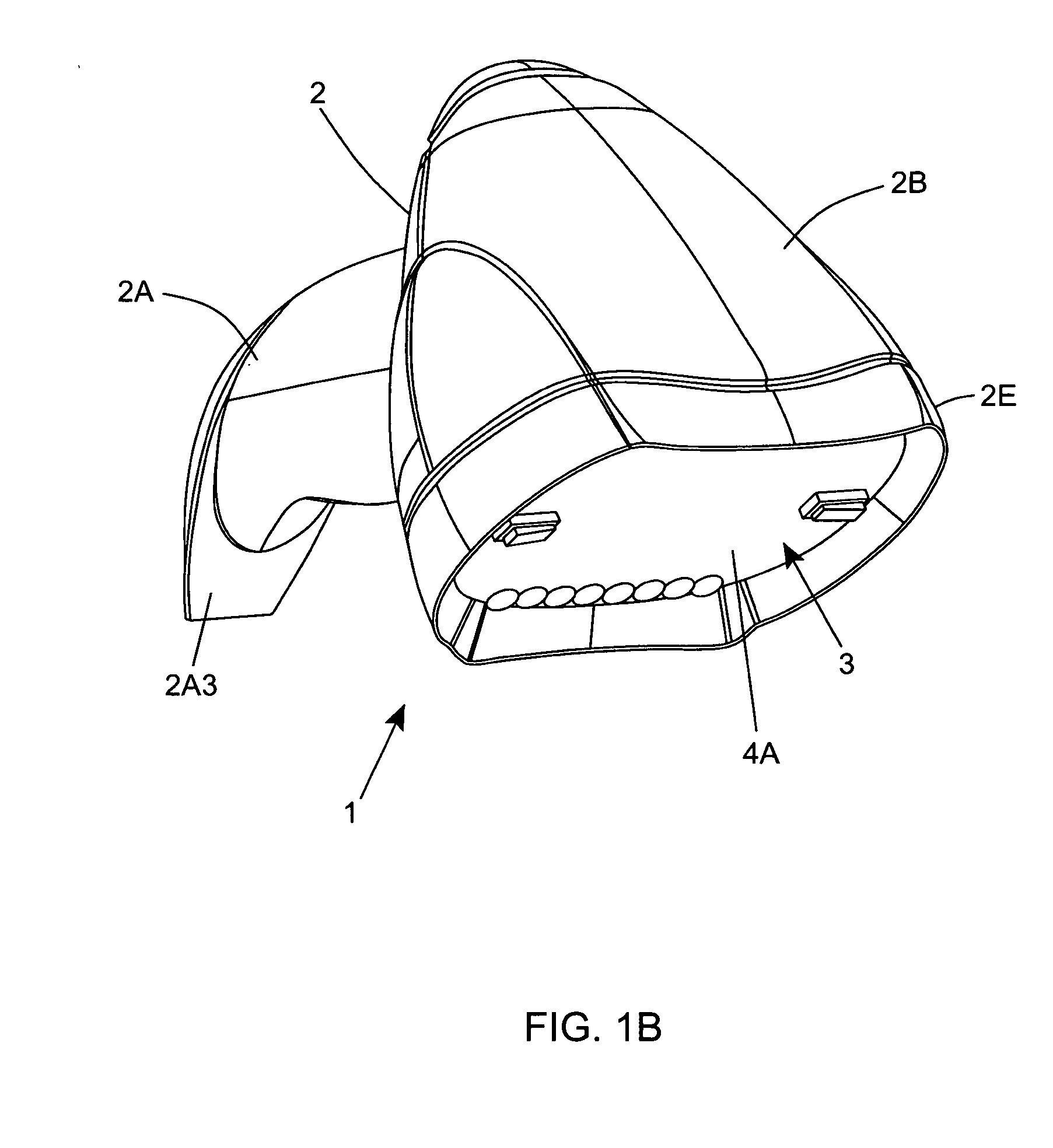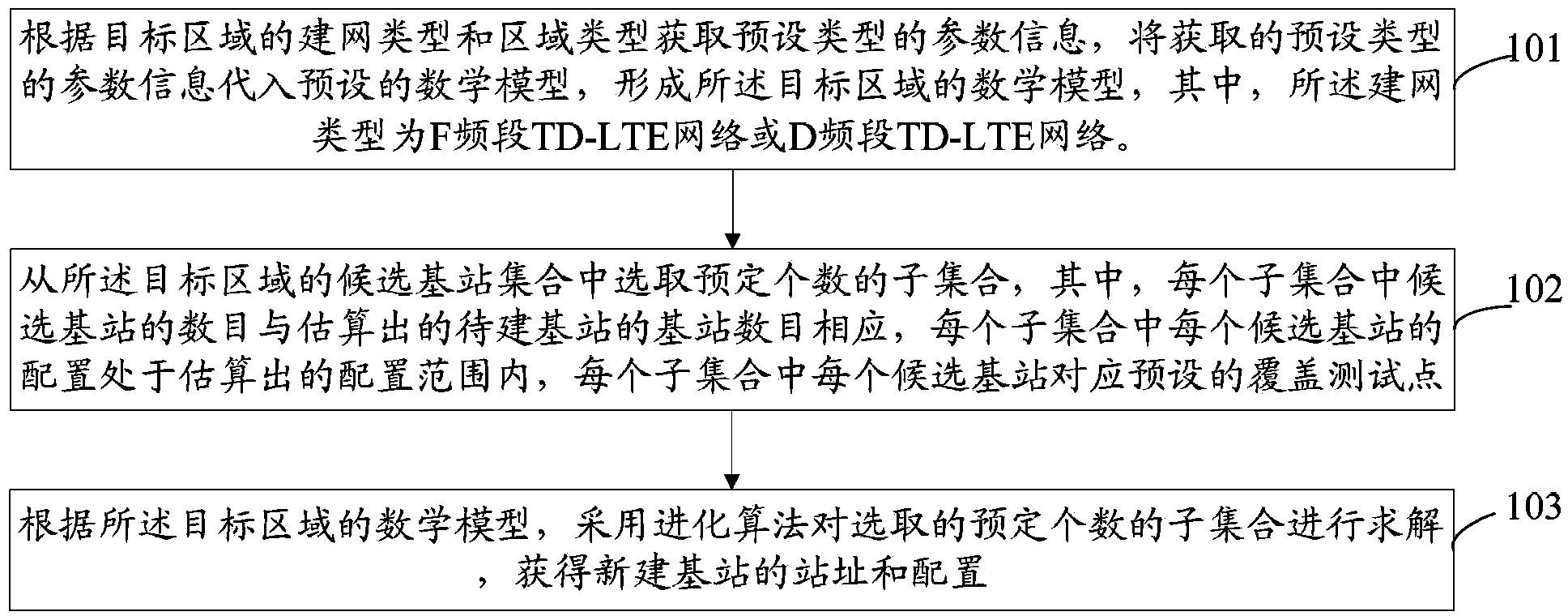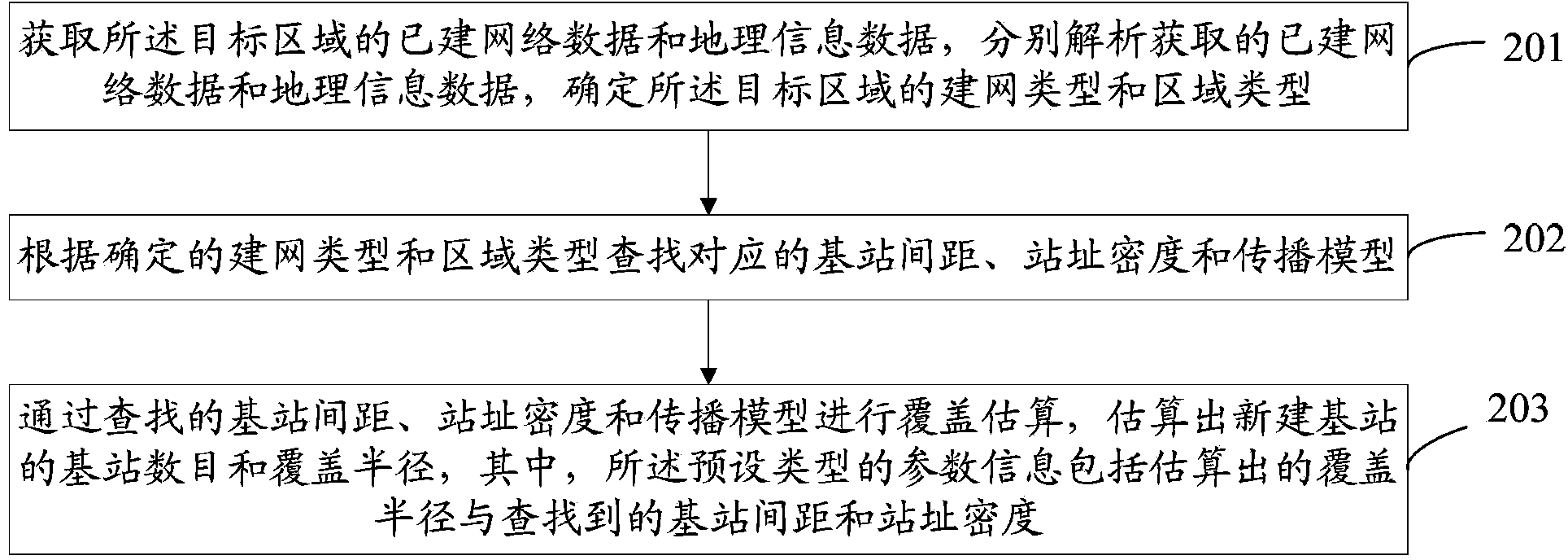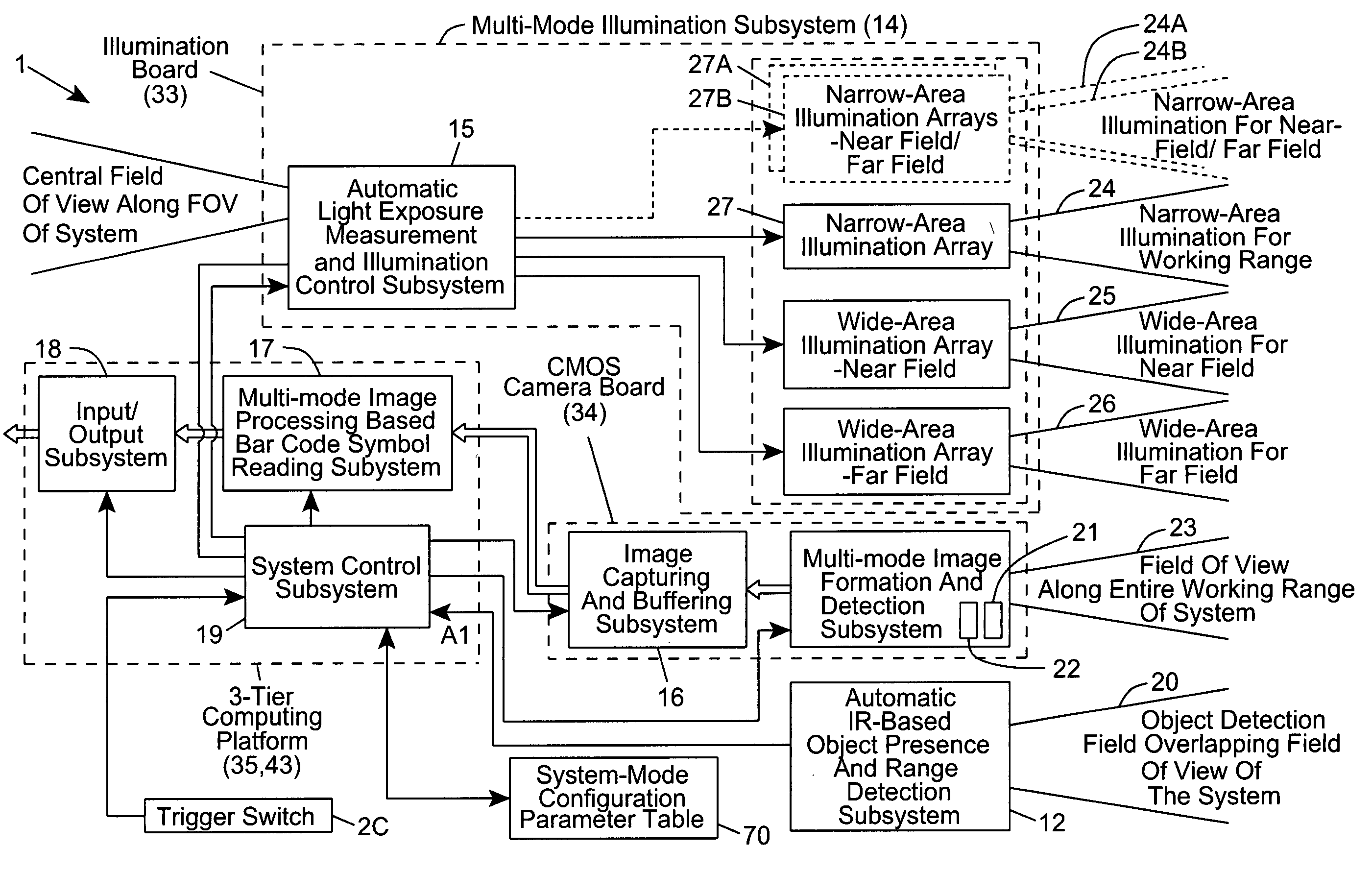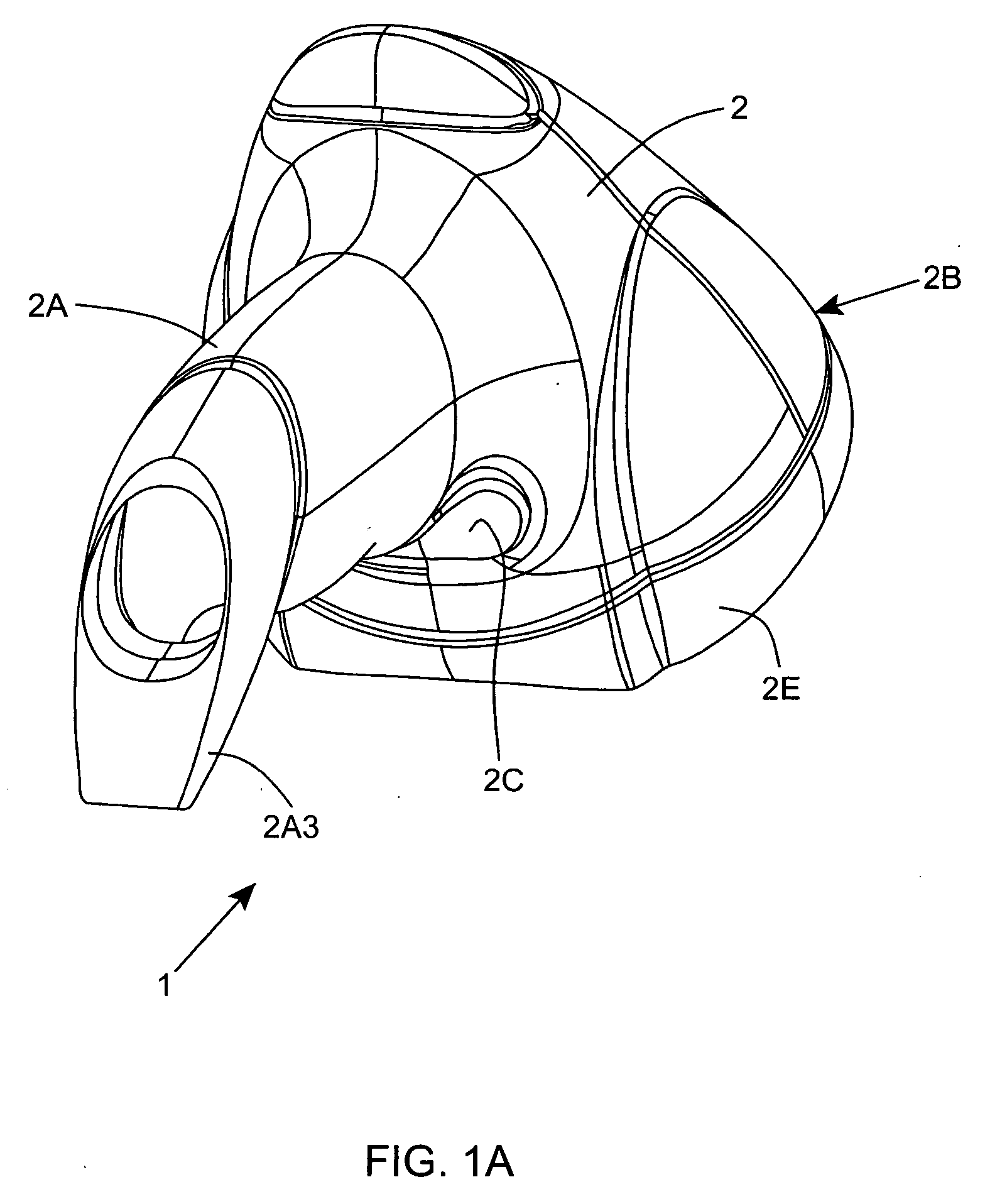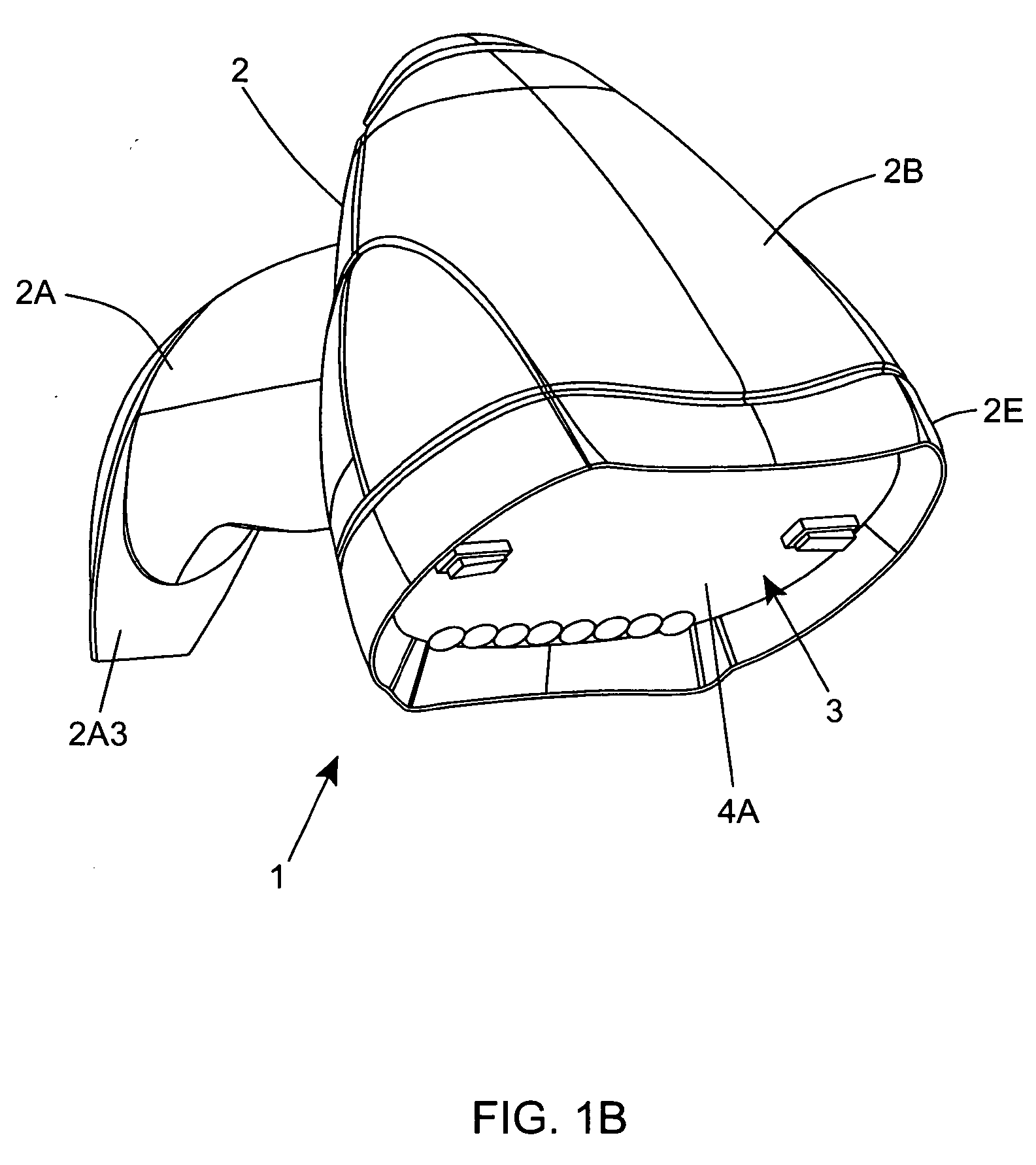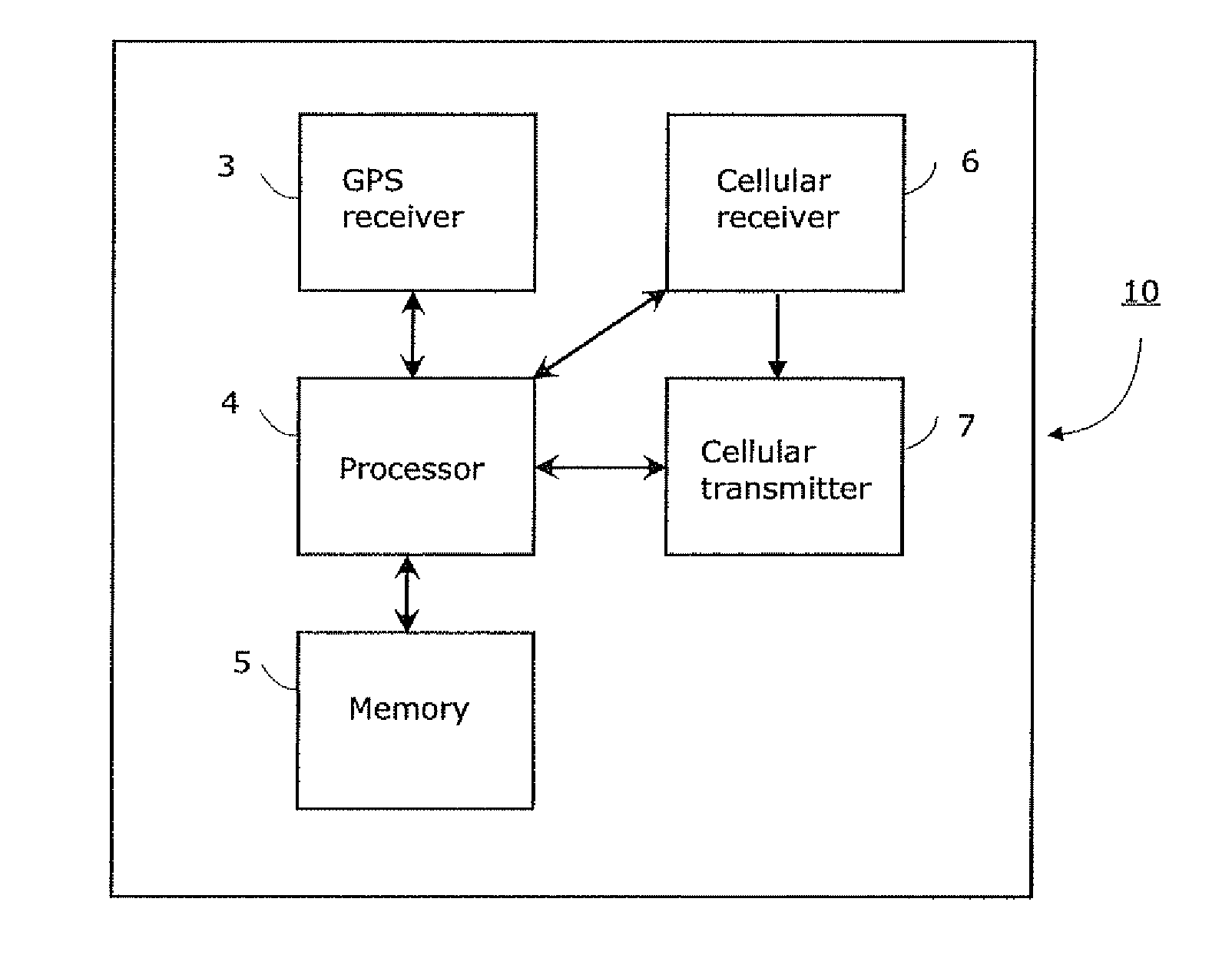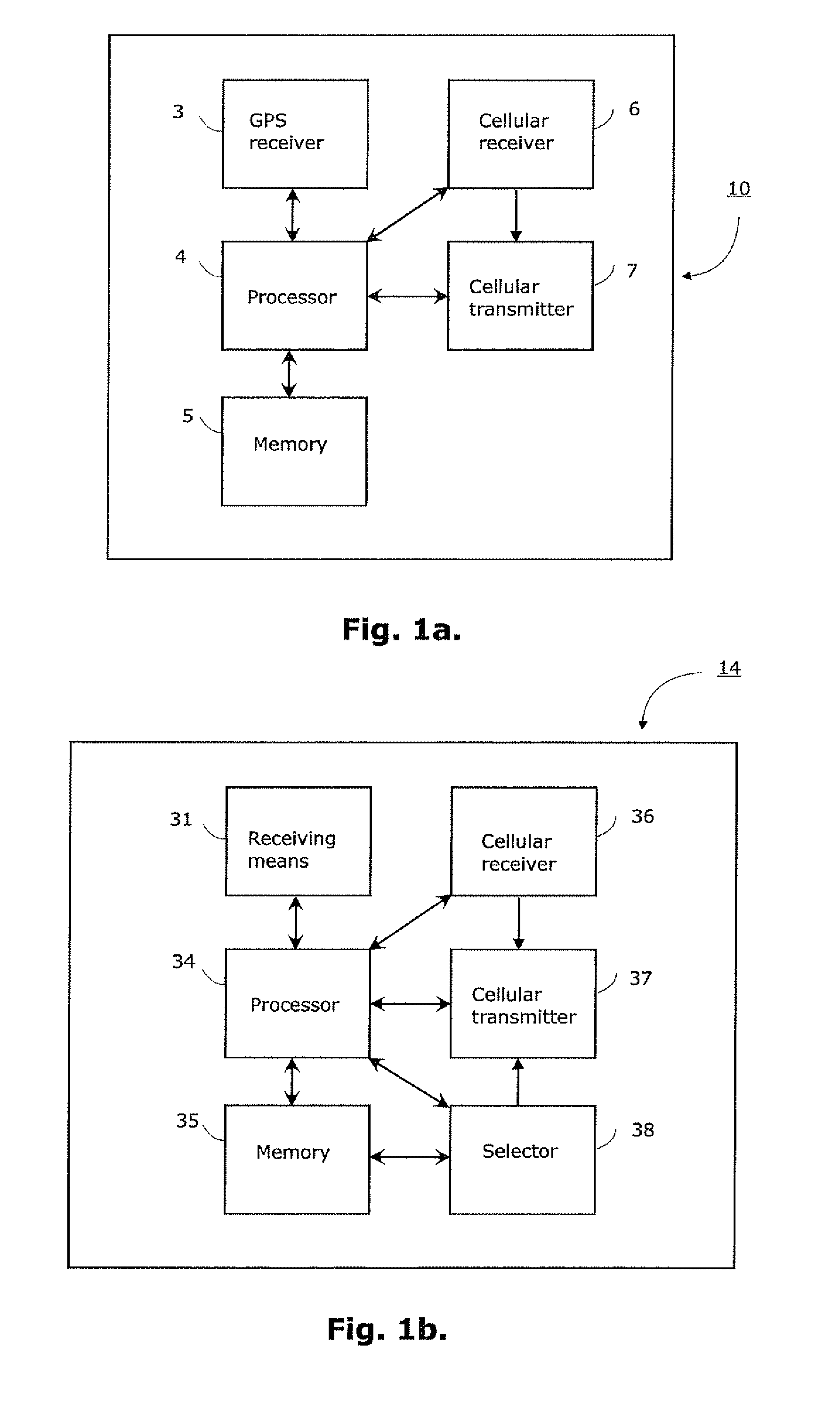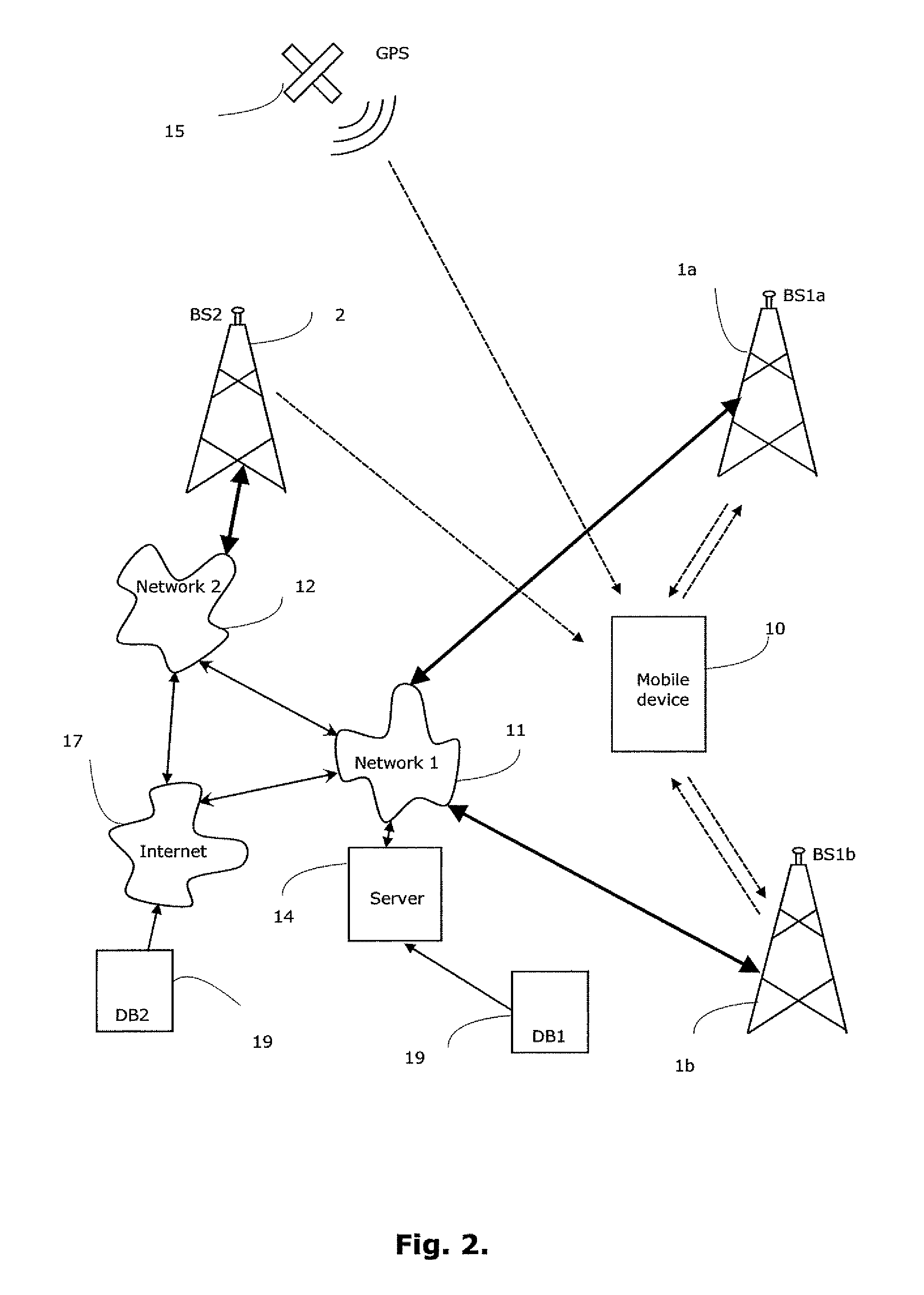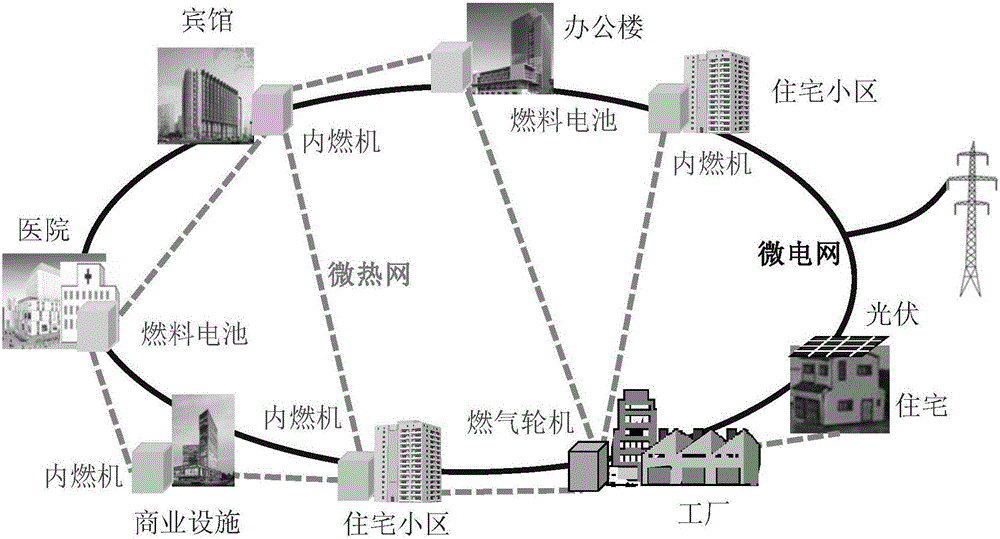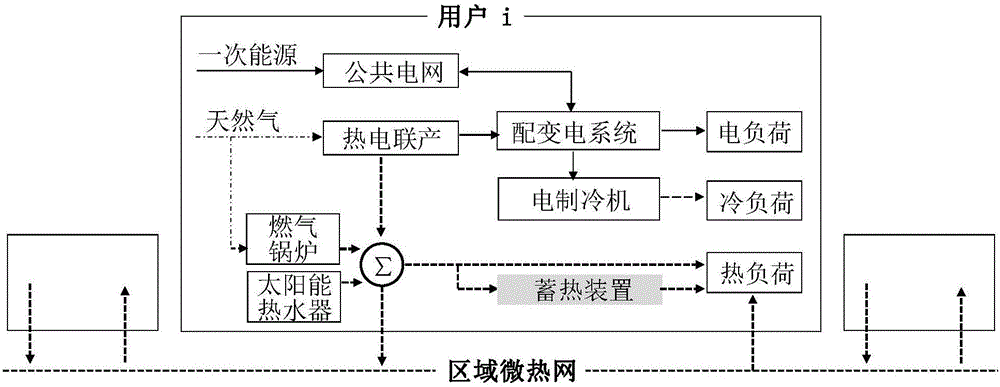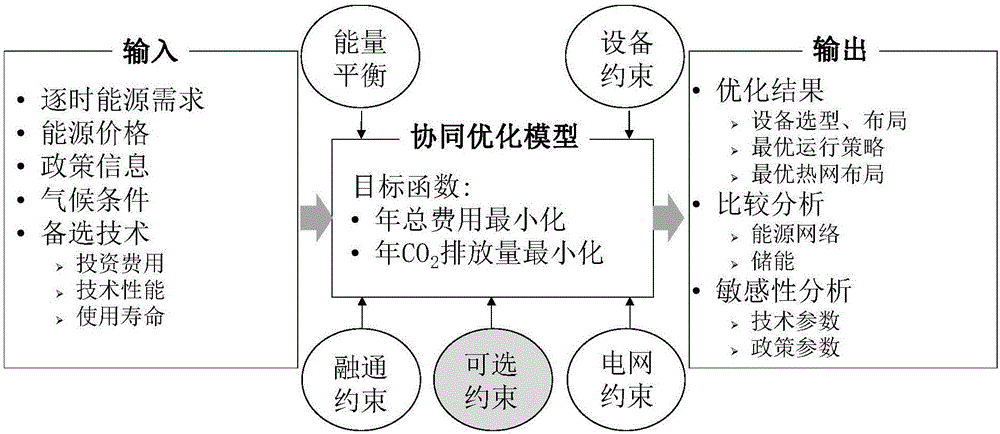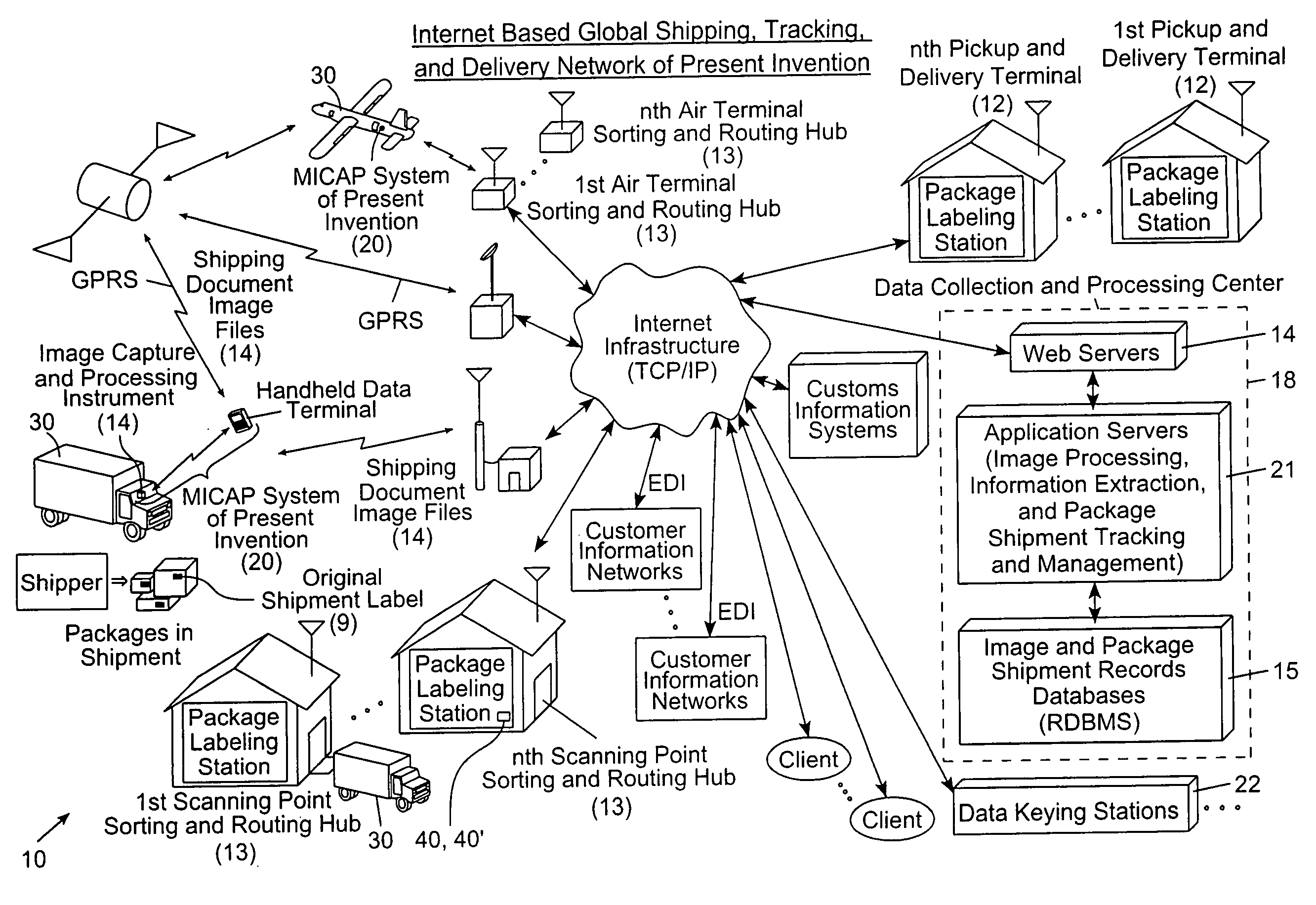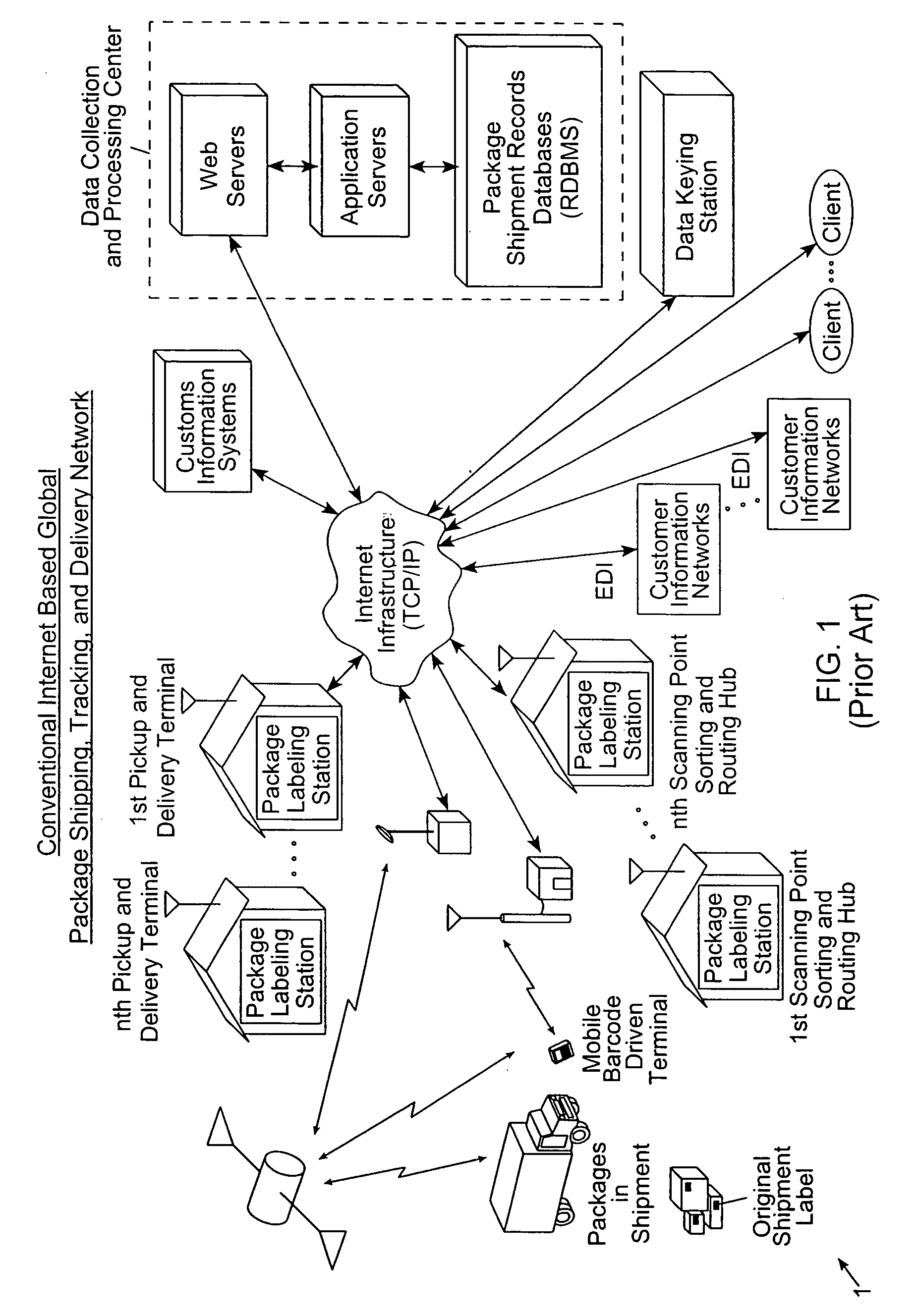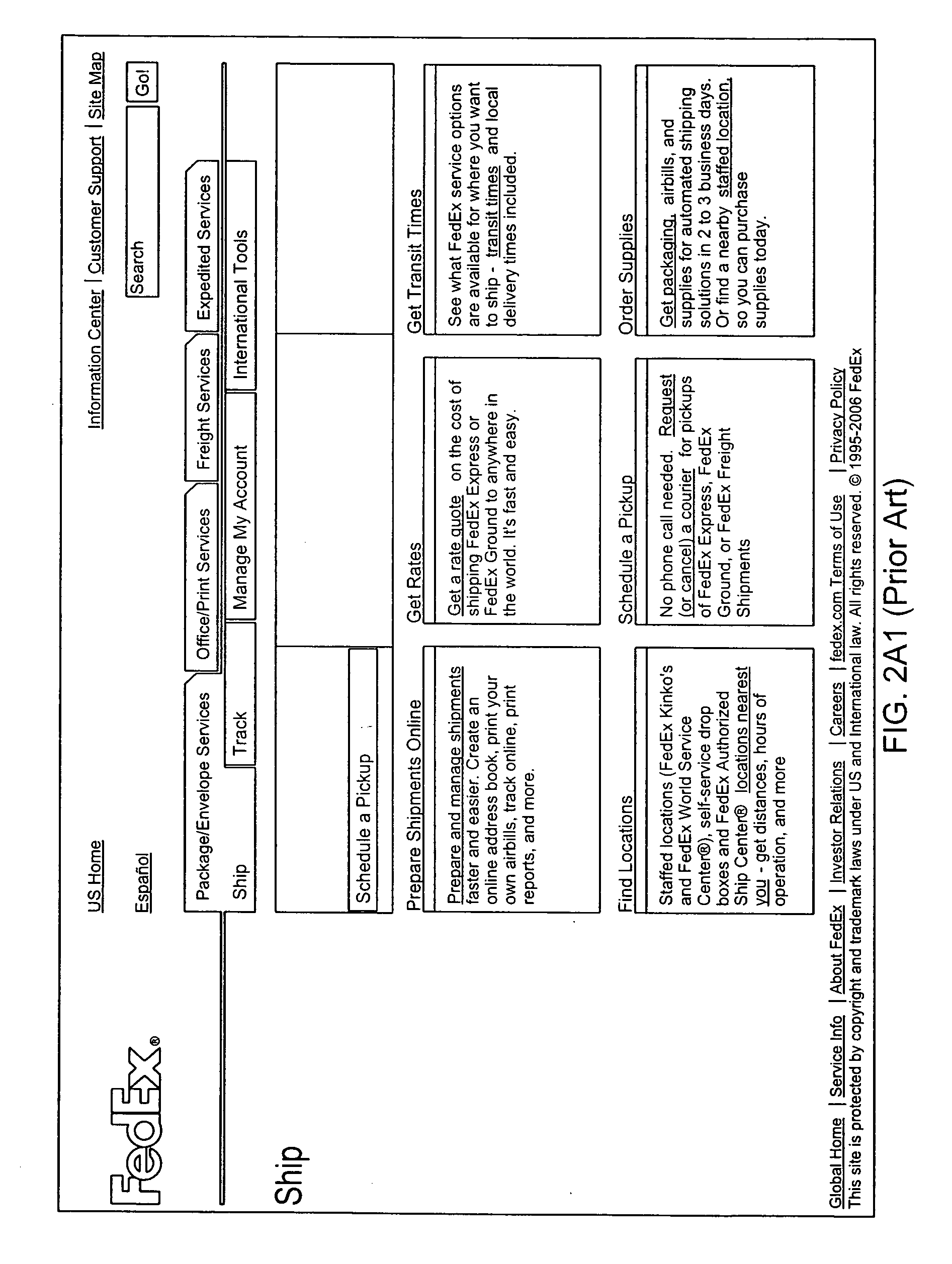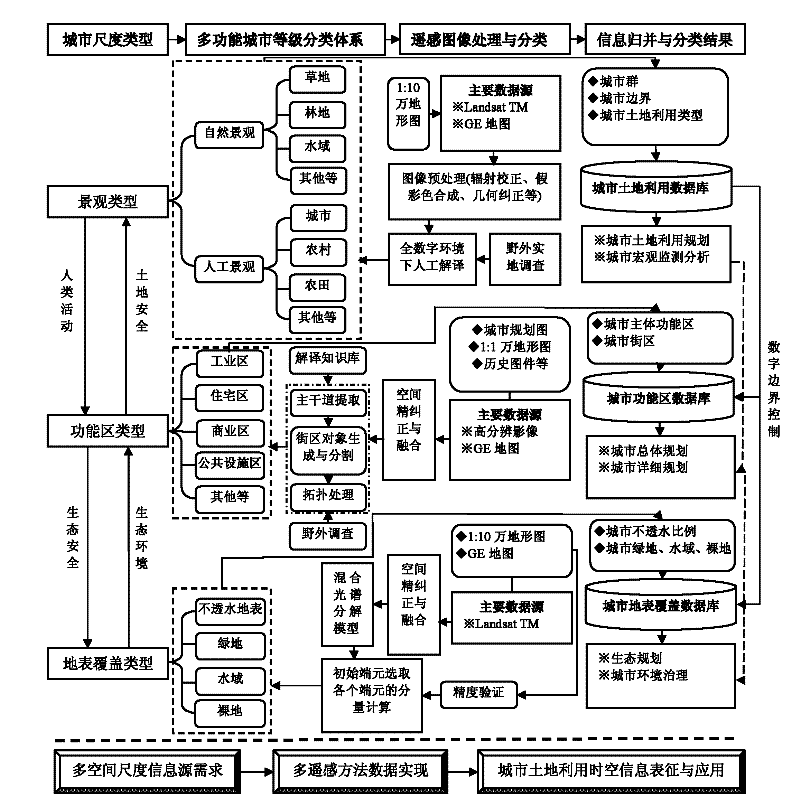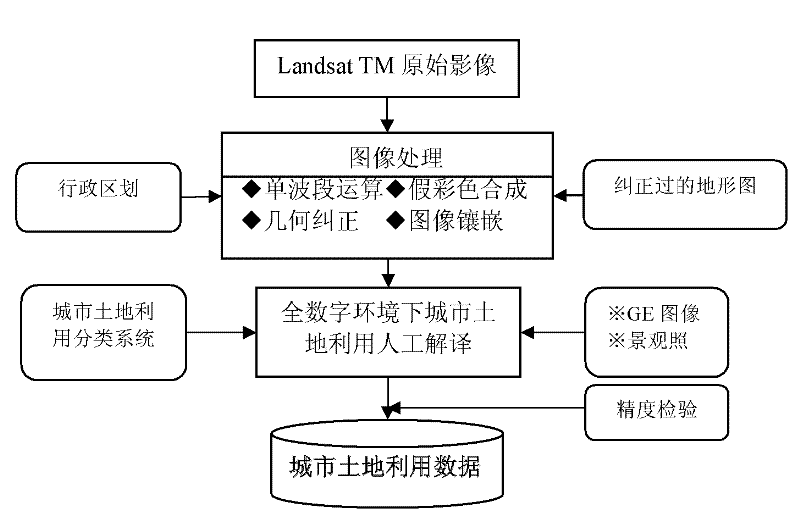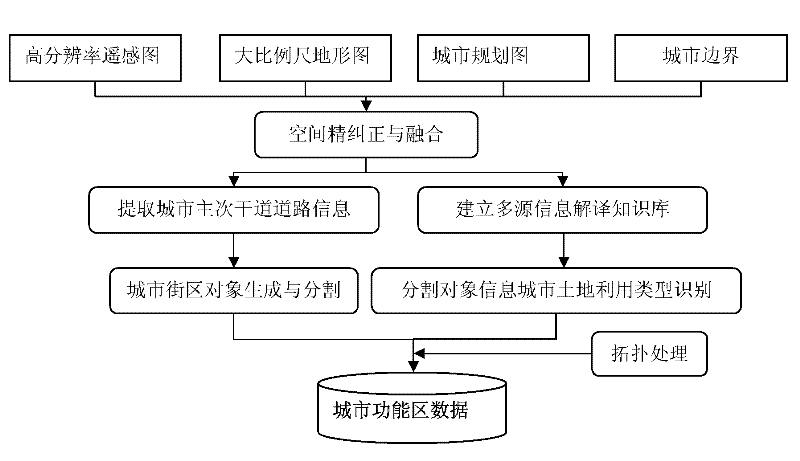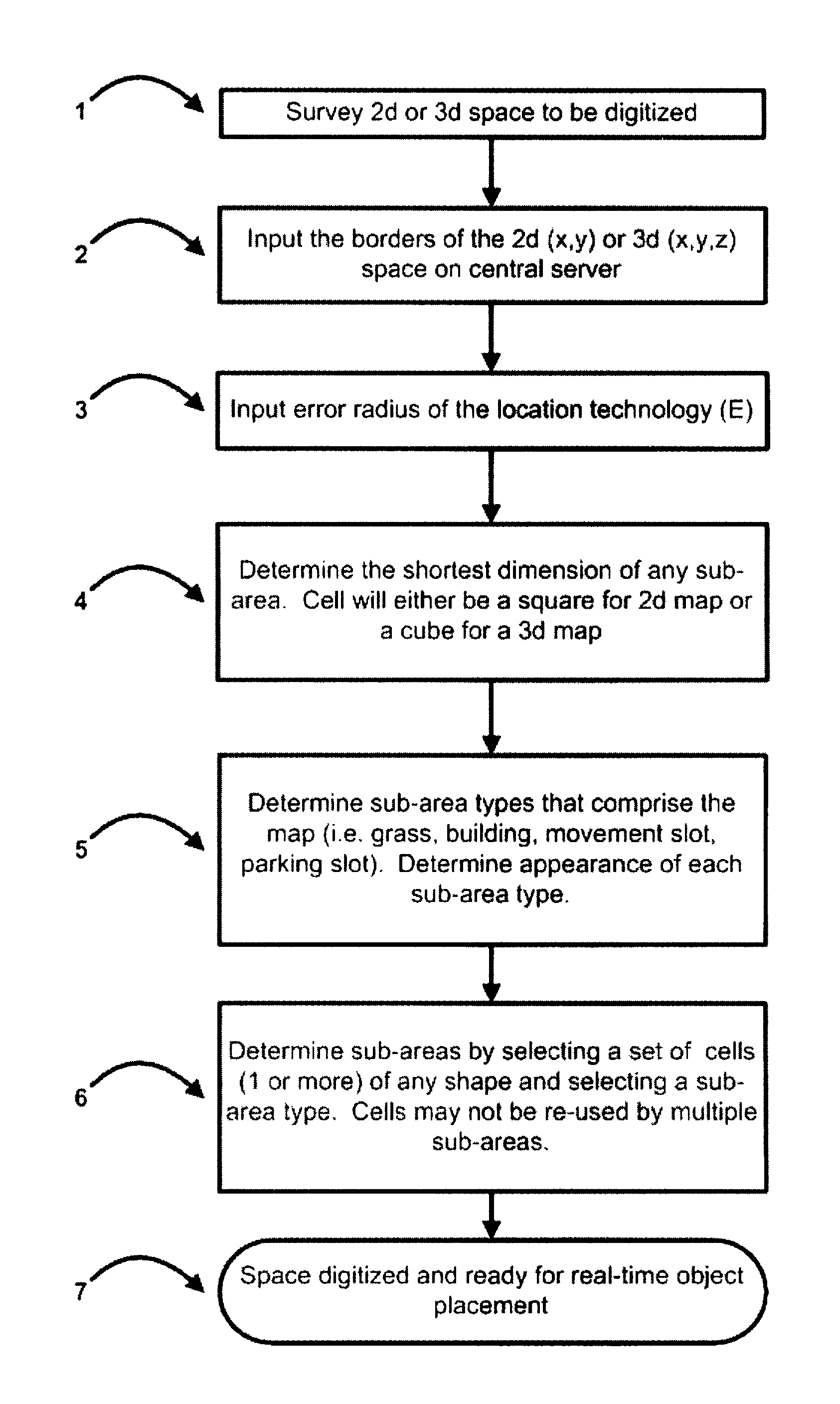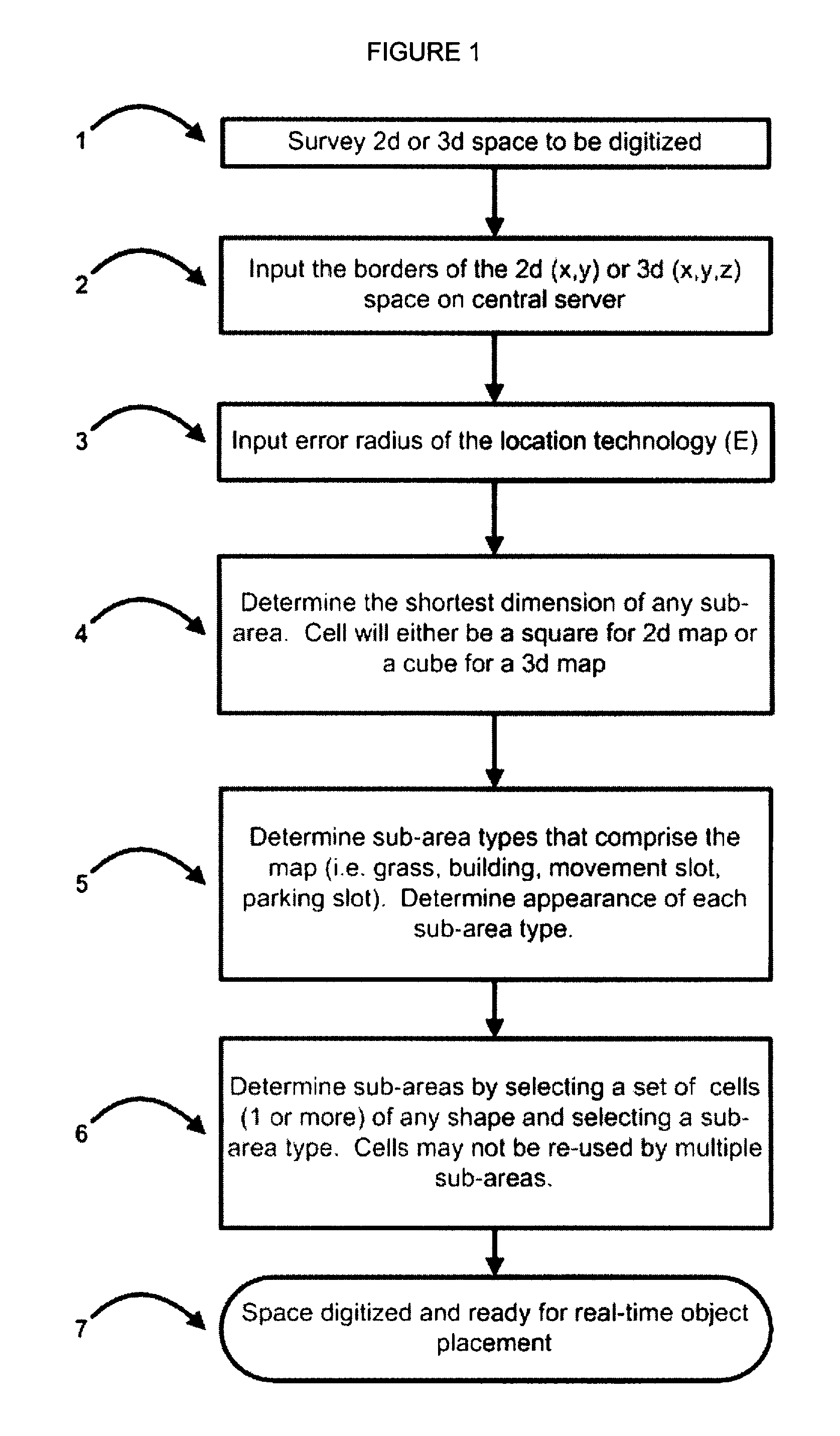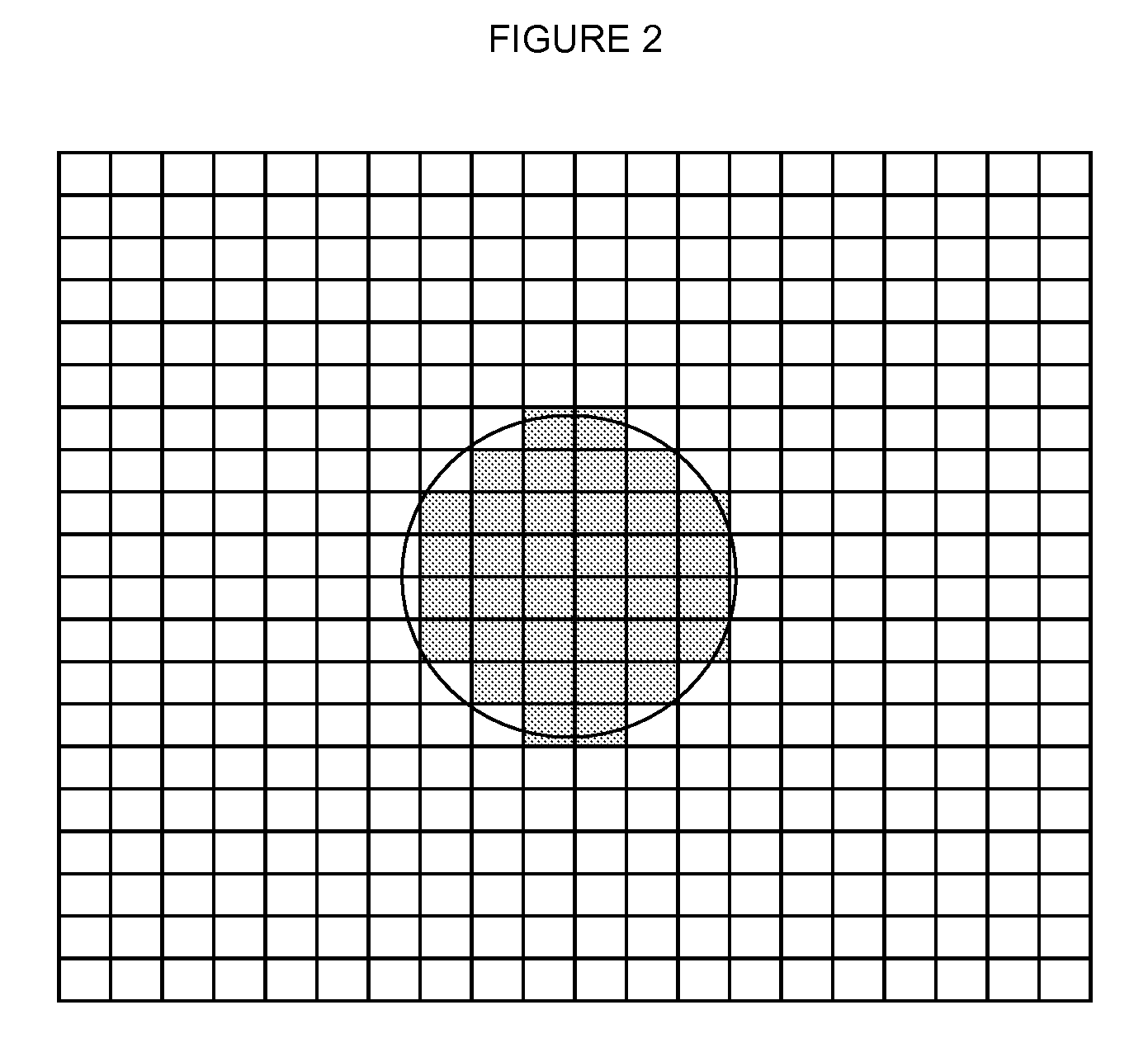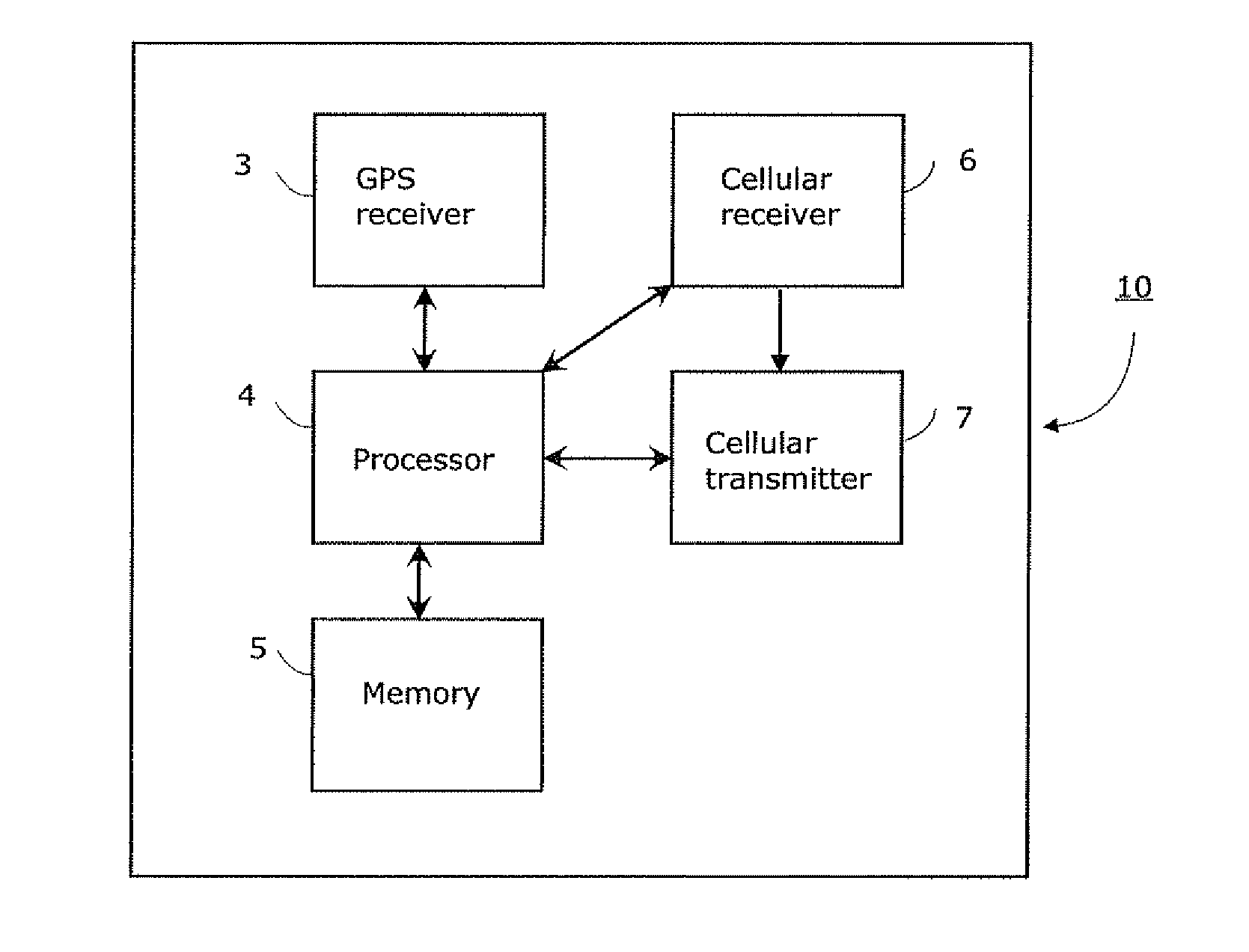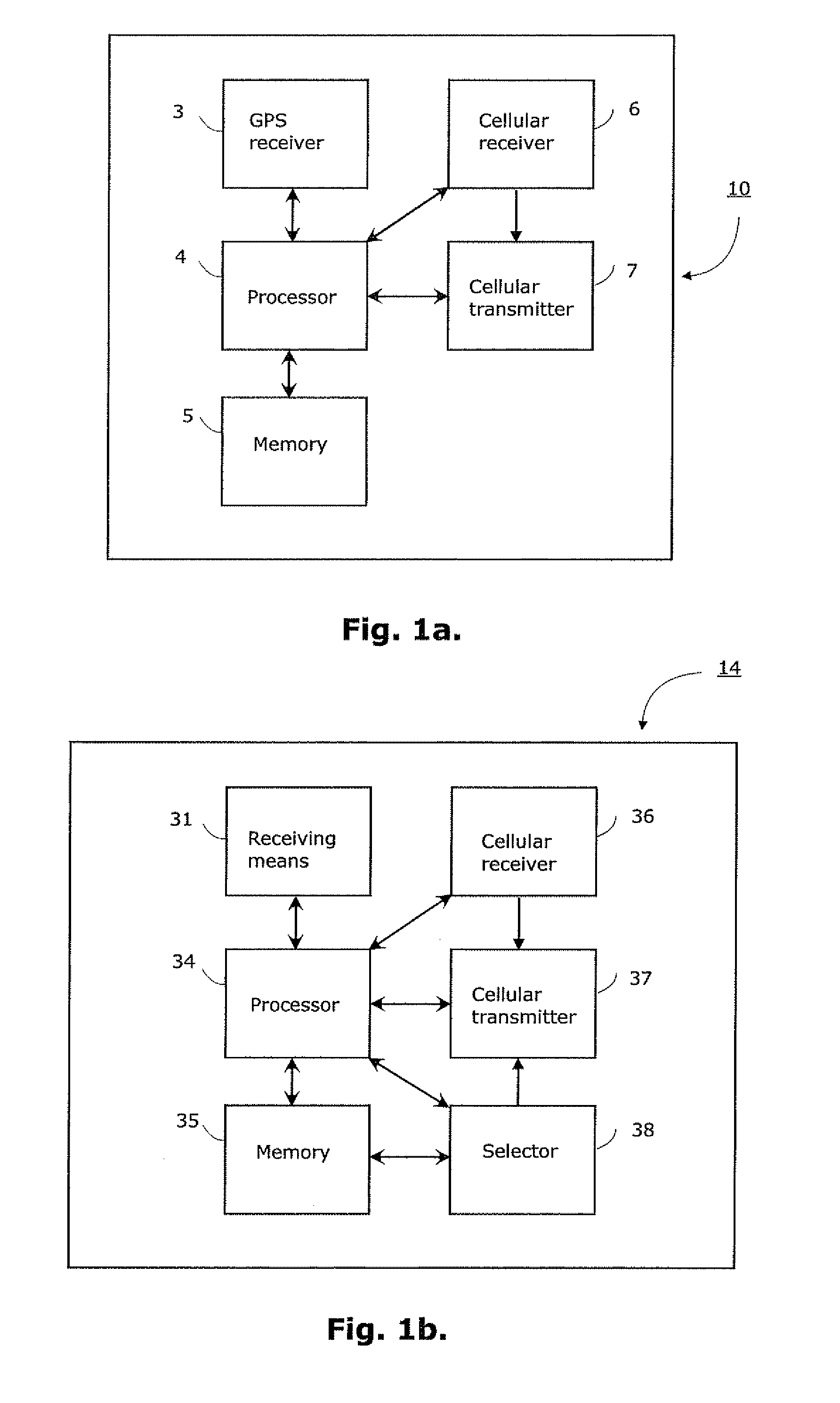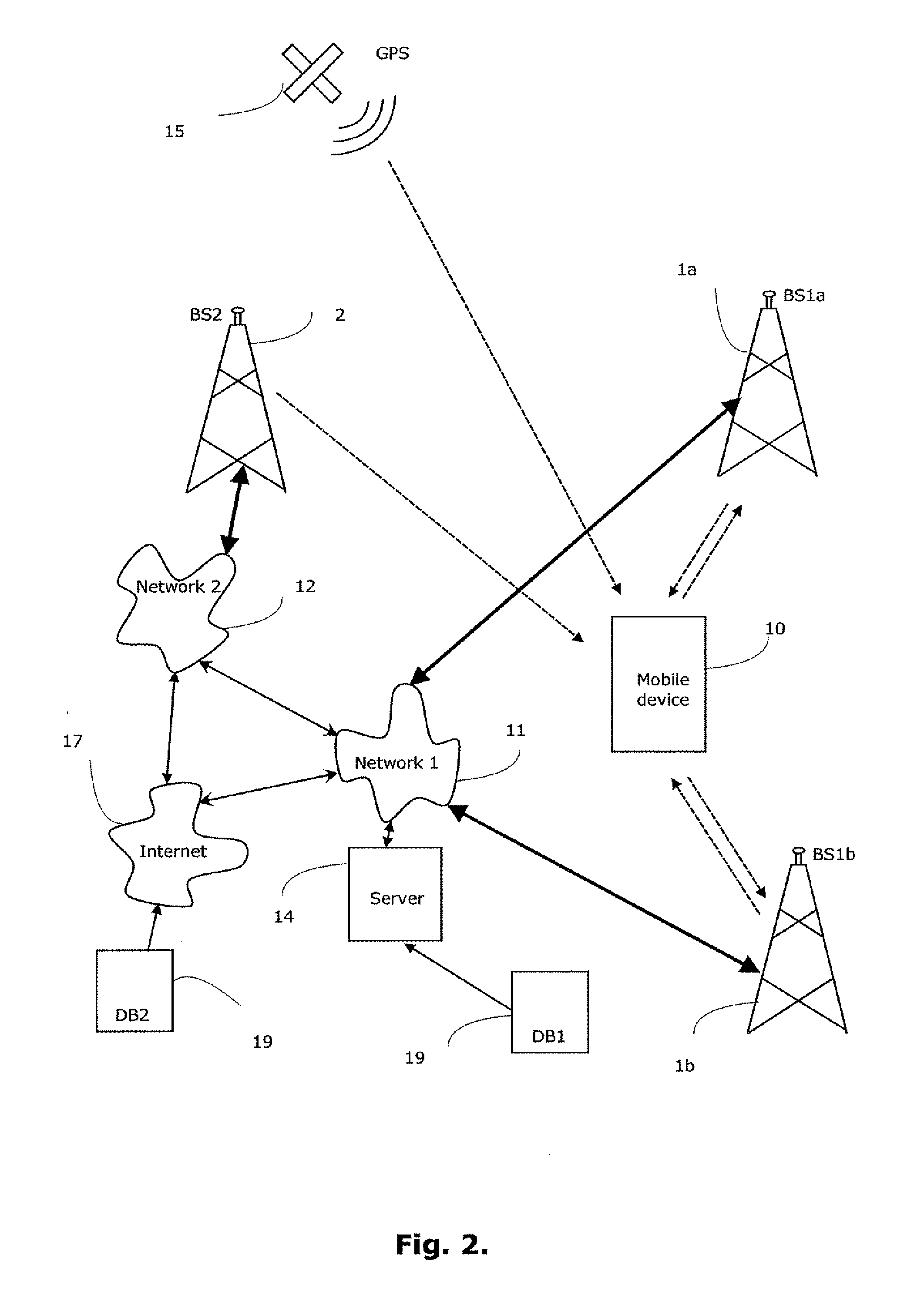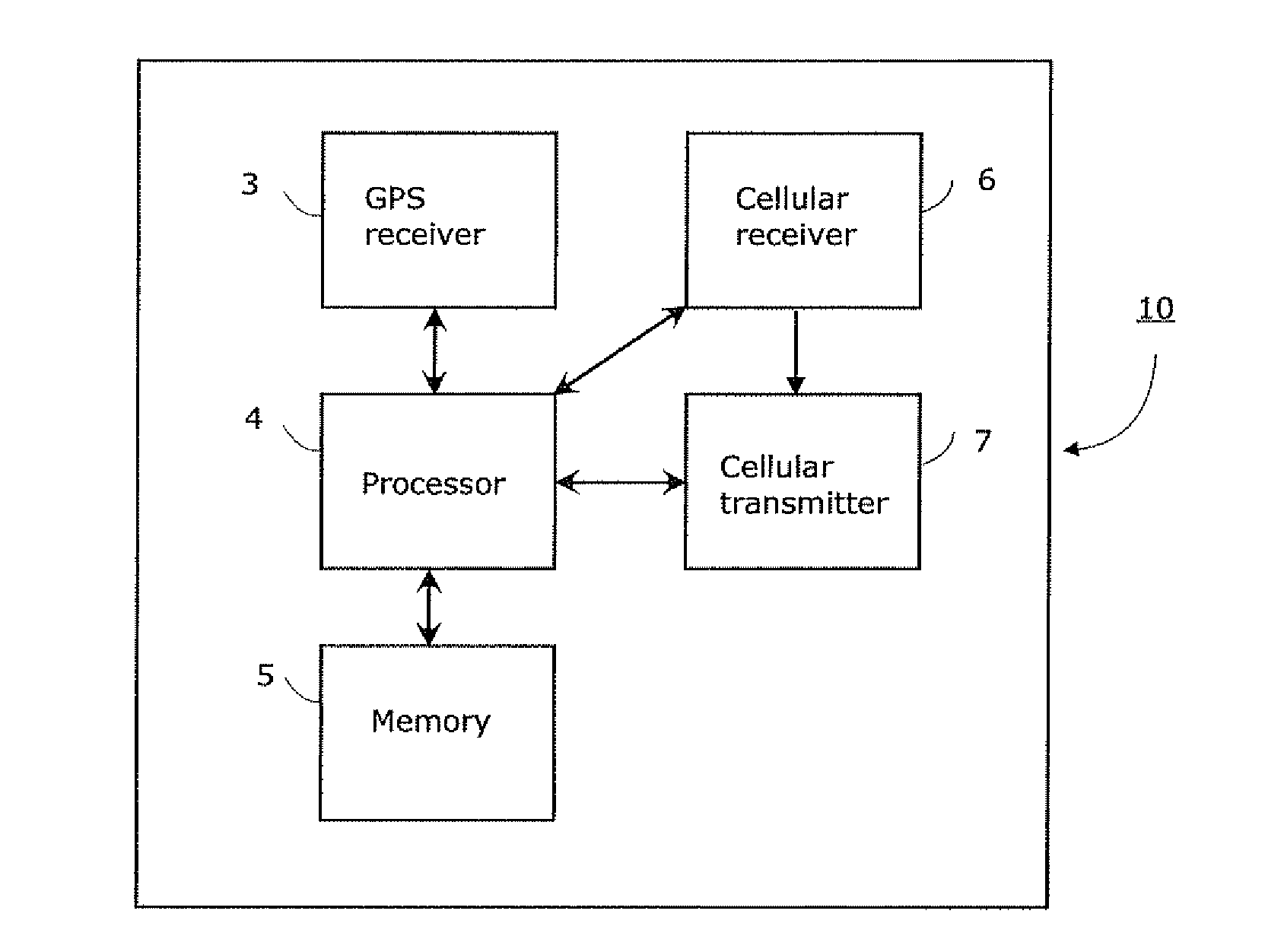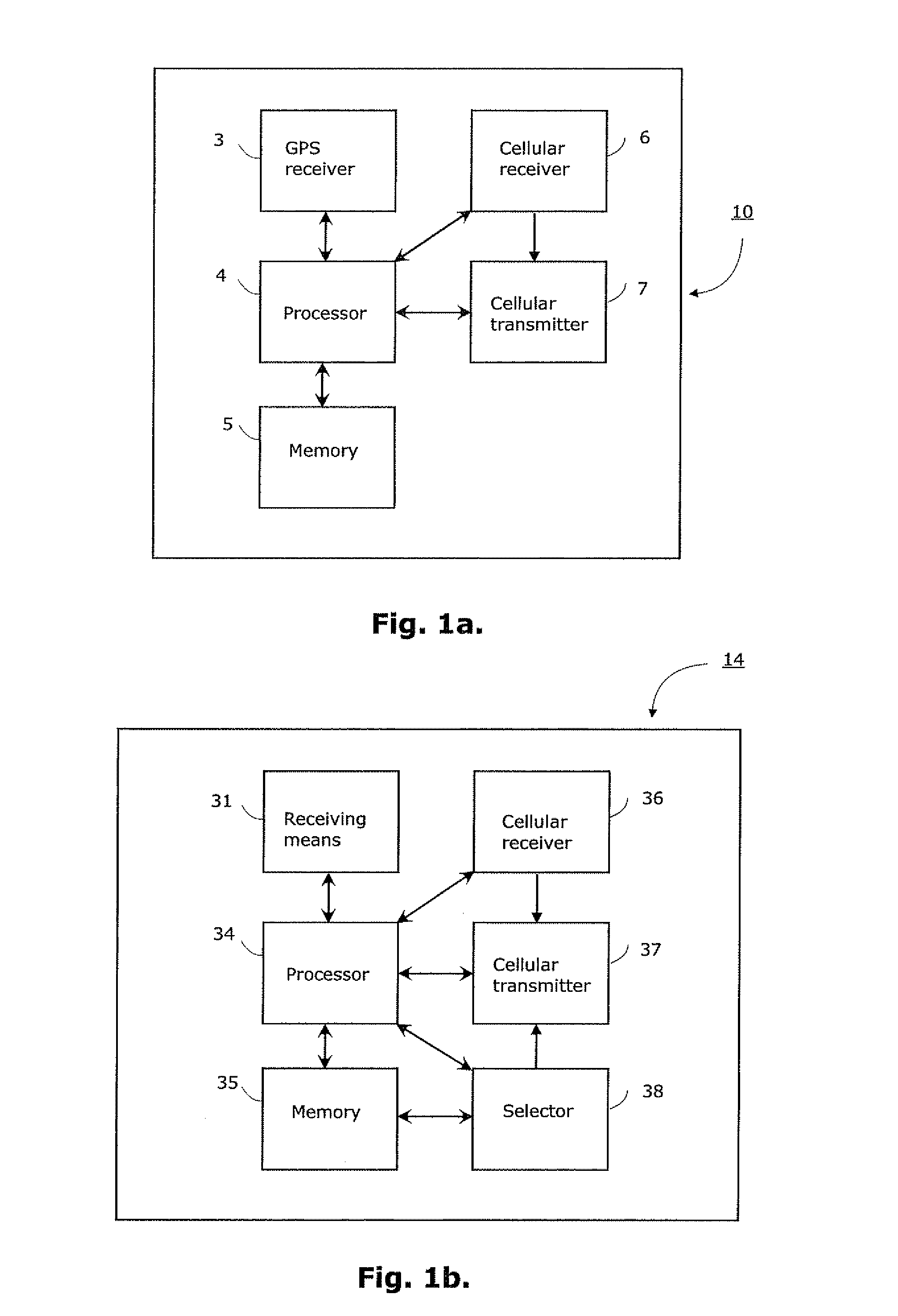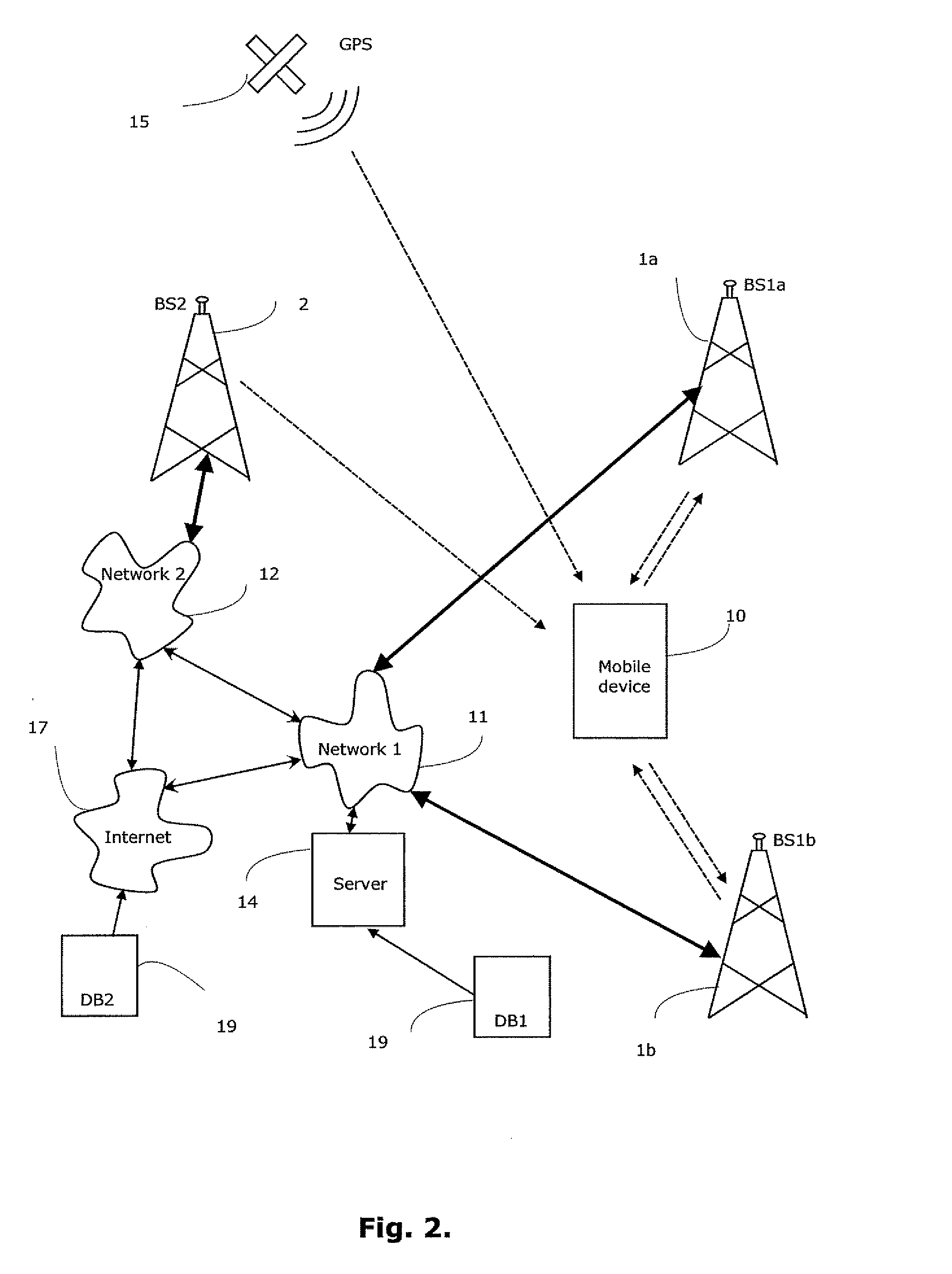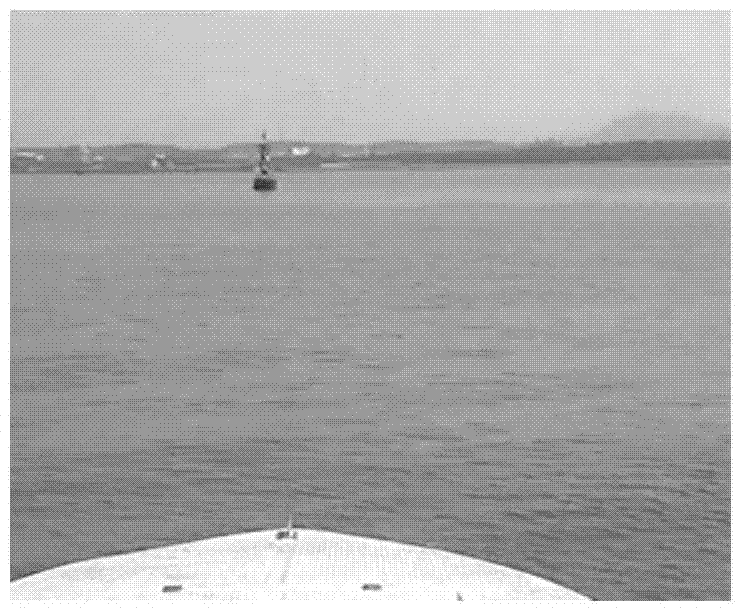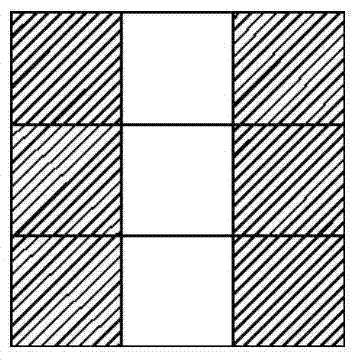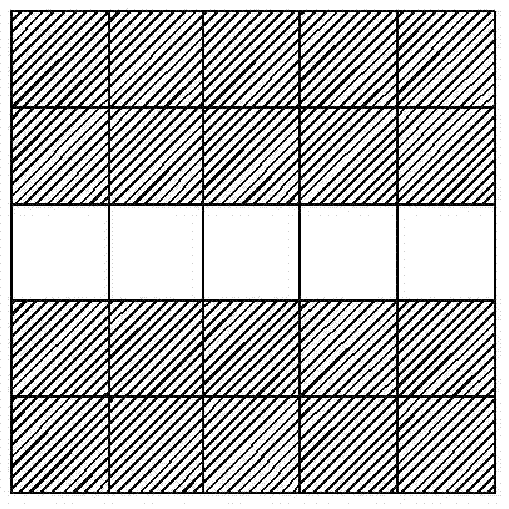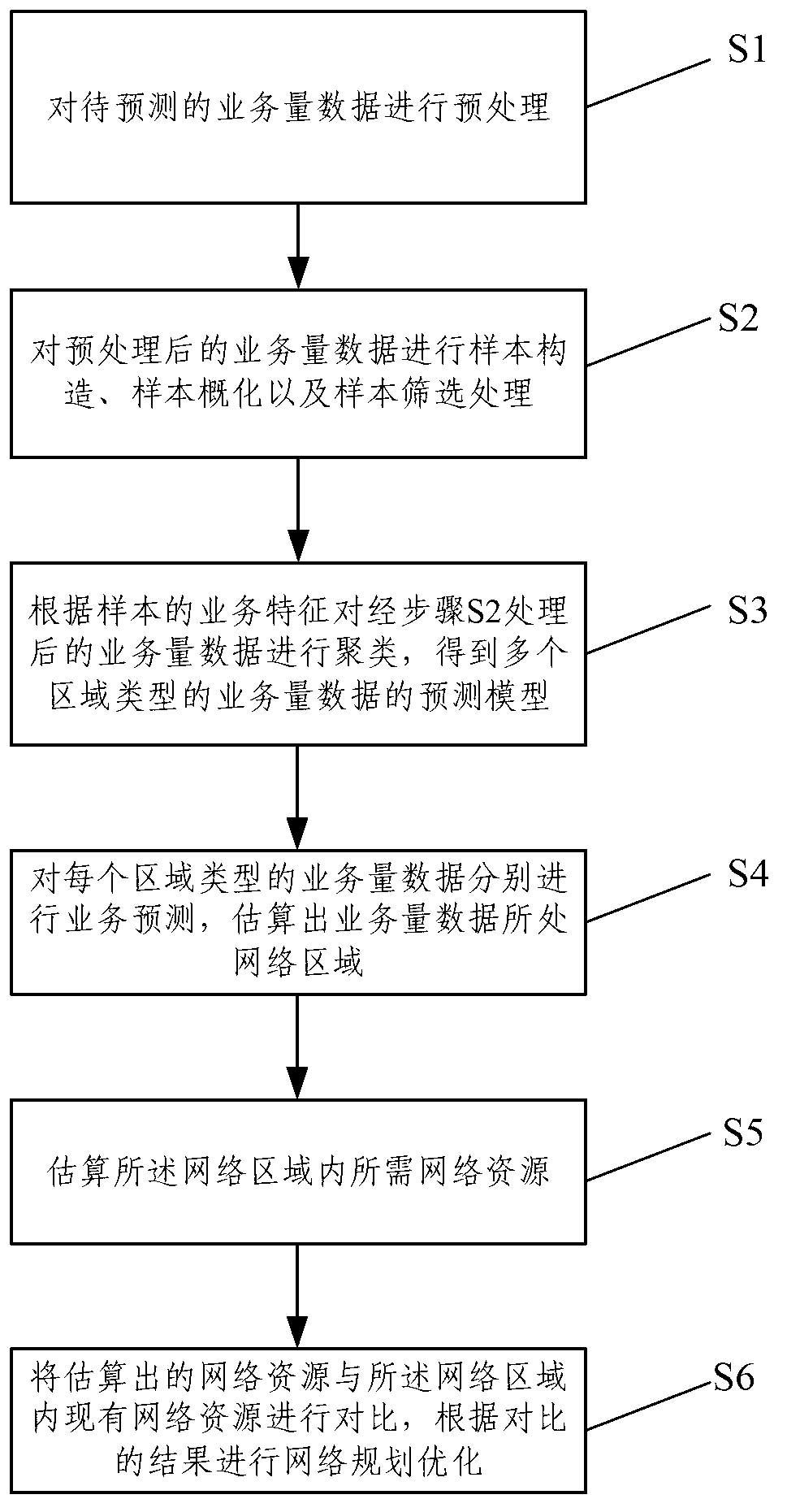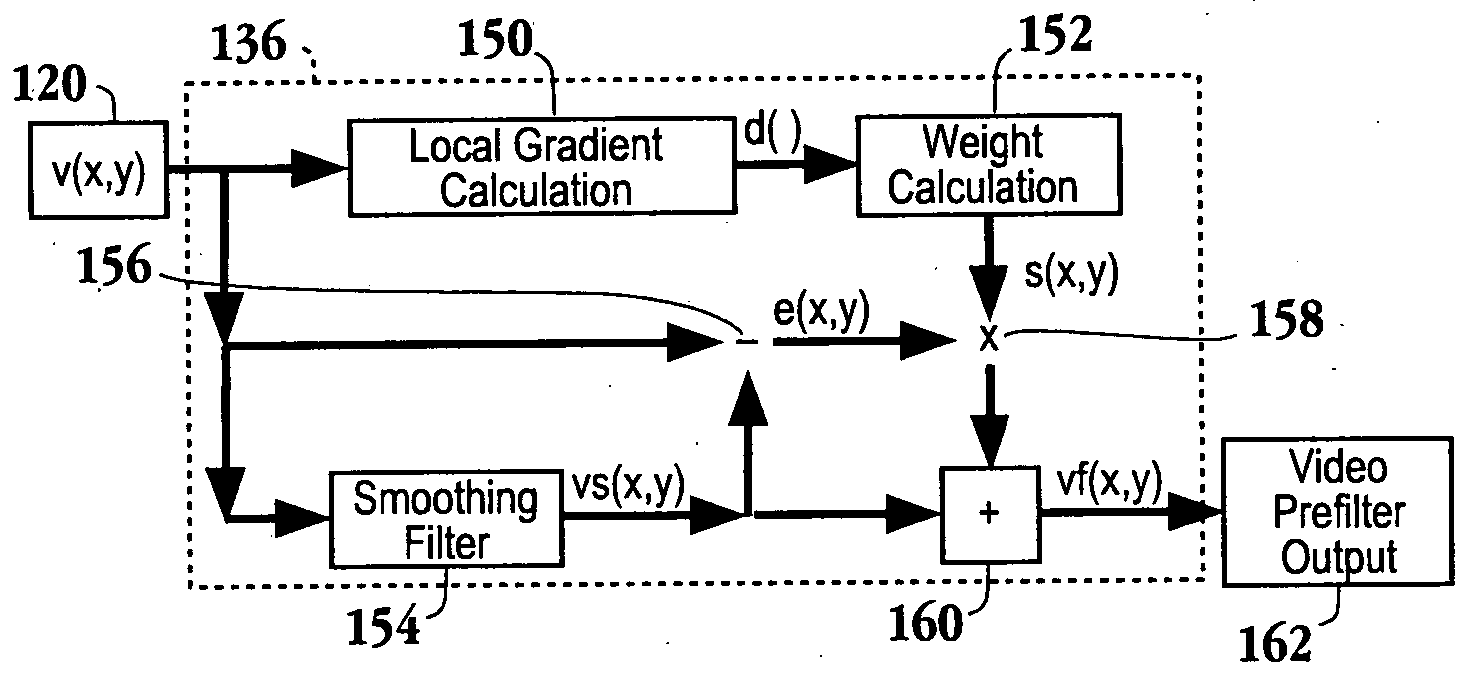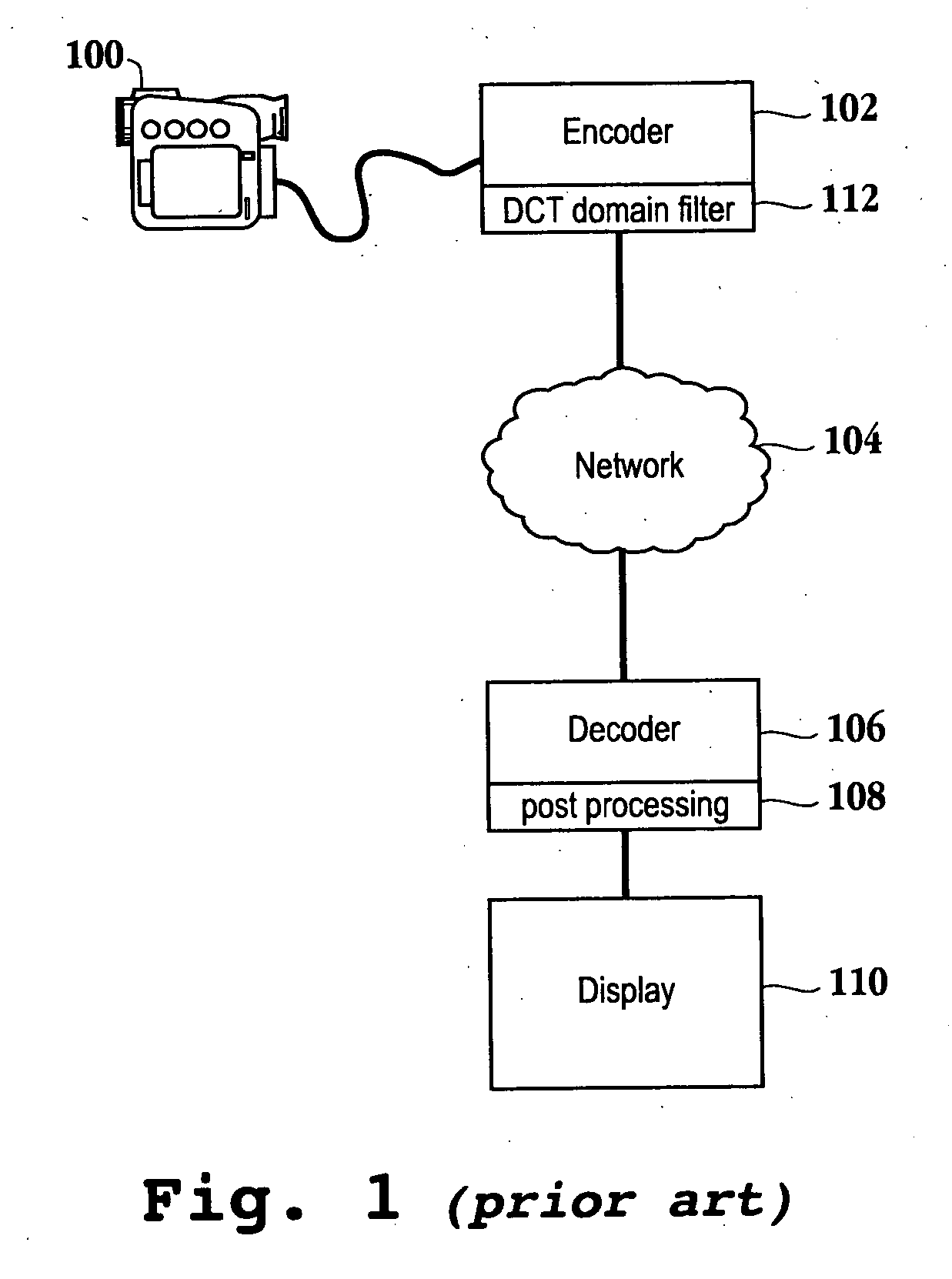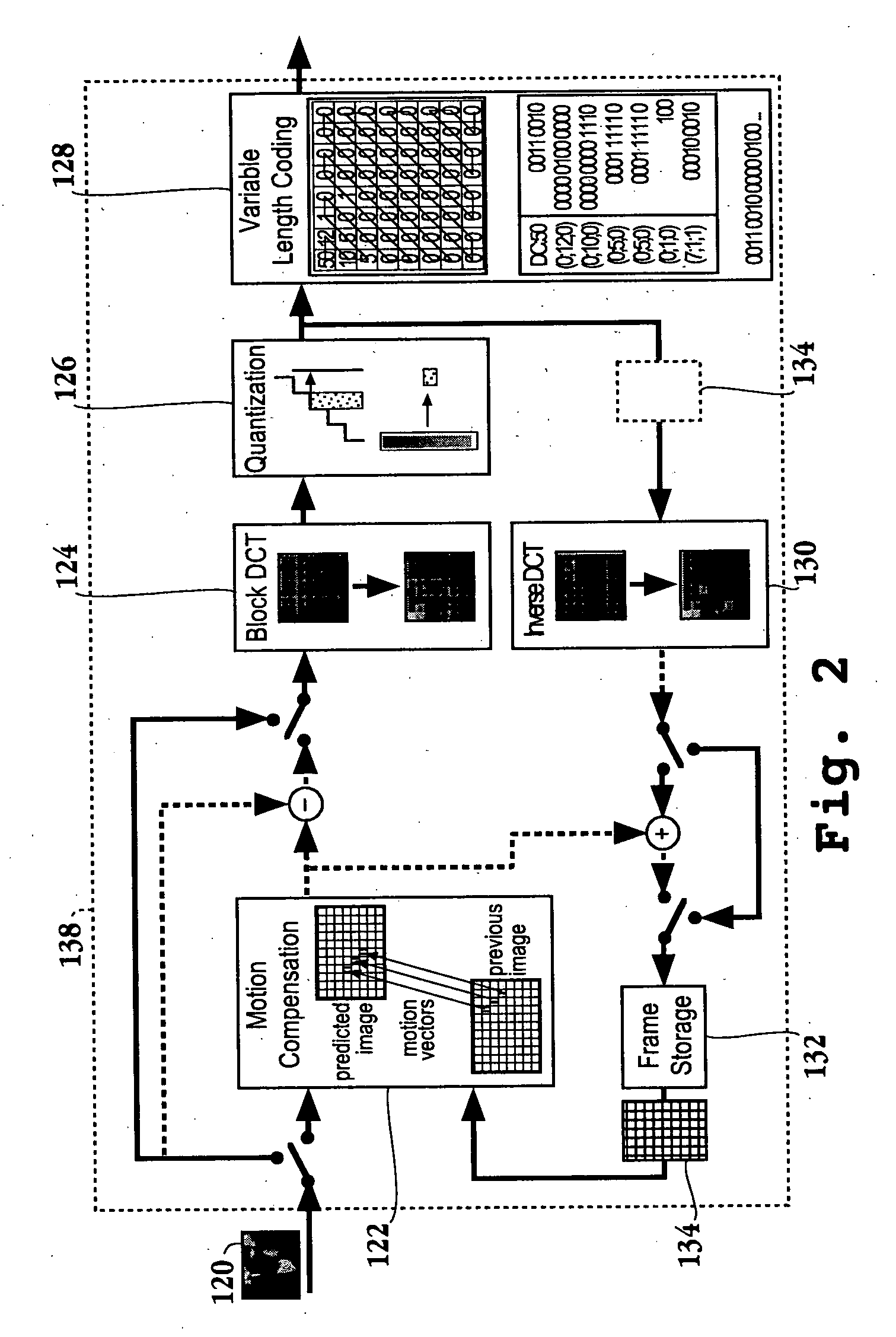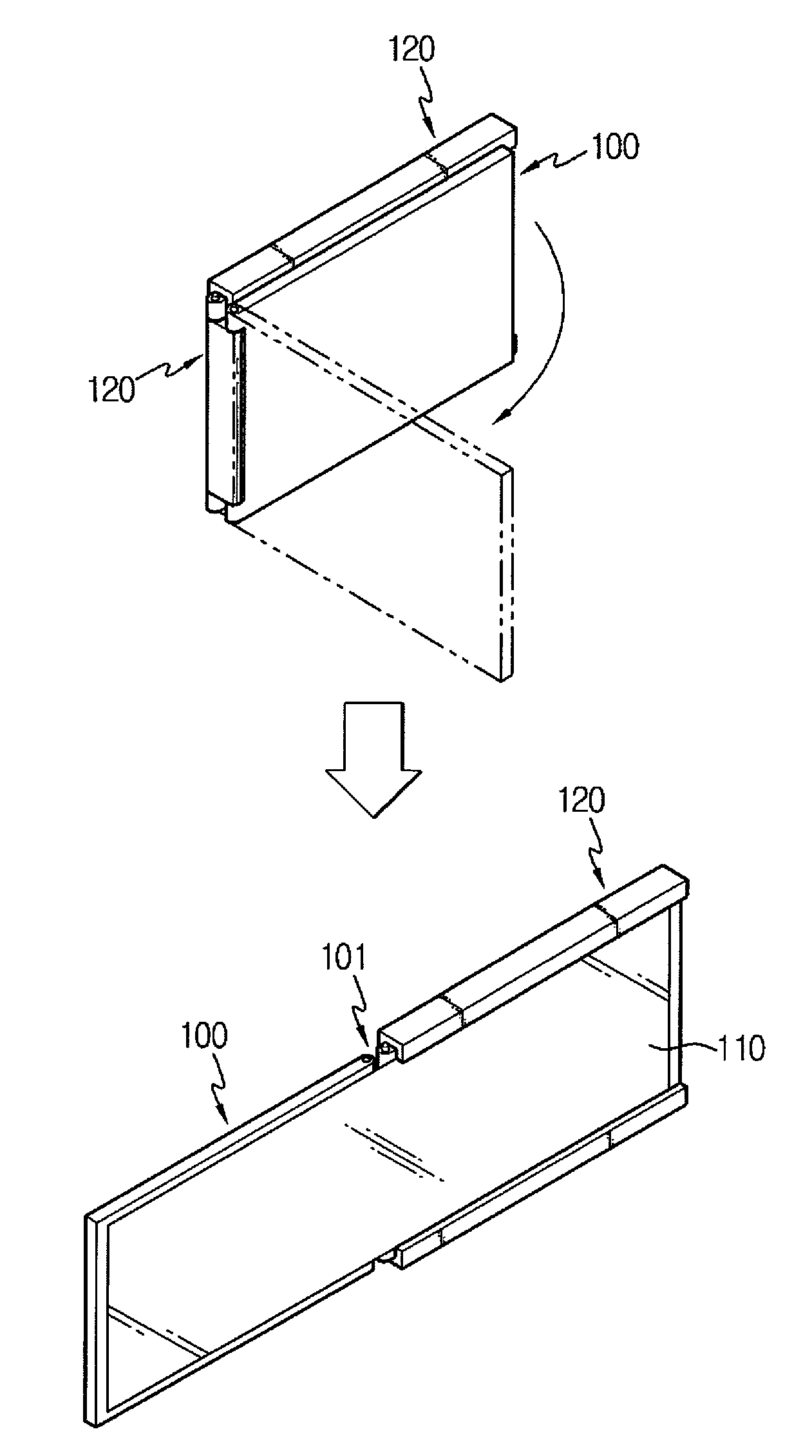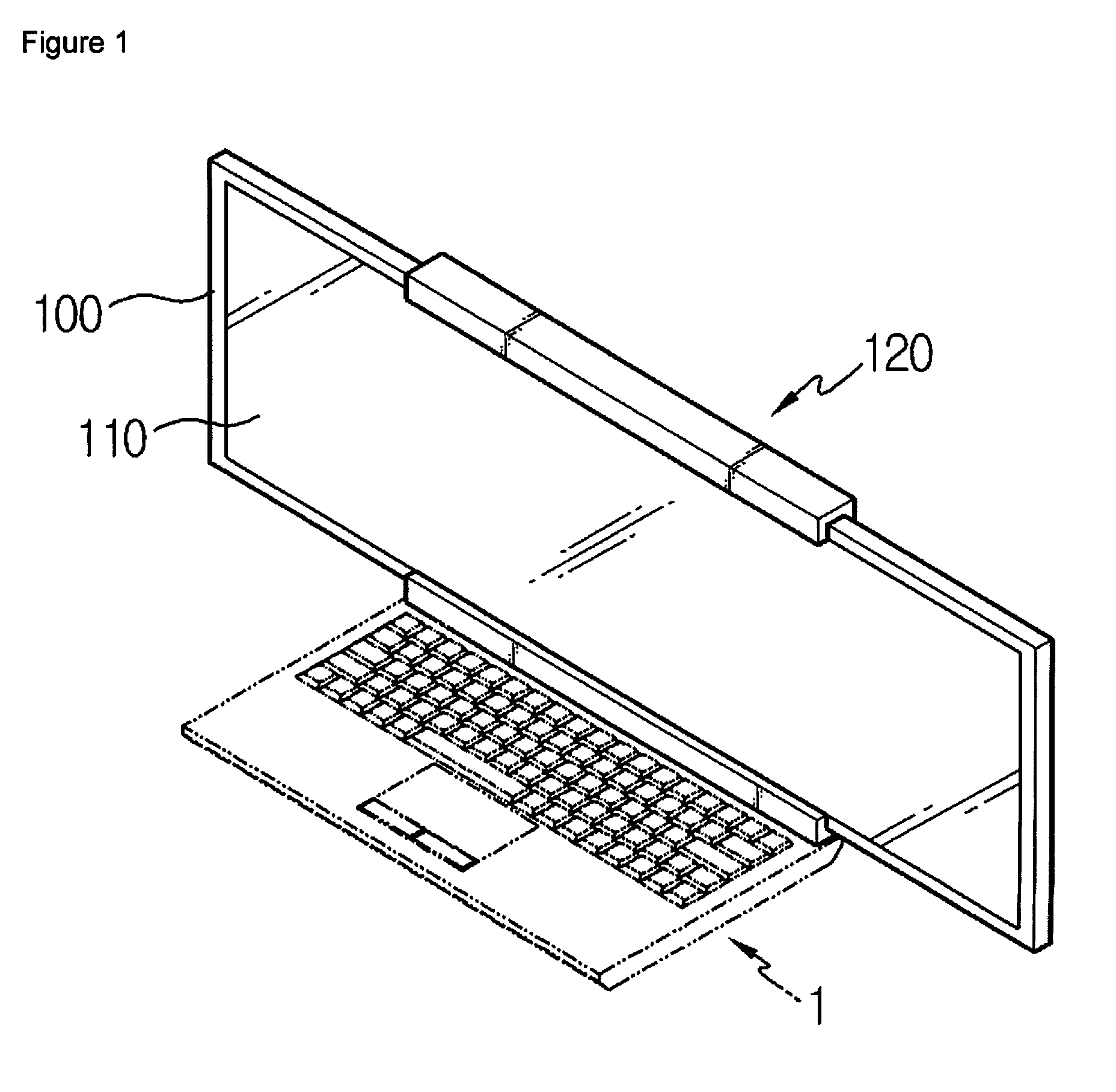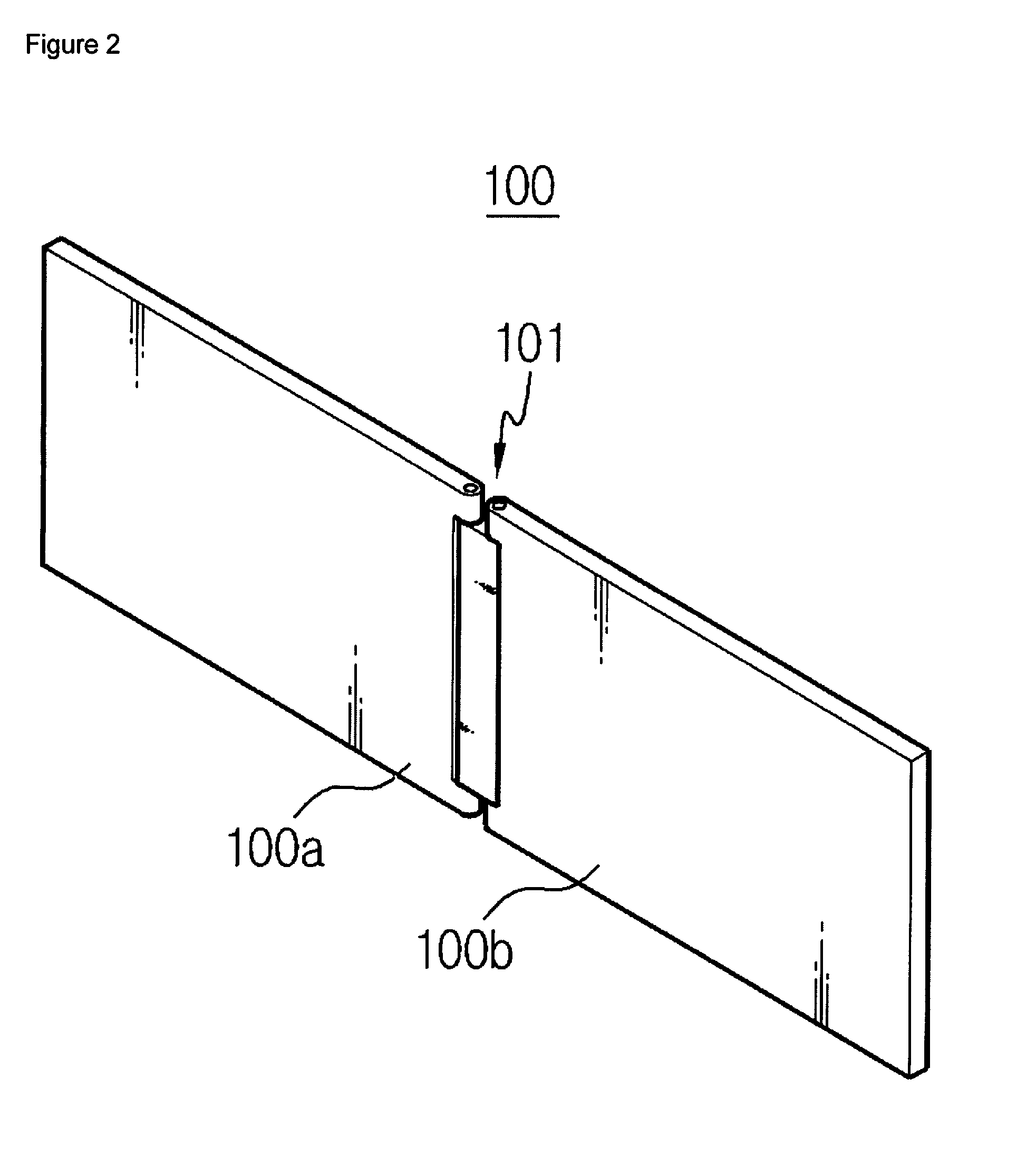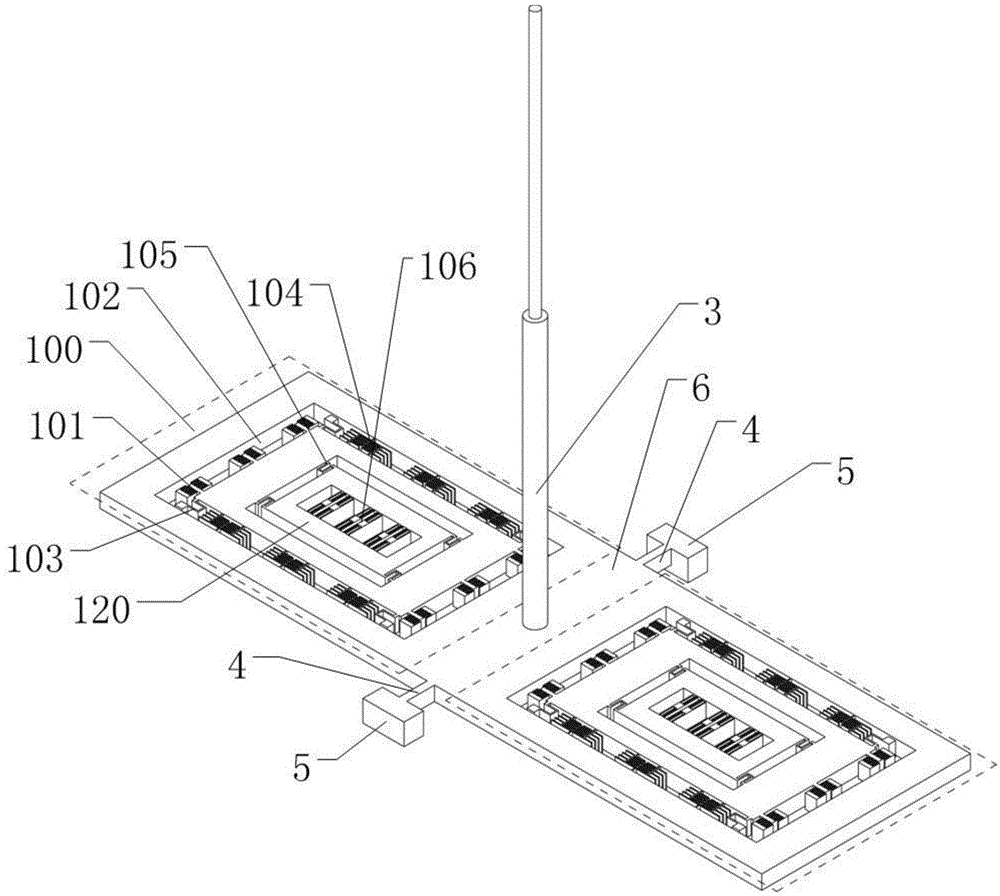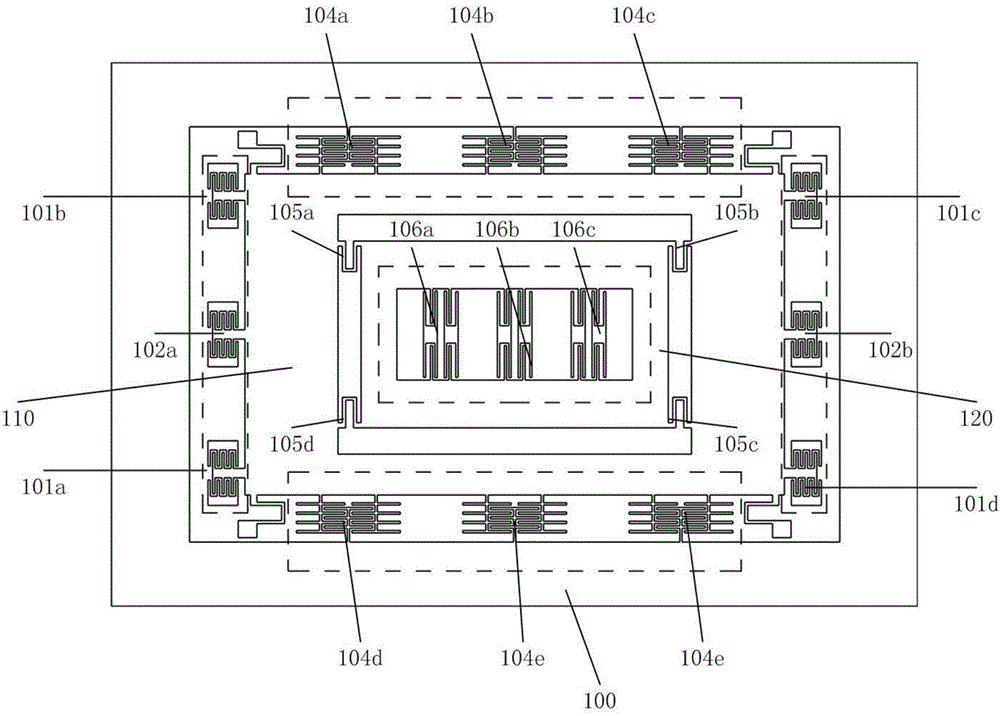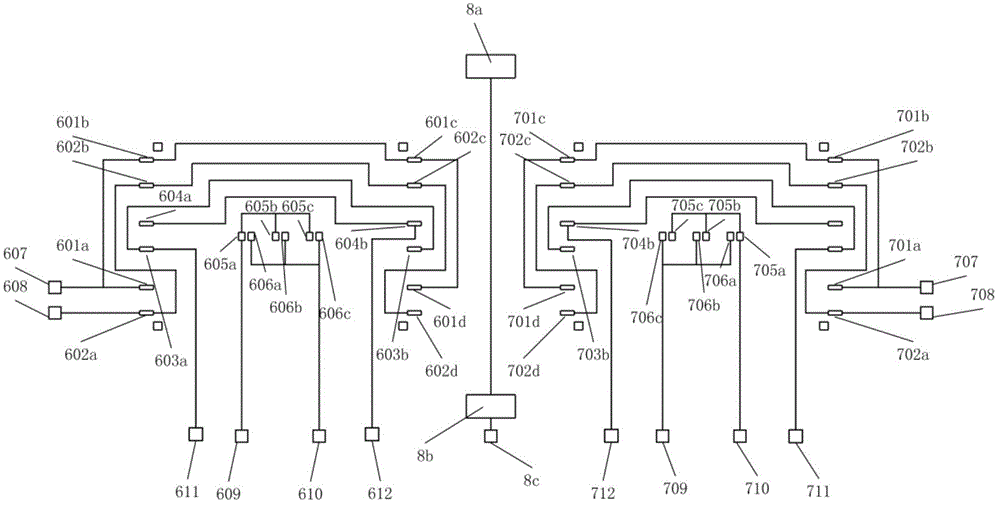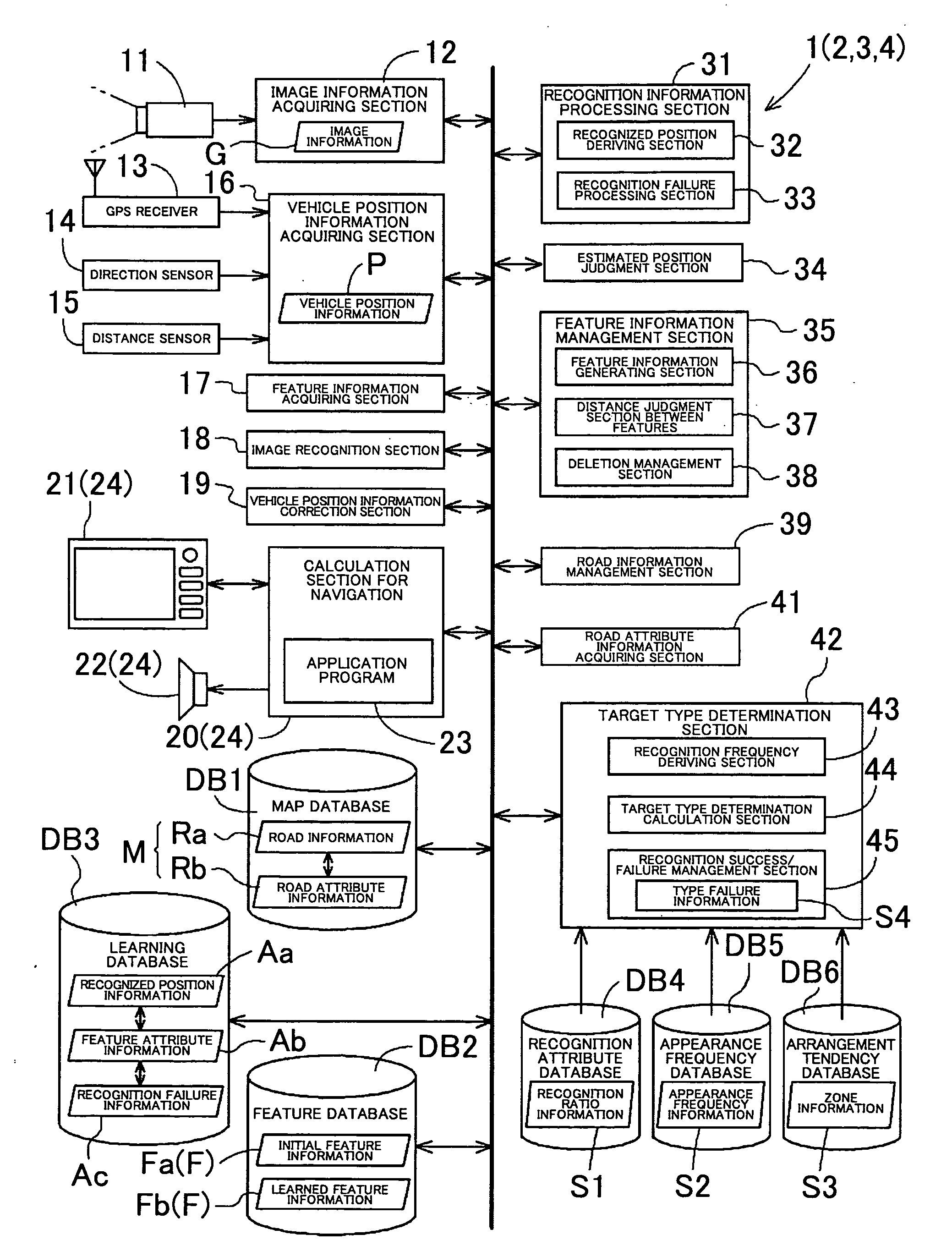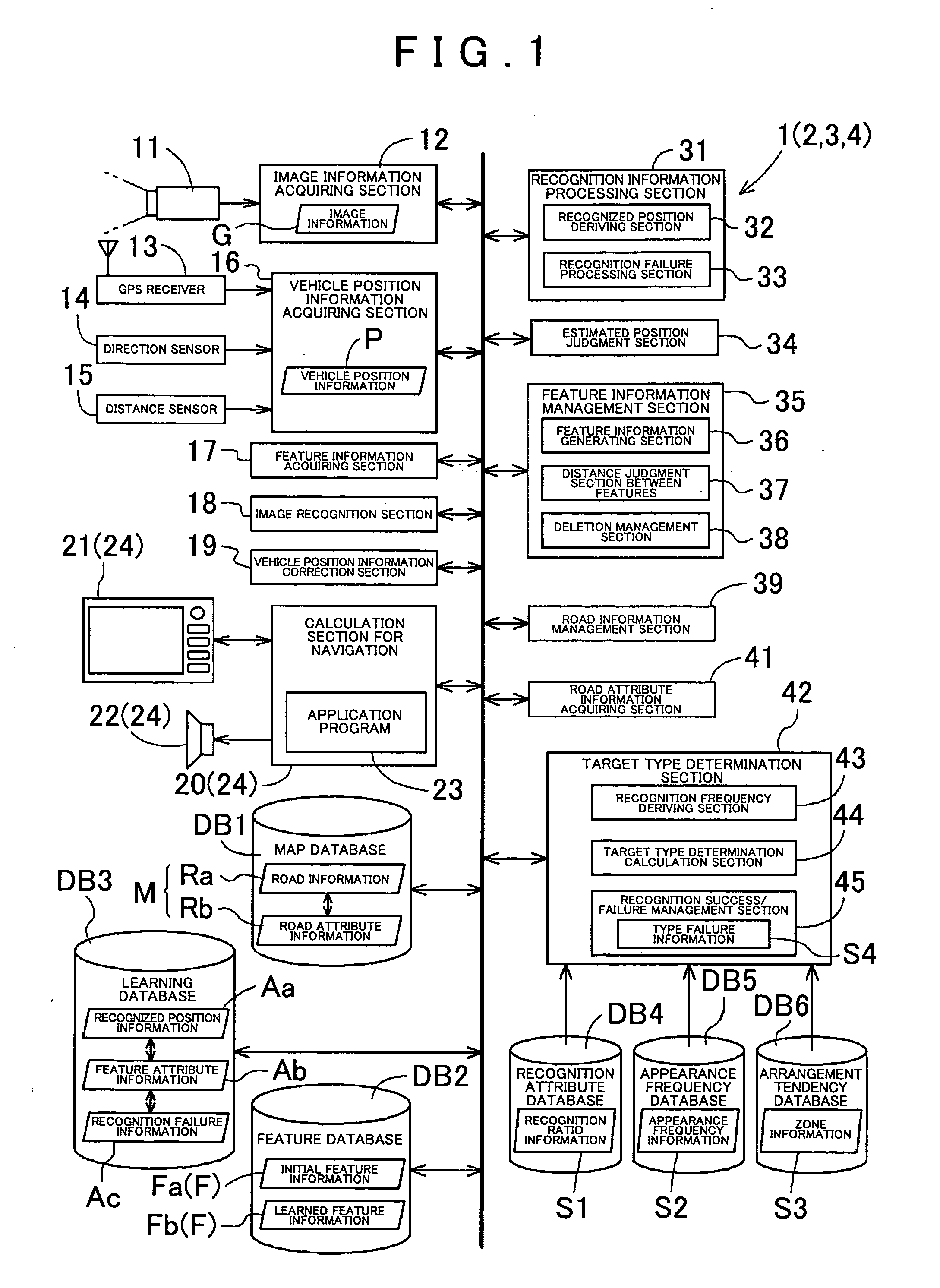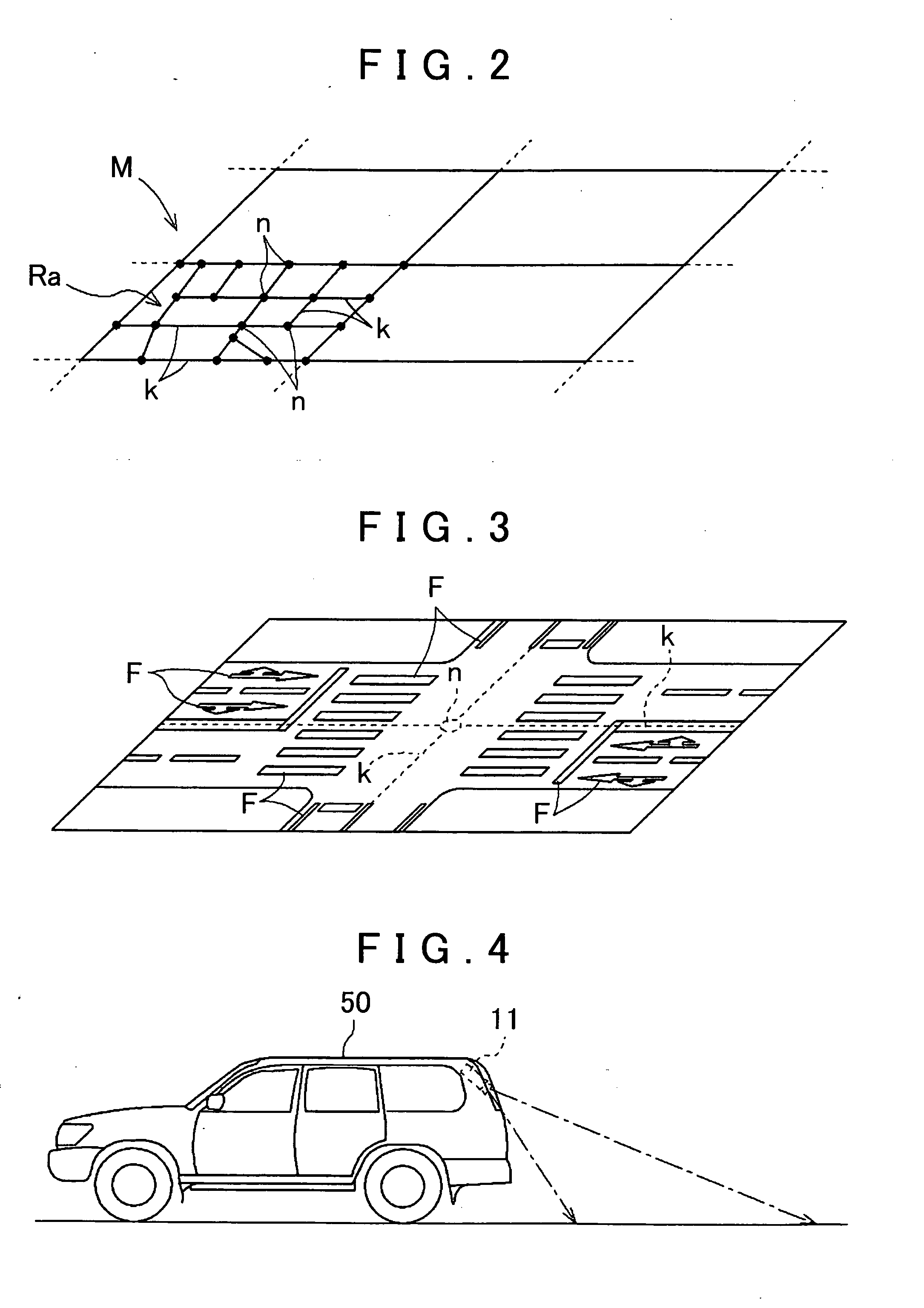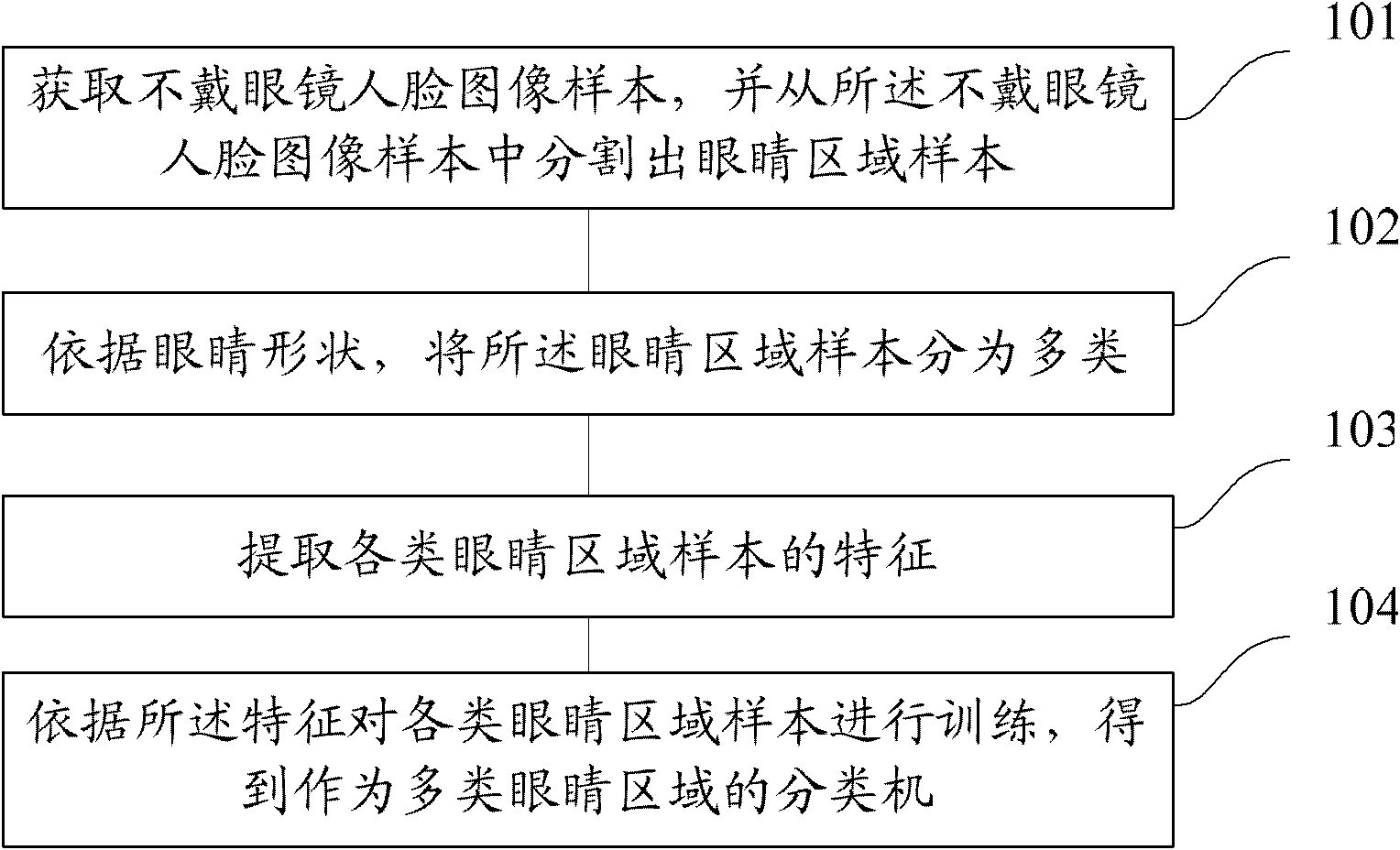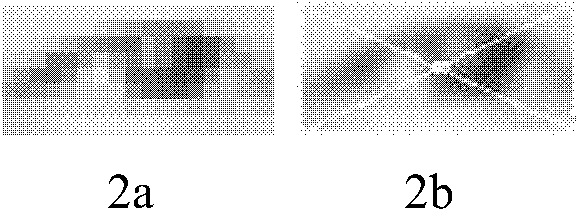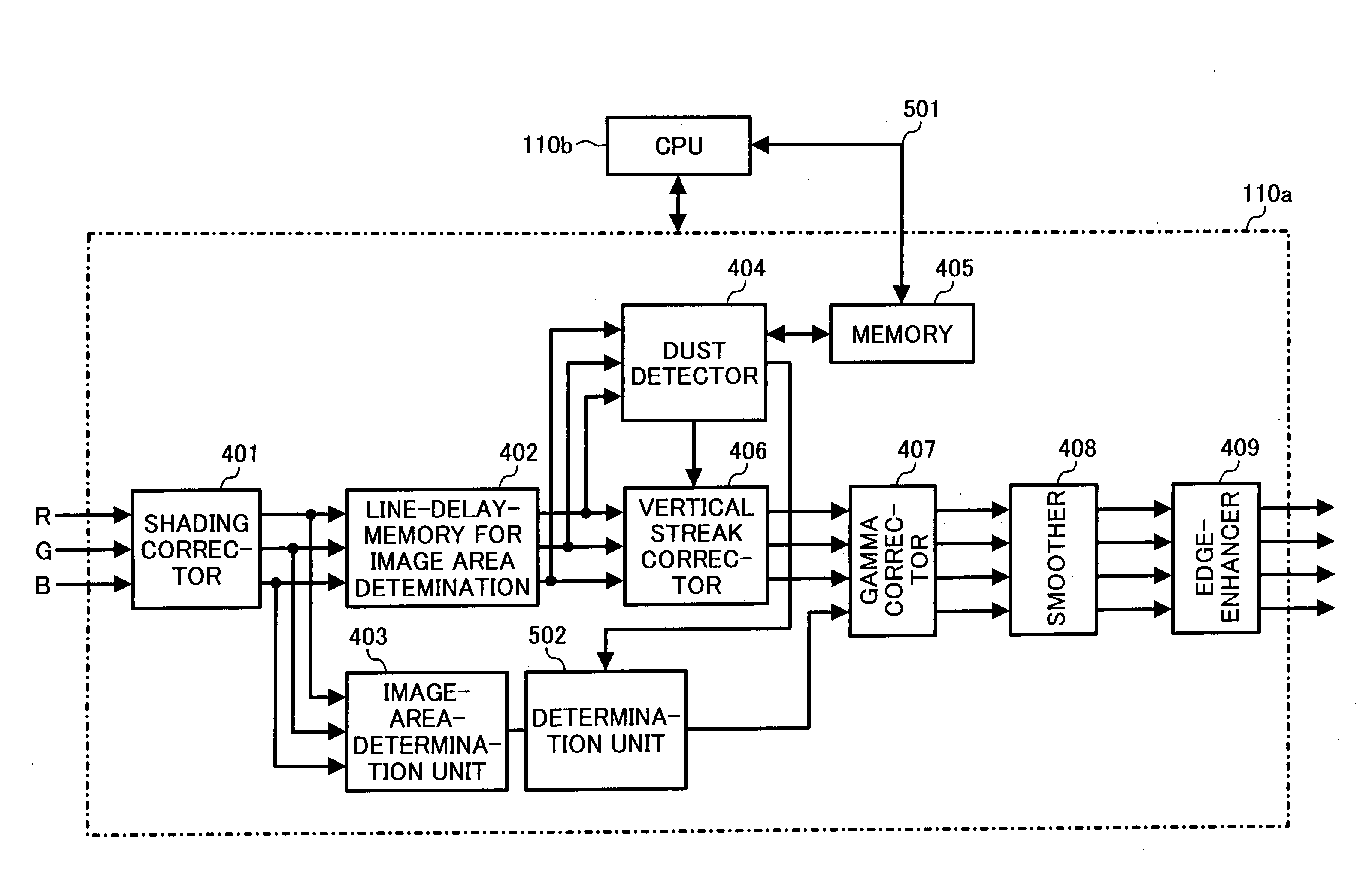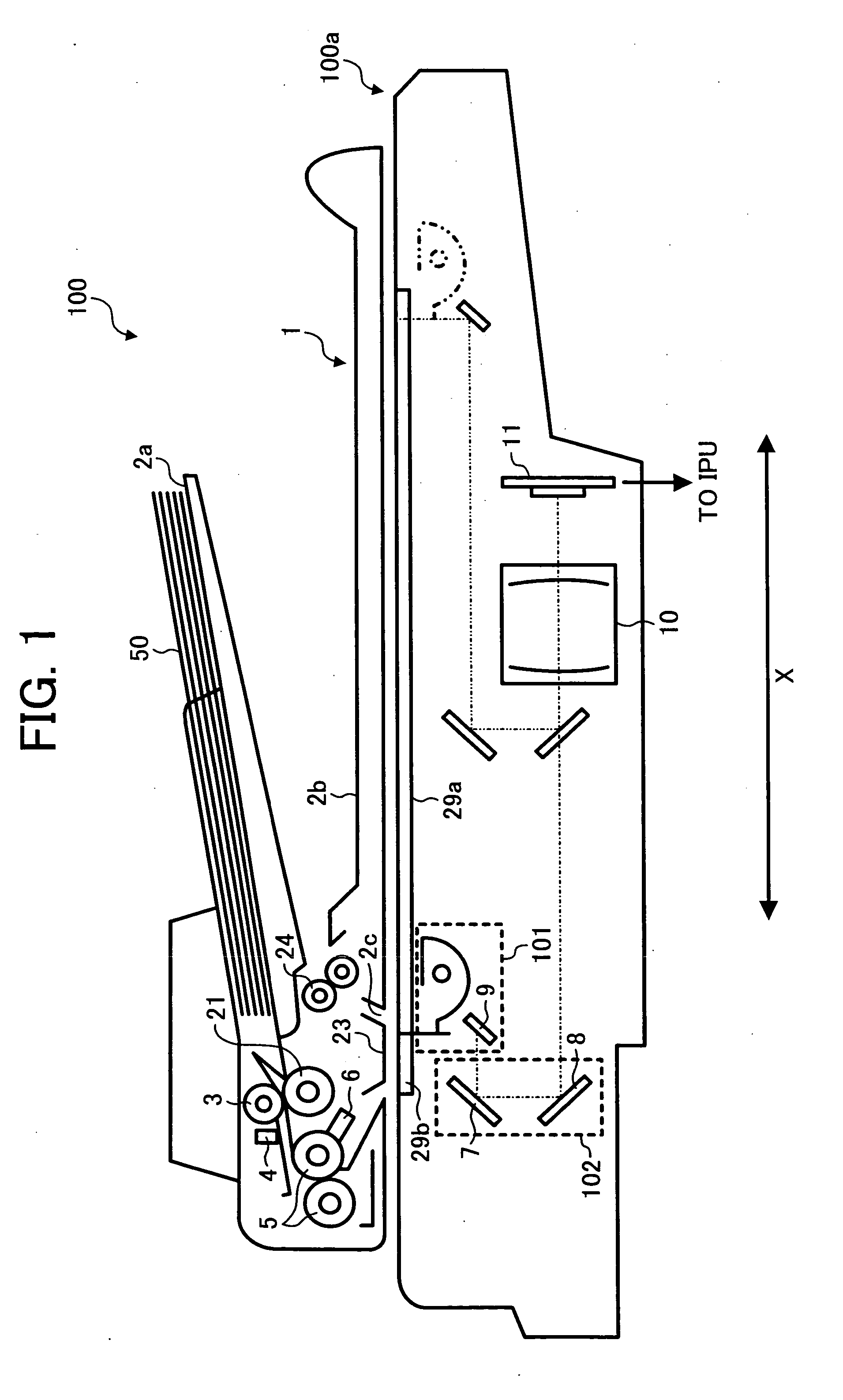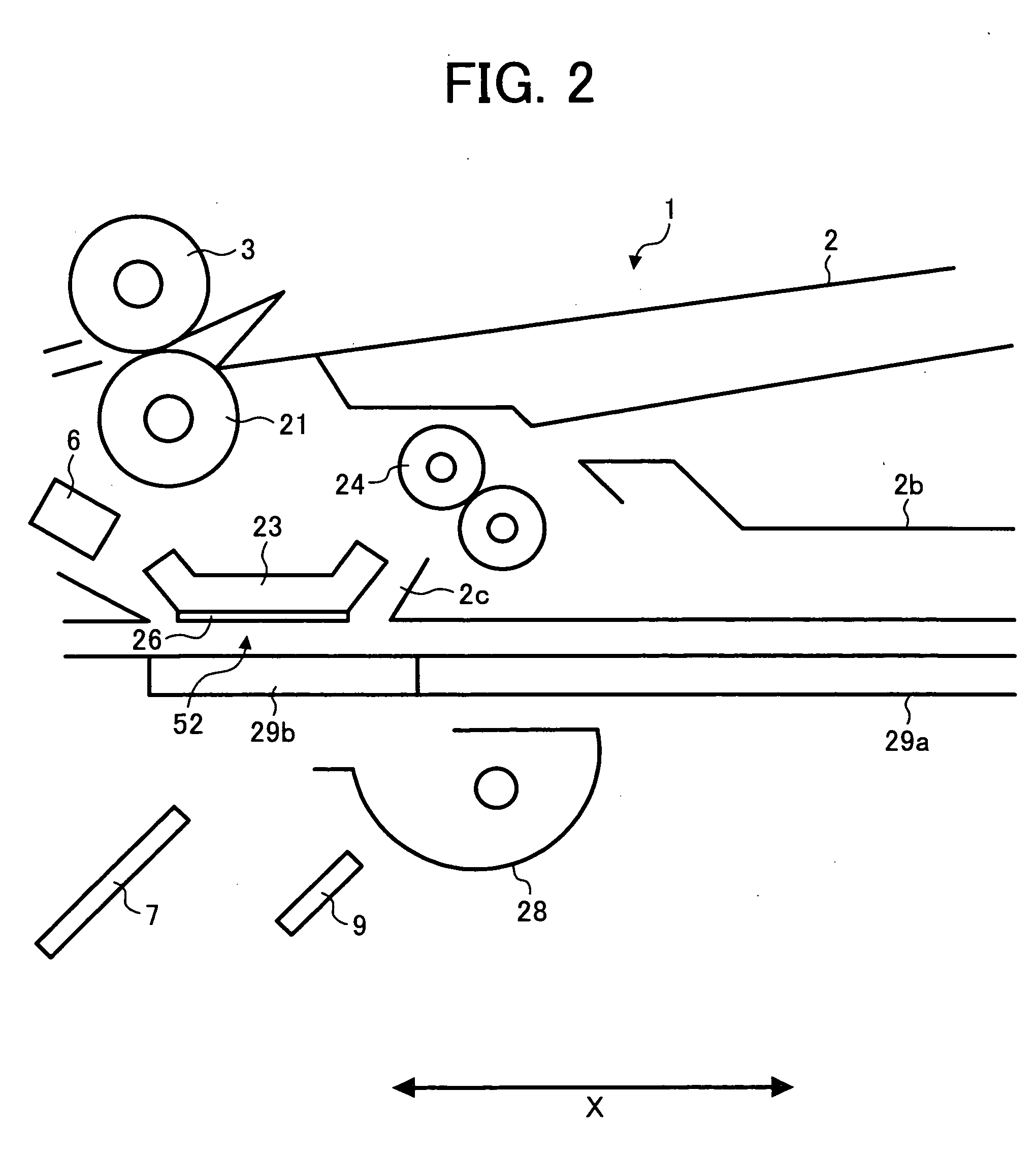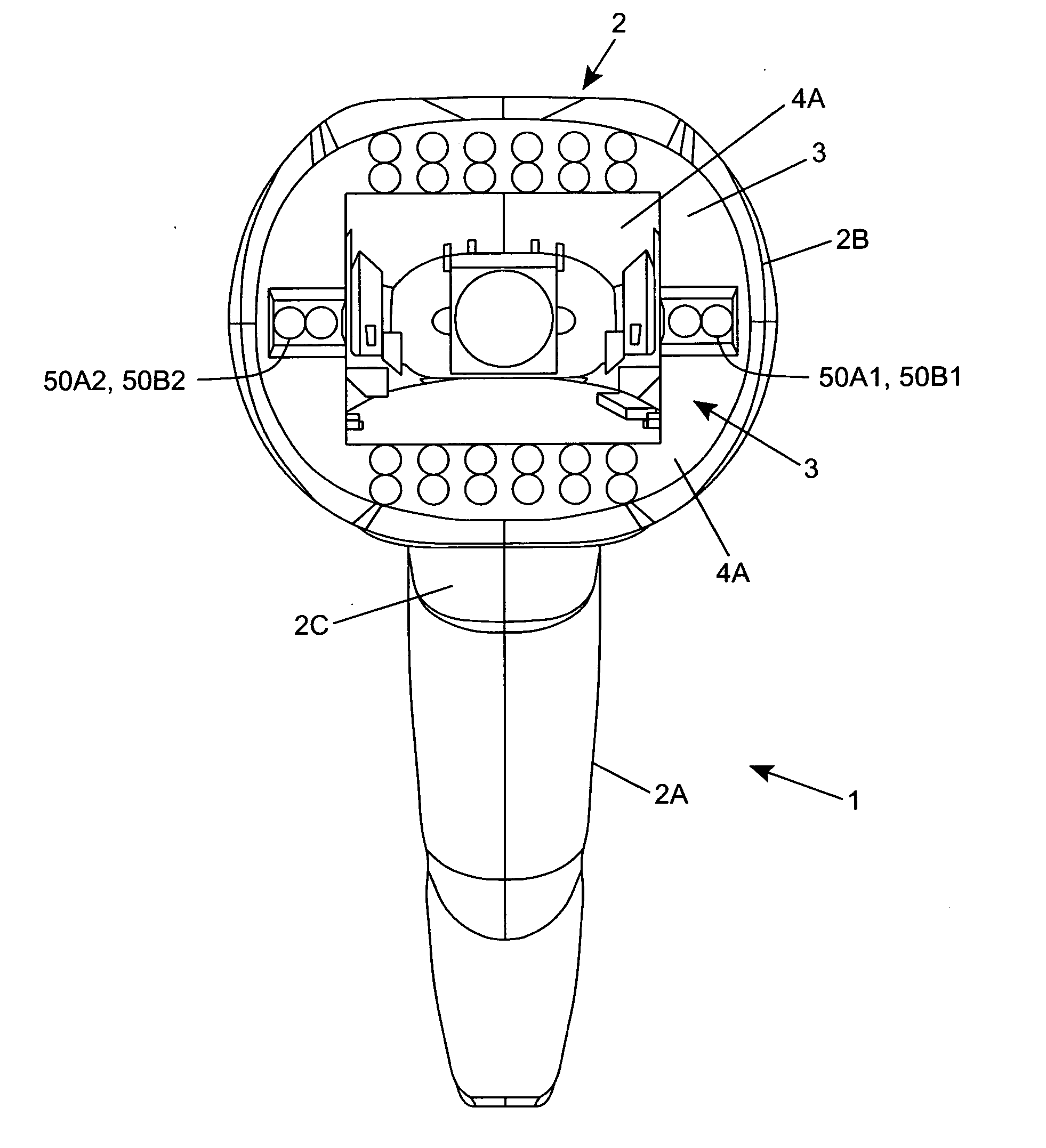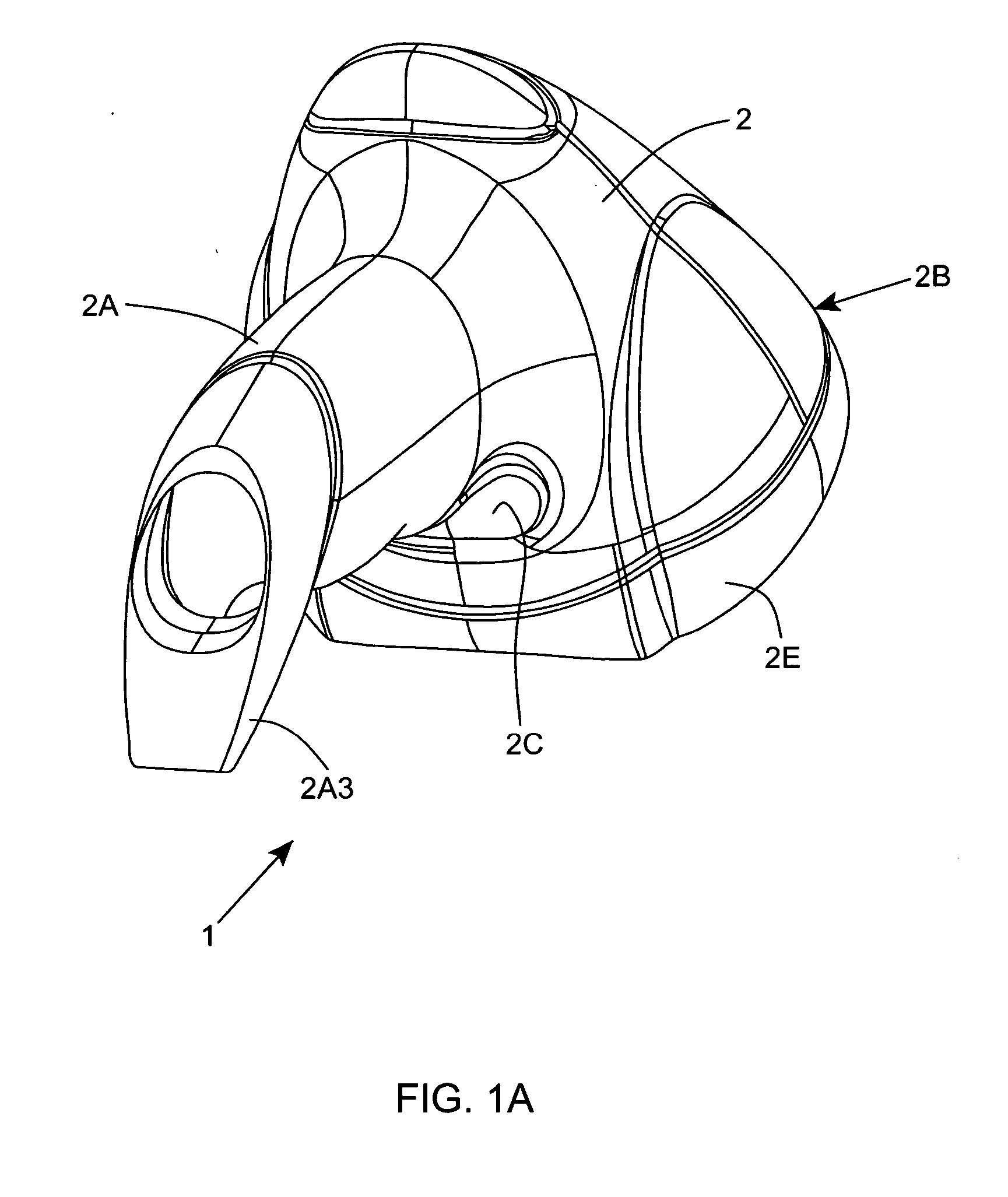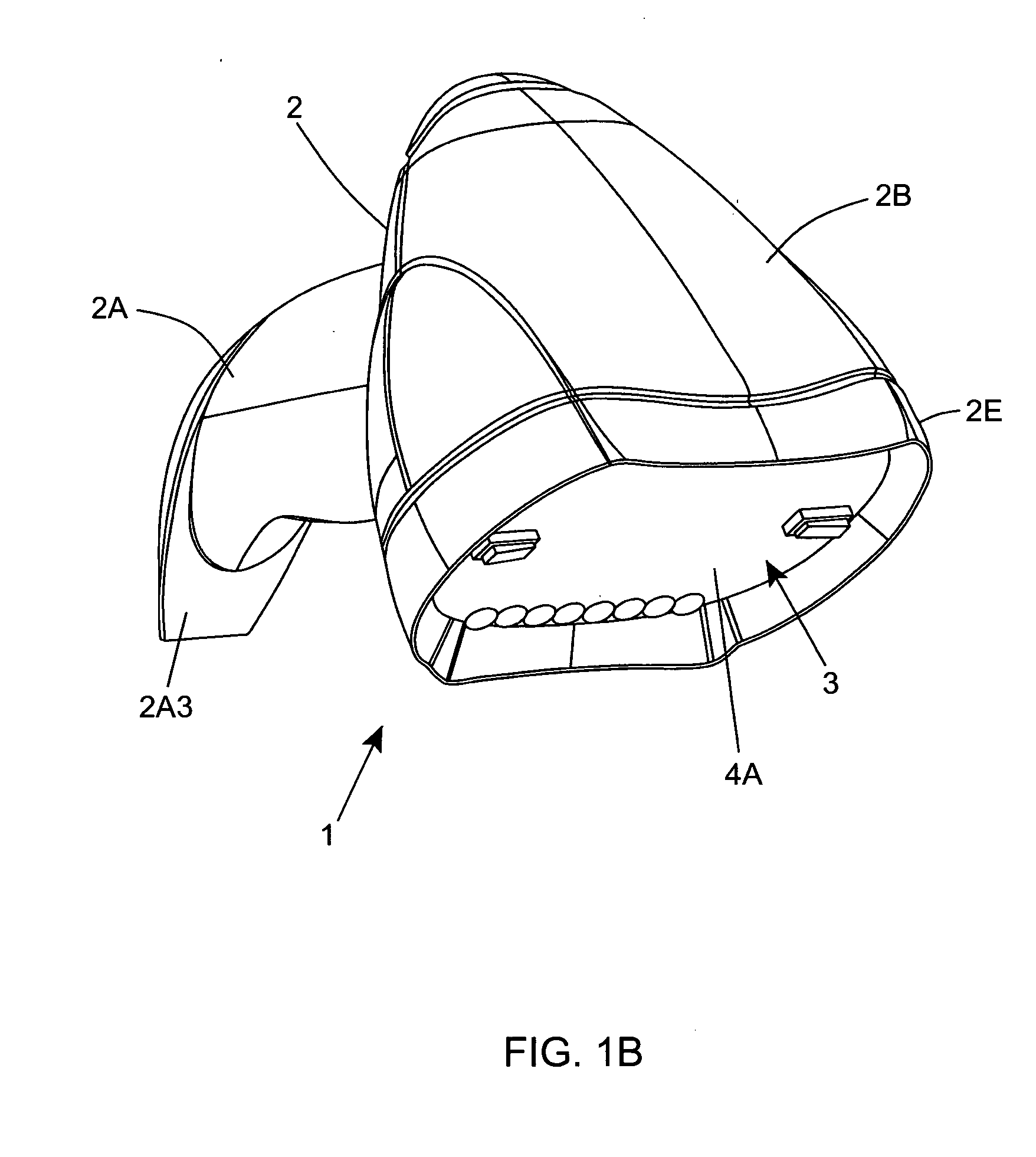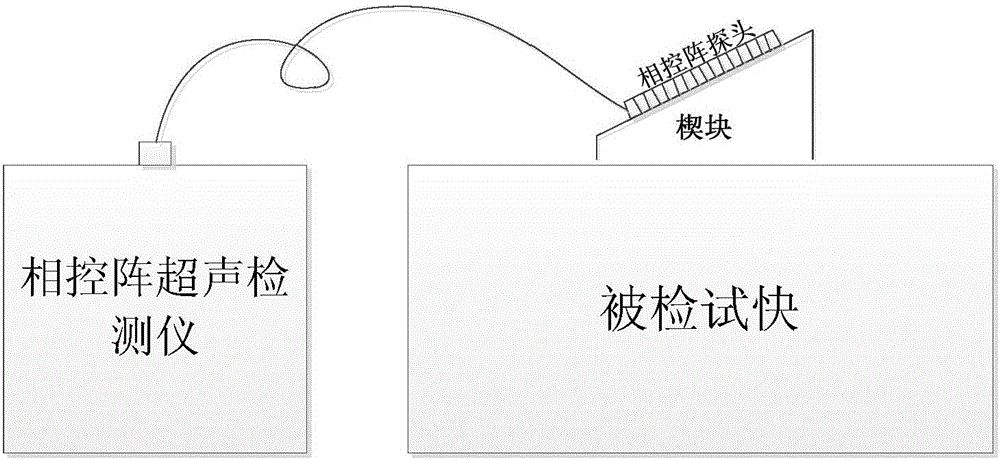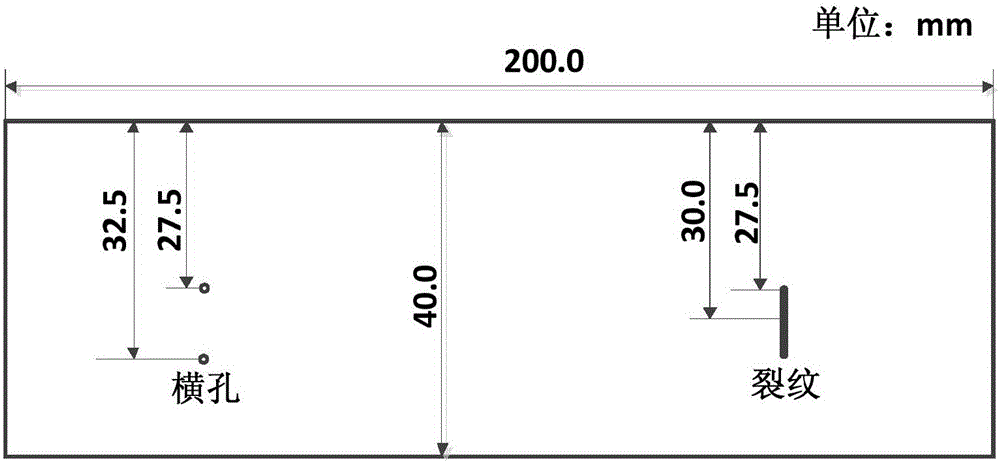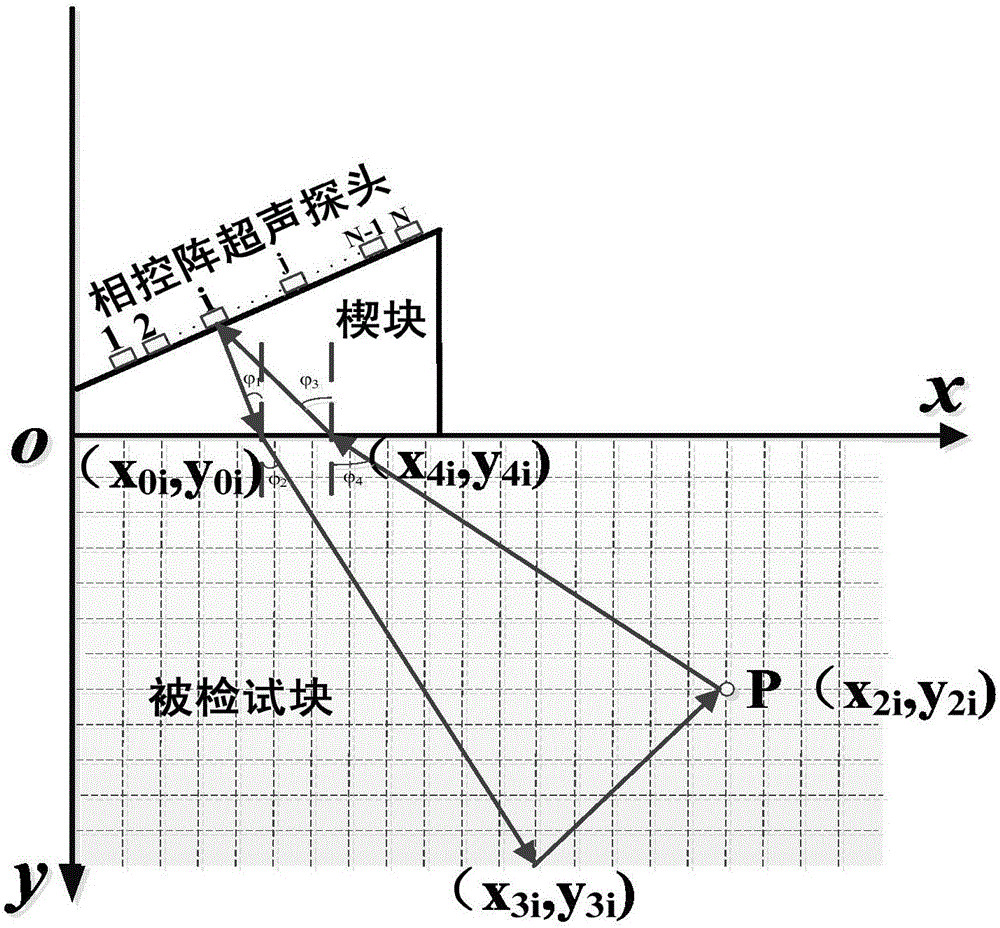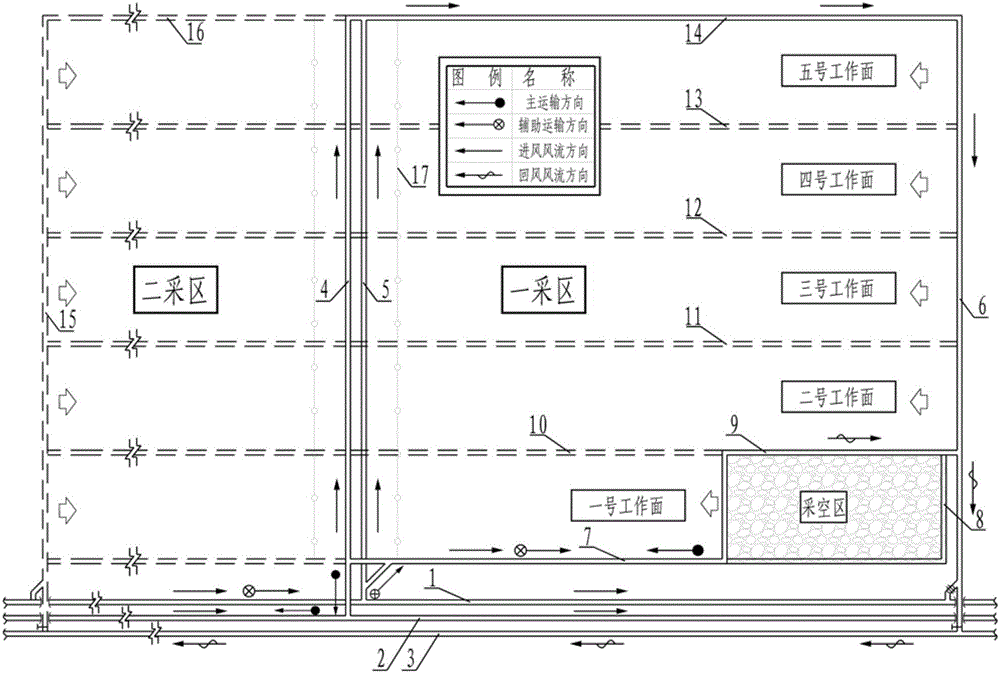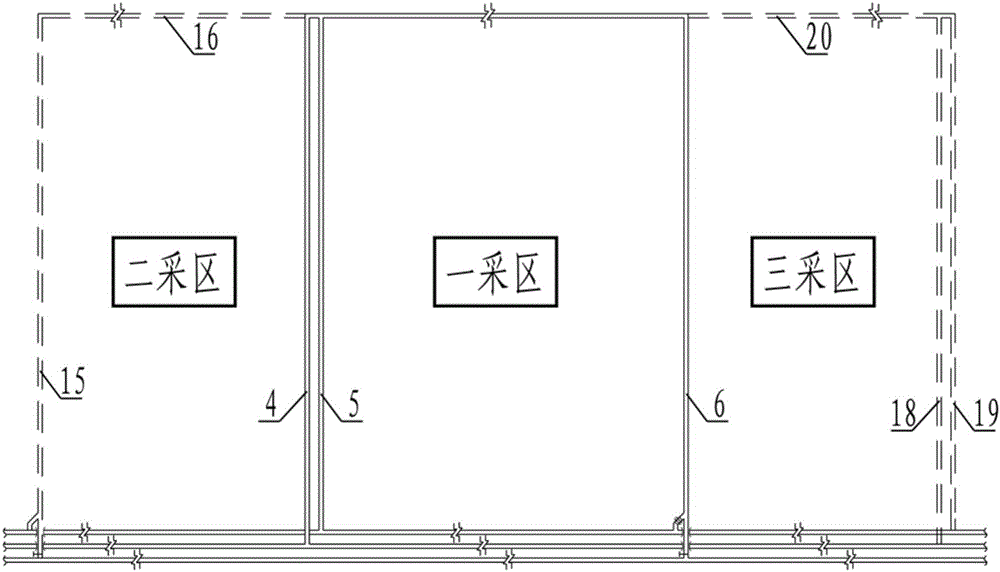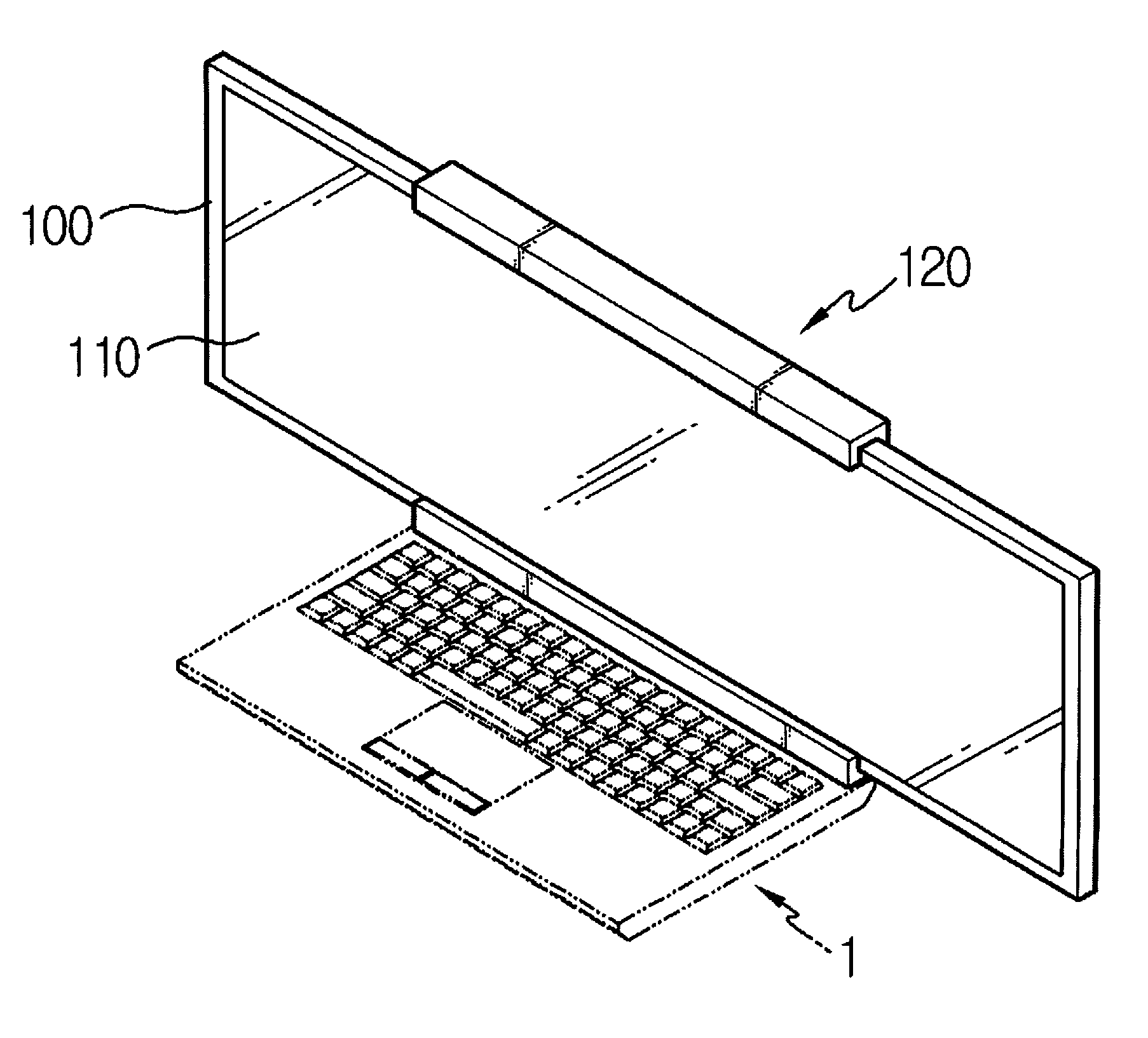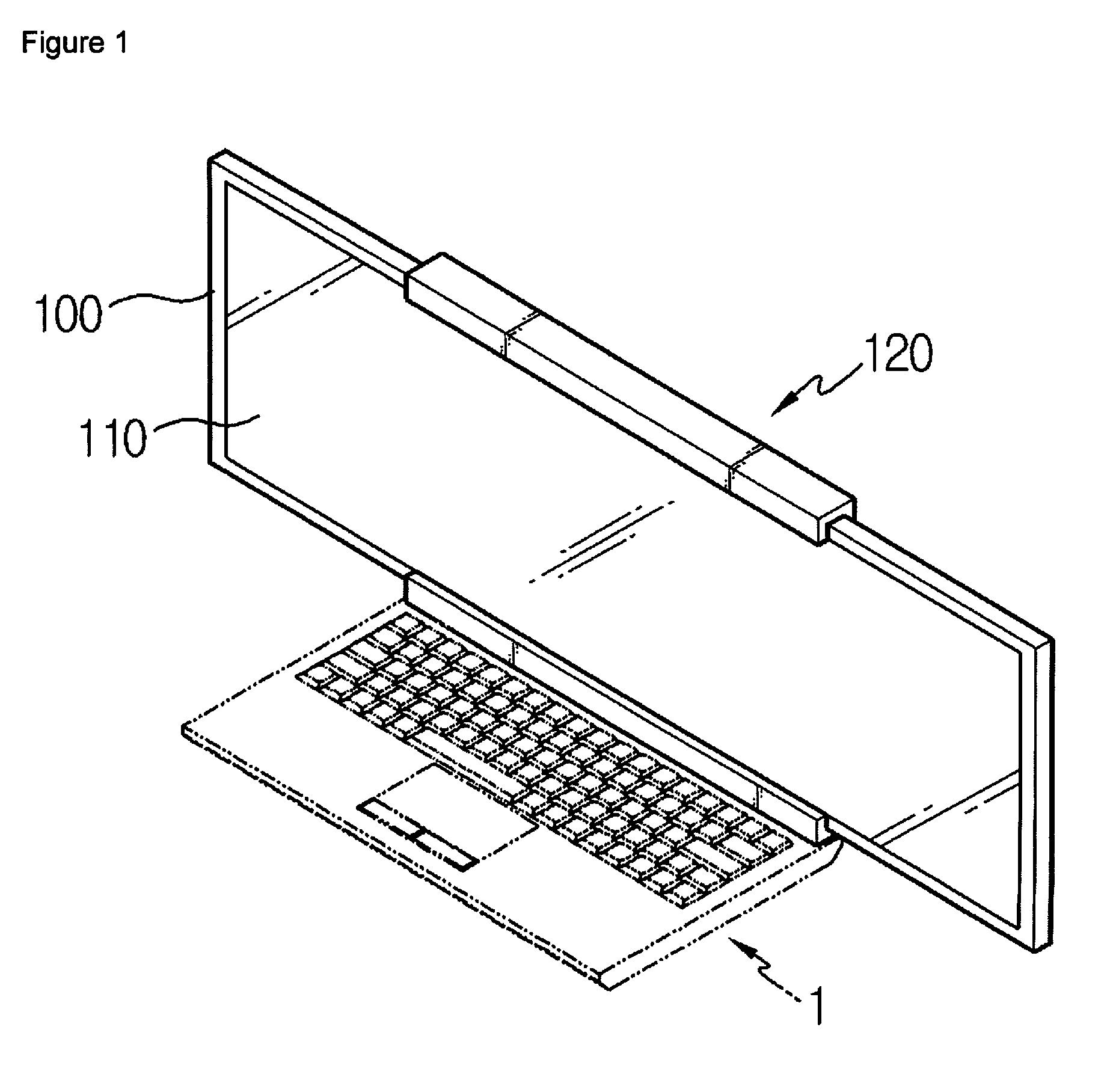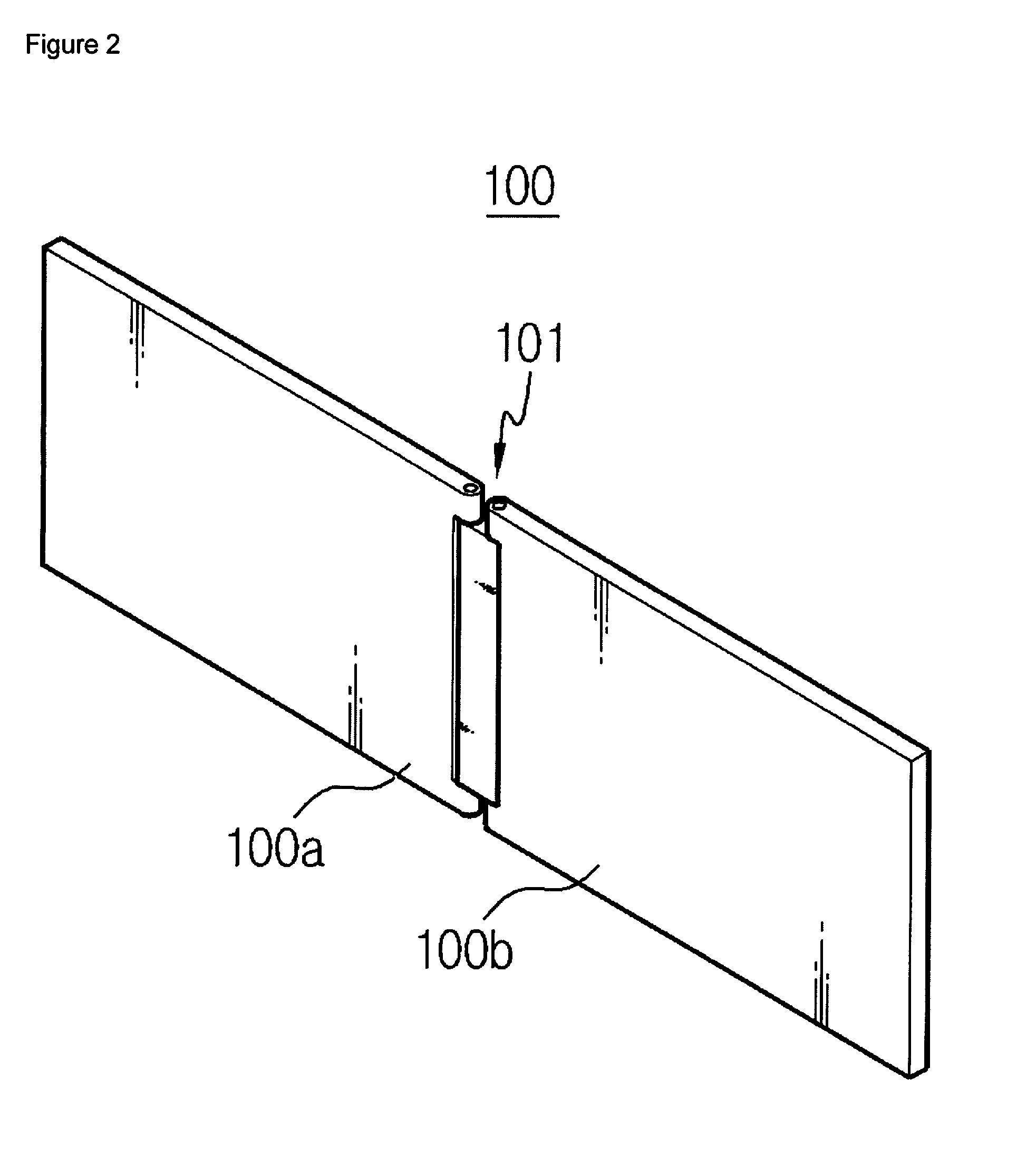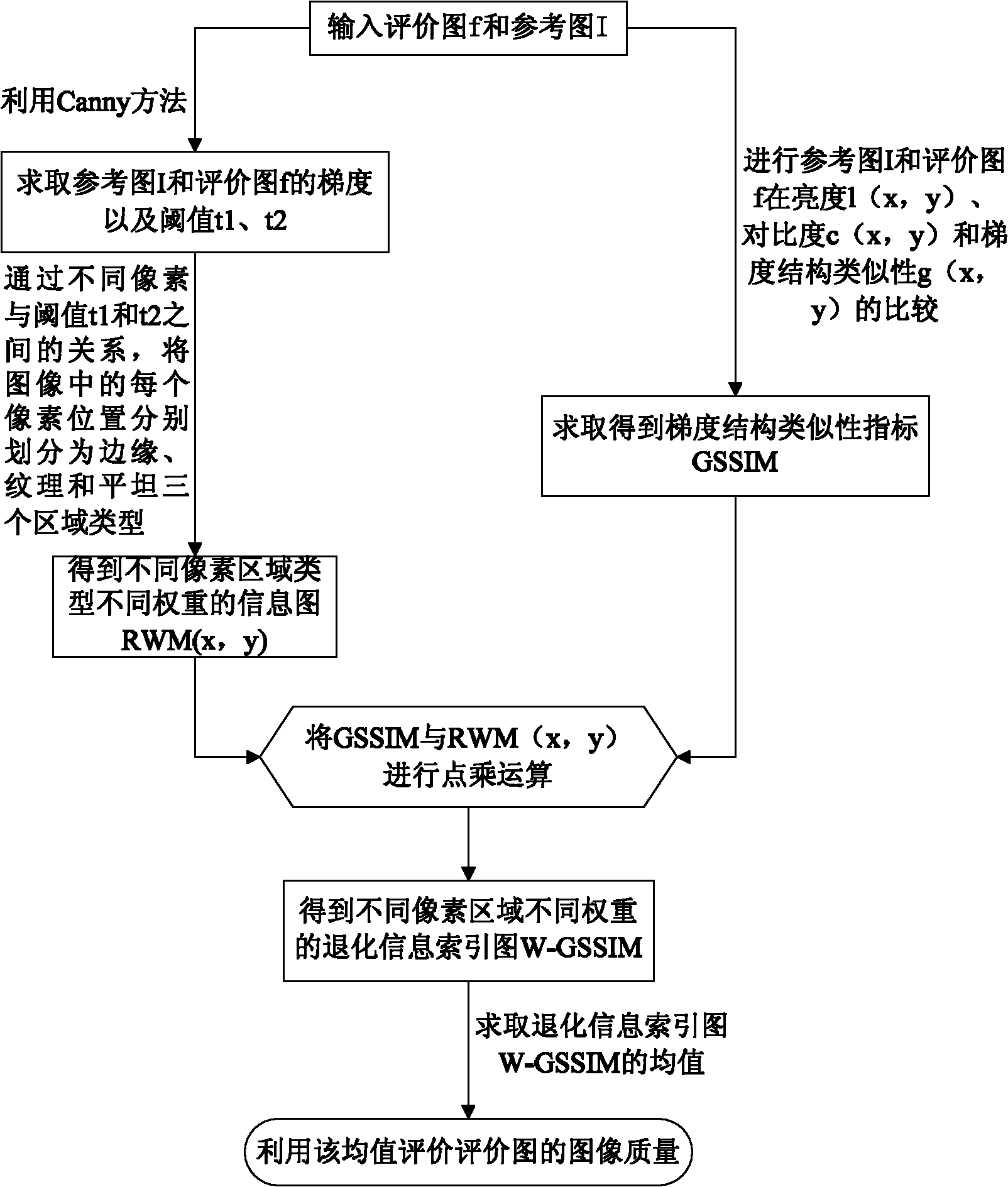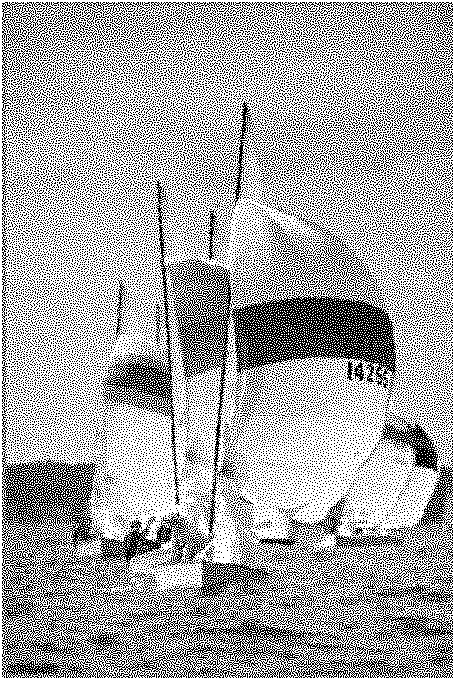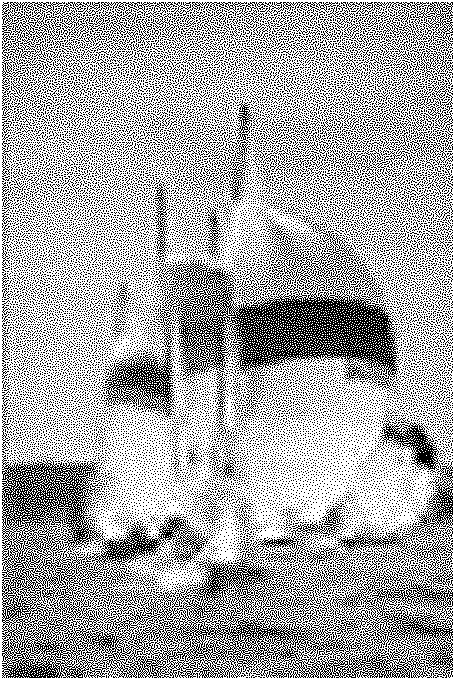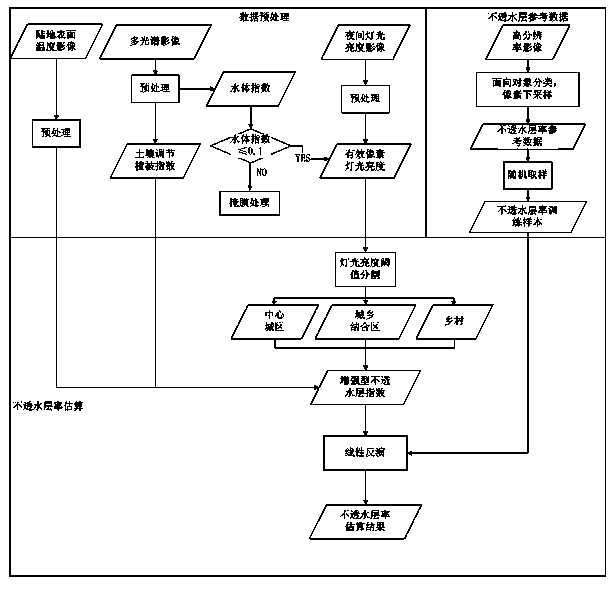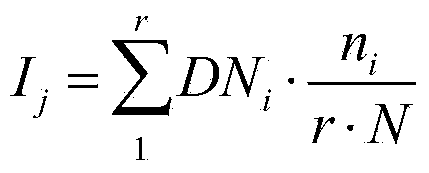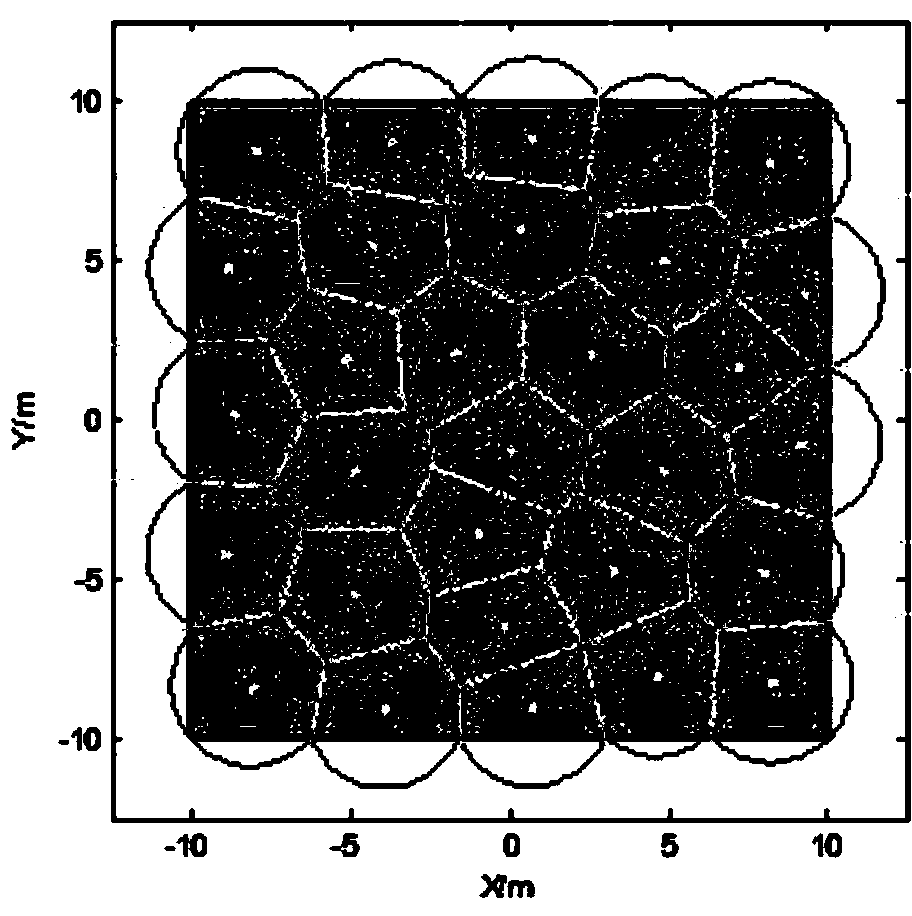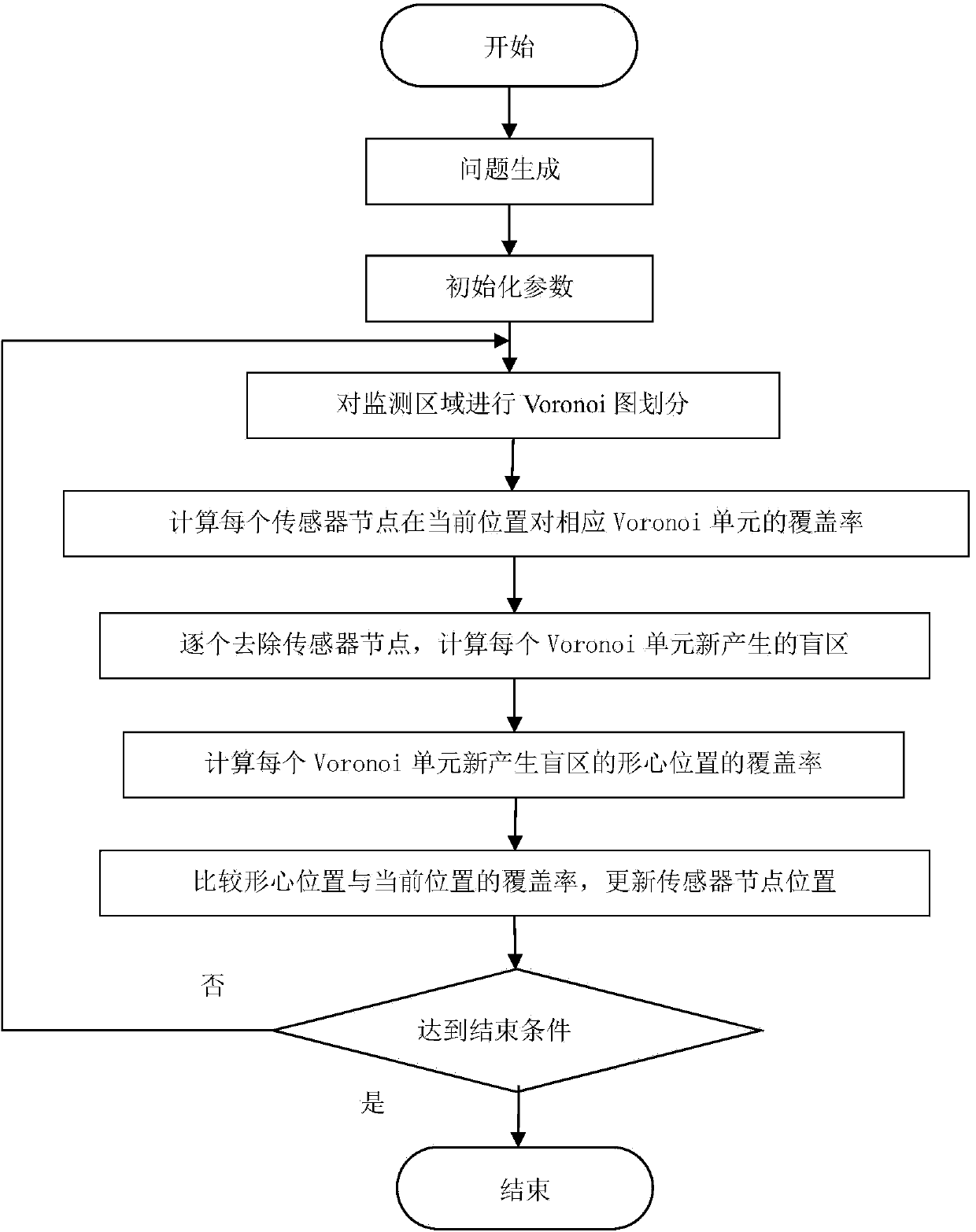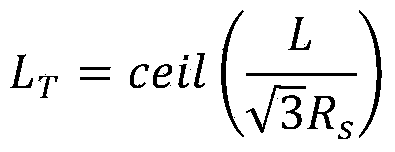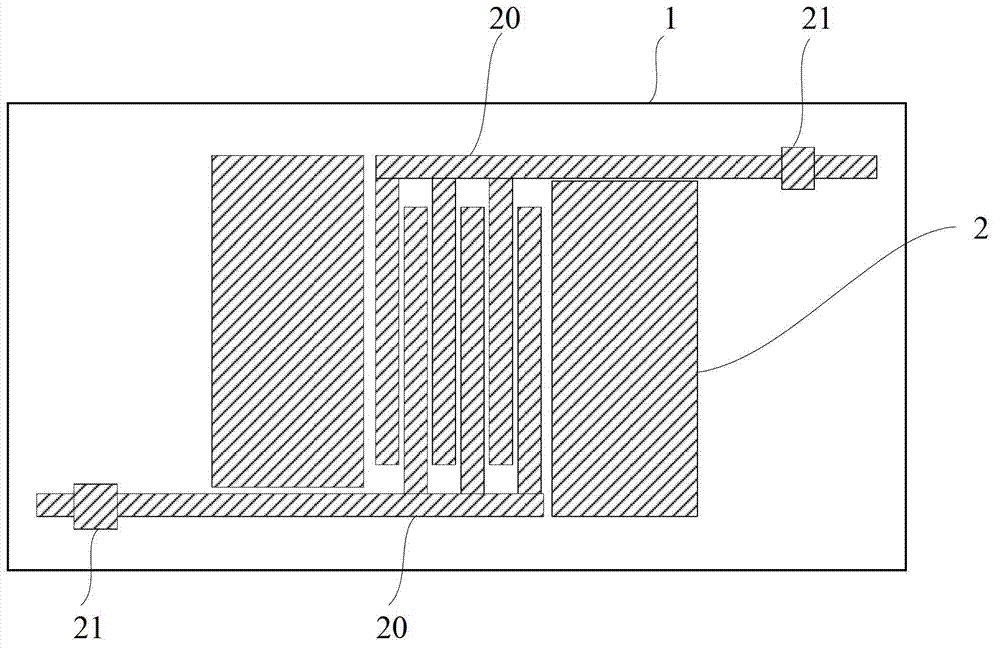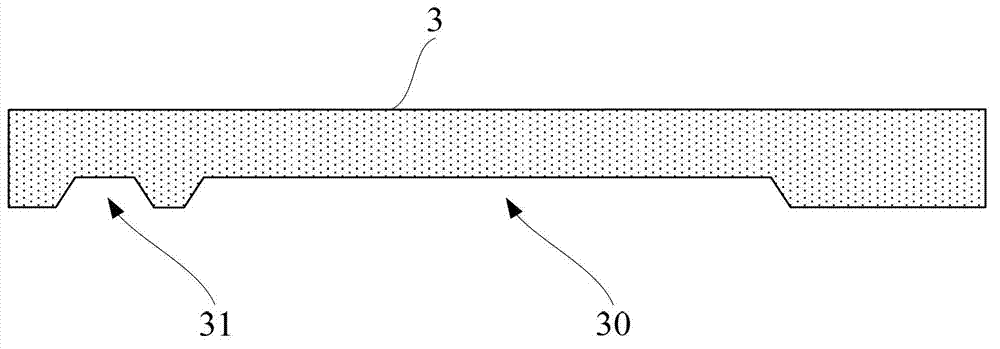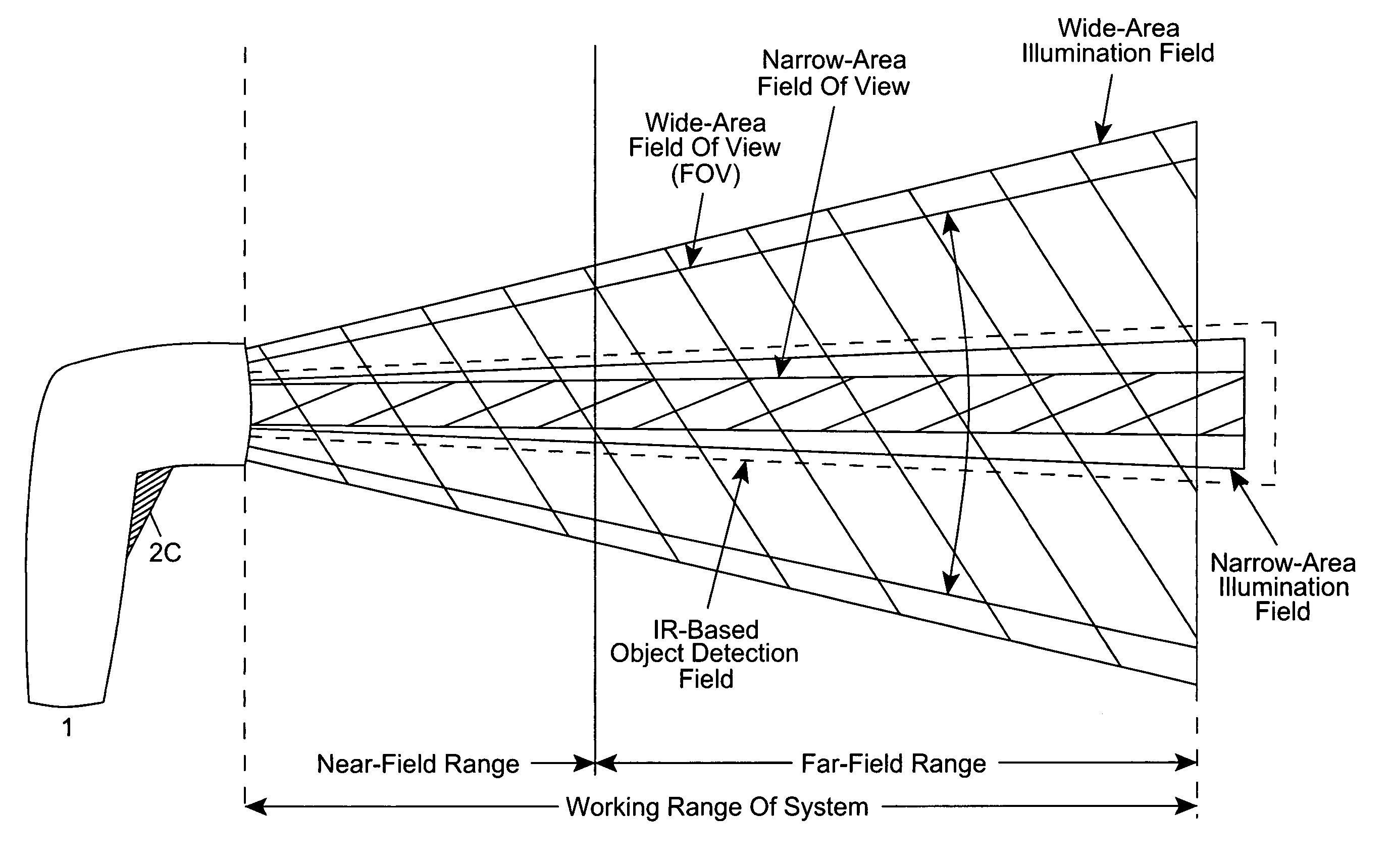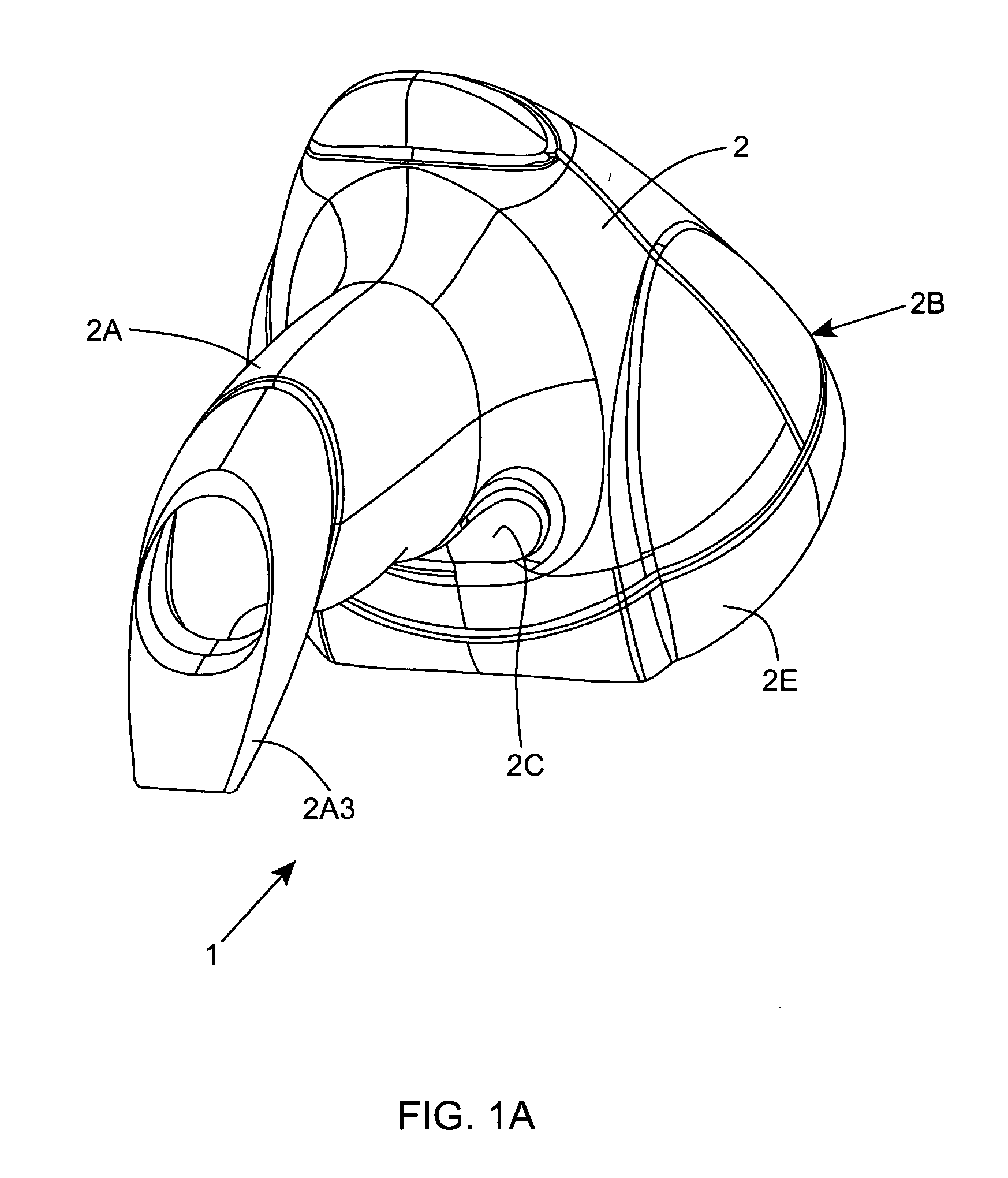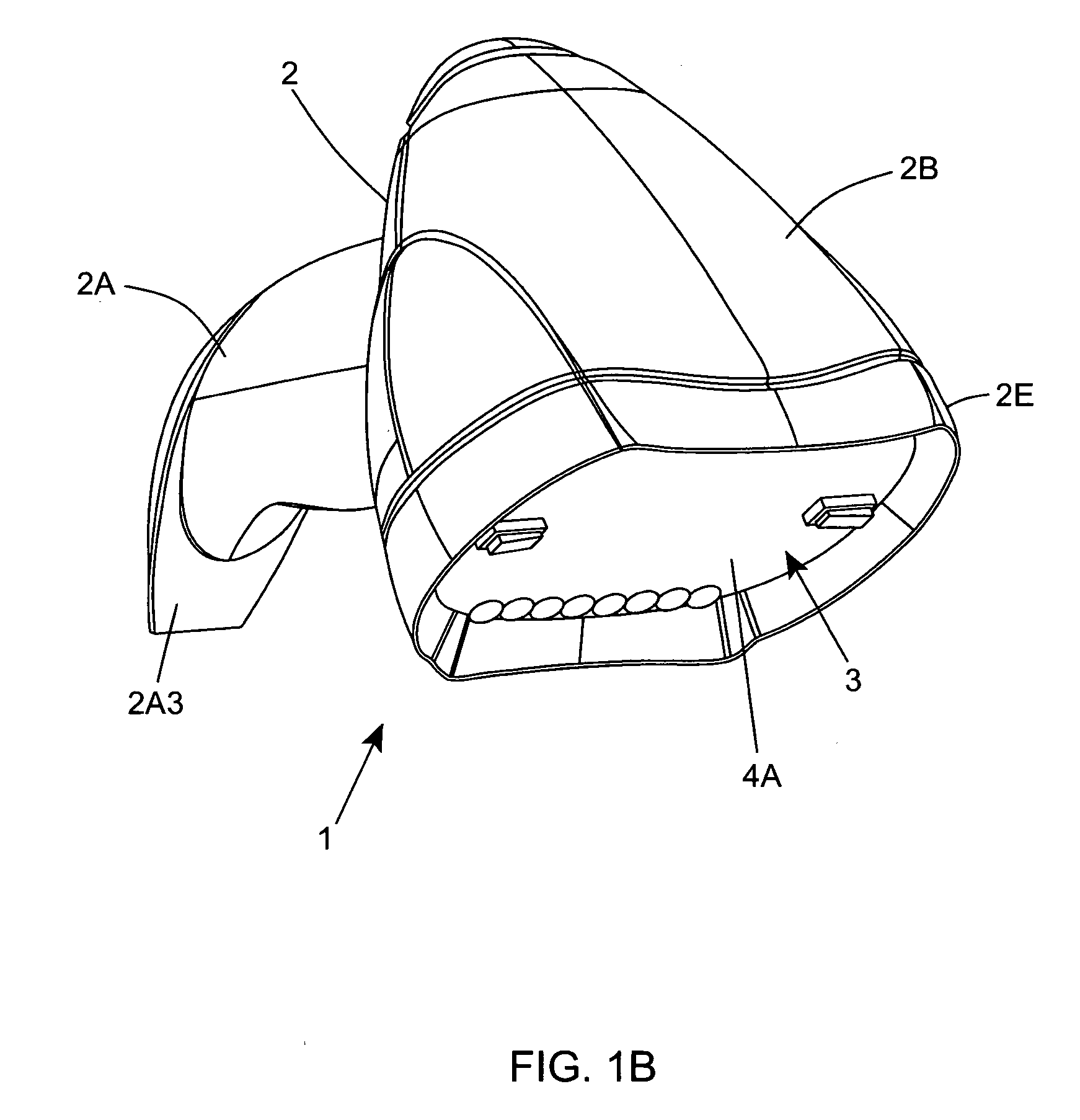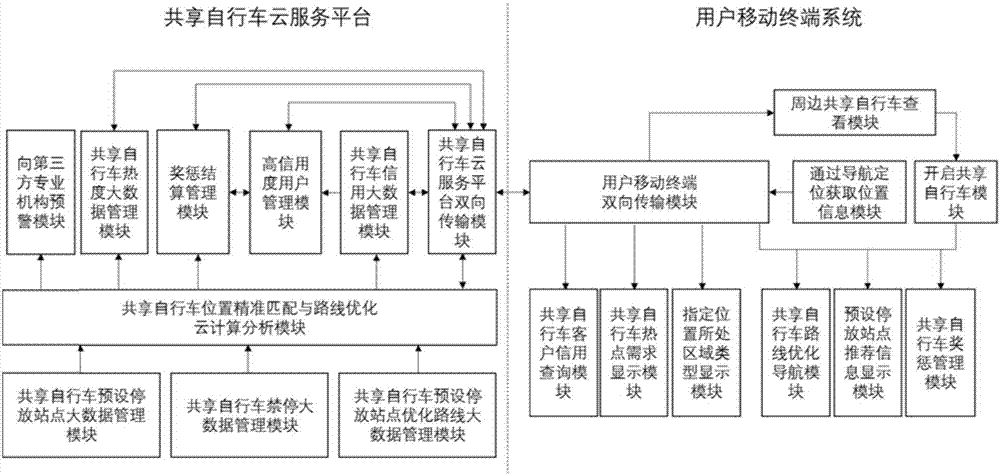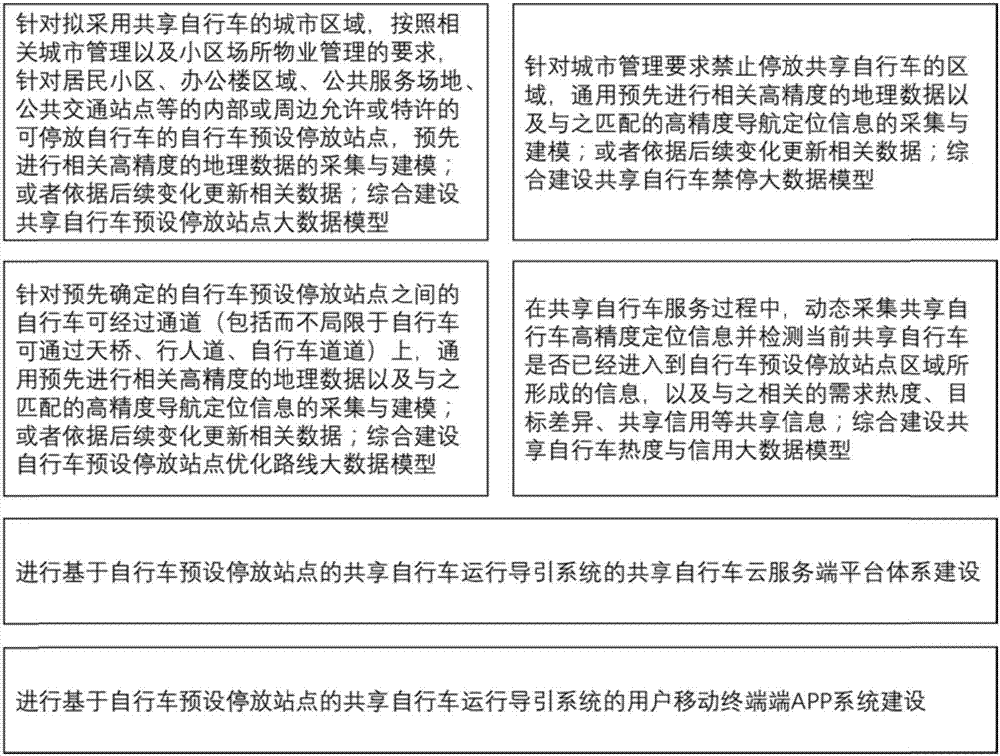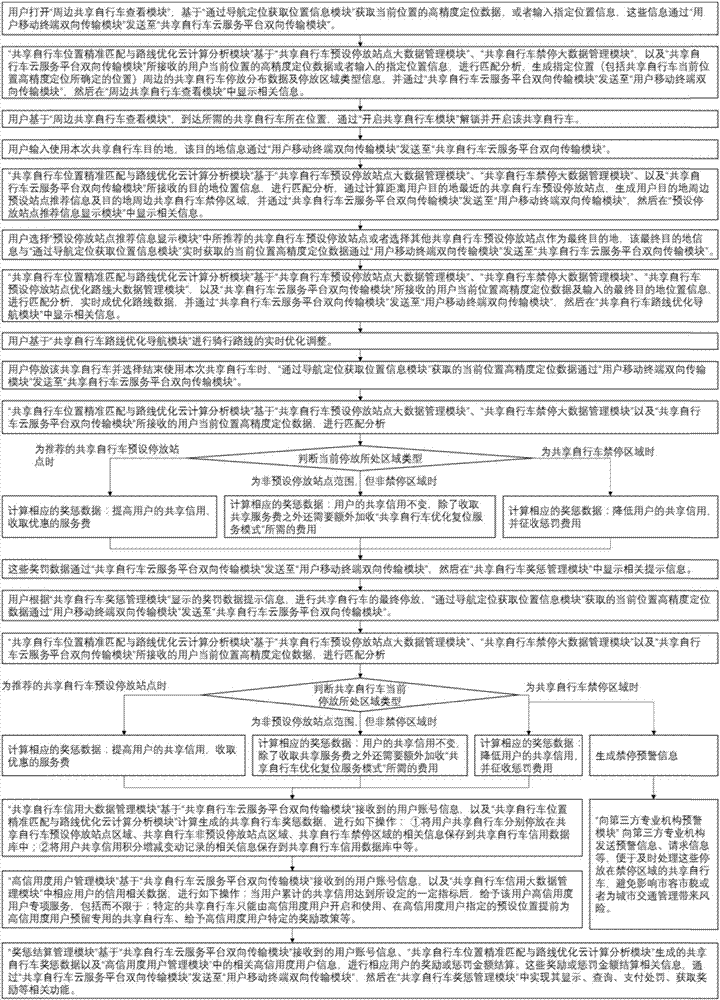Patents
Literature
274 results about "Area type" patented technology
Efficacy Topic
Property
Owner
Technical Advancement
Application Domain
Technology Topic
Technology Field Word
Patent Country/Region
Patent Type
Patent Status
Application Year
Inventor
Area types are an instance property of areas. Area types contain area measurement rules that Revit applies to area boundaries. Area type values come from the default area schemes: Gross Building and Rentable. The Gross Building area scheme has 2 area type values: Gross Building Area, and Exterior Area.
Digital image capture and processing system employing an image formation and detection system having an area-type image detection array supporting single snap-shot and periodic snap-shot modes of image acquisition during object illumination and imaging operations
ActiveUS20080277473A1Reliable speedTransmission systemsVisual representatino by photographic printingImage formationImage detection
A digital image capture and processing system including a housing having an imaging window, and an image formation and detection subsystem, disposed in the housing, having an area-type image detection array supporting a single snap-shot mode of image acquisition and a periodic snap-shot mode of image acquisition during object illumination and imaging operations. The system also includes an illumination subsystem, with an illumination array, for producing a field of illumination within the FOV, and illuminating the object detected in the FOV, so that the illumination reflects off the object and is transmitted back through the light transmission aperture and onto the image detection array to form the 2D digital image of the object. By virtue of its single and periodic snap-shot modes of operation, the digital image capture and processing system of the present invention has the capacity to support pass-through as well as presentation type methods of digital image capture and processing at demanding POS environments without the use of traditional video modes of image acquisition.
Owner:METROLOGIC INSTR
Hand-supportable imaging-based bar code symbol reader employing a multi-mode illumination subsystem enabling narrow-area illumination for aiming at a target object and illuminating aligned 1D bar code symbols during the narrow-area image capture mode, and wide-area illumination for illuminating randomly-oriented 1D and 2D bar code symbols during the wide-area image capture mode
ActiveUS20050103846A1Transmission systemsVisual representatino by photographic printingDigital imagingDistance detection
A hand-supportable Digital Imaging-Based Bar Code Symbol Reading Device comprises: an IR-based Object Presence and Range Detection Subsystem; a Multi-Mode Area-type Image Formation and Detection Subsystem having narrow-area and wide area image capture modes of operation; a Multi-Mode LED-based Illumination Subsystem having narrow-area and wide area illumination modes of operation; an Automatic Light Exposure Measurement and Illumination Control Subsystem; an Image Capturing and Buffering Subsystem; a Multi-Mode Image-Processing Bar Code Symbol Reading Subsystem; an Input / Output Subsystem; a manually-activatable trigger switch; a System Mode Configuration Parameter Table; and a System Control Subsystem integrated with each of the above-described subsystems. The bar code reading device can be configured and operated in numerous programmable modes of system operation to automatically read 1D and 2D bar code symbologies in a high-speed manner using advanced modes of image processing on captured images.
Owner:METROLOGIC INSTR
Method and system for site selection of base station
The invention discloses a method and system for site selection of a base station. The method comprises the following steps: obtaining parameter information of a preset type according to a networking type and a zone type of a target zone and introducing the obtained parameter information into a preset mathematical model to form a mathematical model of the target zone; selecting a preset number of sub sets from a candidate base station set of the target zone; and according to the mathematical model of the target zone, using an evolutionary algorithm to carry out solving on the selected of sub sets with the preset number, thereby obtaining a station site and configuration of a newly-established base station. According to the method and system for site selection of a base station, according to different geographical environments and networking types of different target zones, a TD-LTE network base station site and configuration are selected, wherein the TD-LTE network base station site and configuration correspond to the geographical environment of the target zone; and according to the selected base station site and configuration, the new base station is established. Therefore, the data traffic requirement with high bandwidth and high quality can be met; and a high-speed wireless broadband service can be provided for a large number of users.
Owner:GUANGDONG PLANNING & DESIGNING INST OF TELECOMM +1
Hand-supportable imaging-based bar code symbol reader employing a CMOS-type image sensor using global exposure techniques
A hand-supportable digital imaging-based bar code symbol reading device comprises: an automatic object presence and range detection subsystem; an area-type image formation and detection subsystem having a CMOS area-type image detection array, and narrow-area and wide area image capture modes of operation; an LED-based illumination subsystem having LED arrays, and narrow-area and wide area illumination modes of operation; an automatic light exposure measurement and illumination control subsystem; an image capturing and buffering subsystem; and an image-processing bar code symbol reading subsystem. The LED arrays associated with the LED-based illumination subsystem are automatically driven in a precise manner to globally expose the CMOS area-type image detection array with LED-based illumination only when substantially all of its rows of pixels are in a state of integration and have a common integration time, thereby enabling the image capturing and buffering subsystem to capture high quality images independent of the relative motion between the hand-supportable digital imaging-based bar code symbol reading device and the object.
Owner:METROLOGIC INSTR
Method and system for refining accuracy of location positioning
ActiveUS8295853B2High positioning accuracyShorten the timePosition fixationSatellite radio beaconingMobile deviceLocation determination
A method and system for accurately determining the location of the mobile device (10) is disclosed. In the mapping phase collected reference positioning data and collected cell data are used to map a covered area estimation and in the actual location determination phase the covered area estimation is calculated from actual environment data received through wireless cellular communication network (11, 12) and possibly but not necessarily from external databases (17, 19). The covered area estimation comprises at least some of the following calculations: (i) estimation of base station location, (ii) estimation of transmission range, (iii) estimation of signal map and (iv) estimation of area type. The actual location of the mobile device (10) is determined from the covered area estimation based on relative comparison between the actual environment data and estimations (i)-(iv) and weight numbers resulted from the comparison. During the both phases a database is stored in the server (14) and updated whenever new environment data is received.
Owner:GLOPOS FZC
Area type energy Internet and integrated optimization planning method thereof
InactiveCN106447122ANetworkingSystematizeForecastingSystems intergating technologiesState of artProcess engineering
The invention relates to an area type energy Internet and an integrated optimization planning method thereof. The area type energy Internet comprises local energy resources, distributed energy, production and consumption integrated energy and mutually connected area micro energy nets. The integrated optimization planning method comprises the following steps: 1, obtaining an area type energy Internet planning design database; 2, establishing an optimization mathematic model; 3, obtaining input variable parameter values needed by the optimization mathematic model from the area type energy Internet planning design database, solving the optimization model, and obtaining output data of decision variables; and 4, analyzing the output data of the decision variables to obtain a cooperation optimization result, wherein the cooperation optimization result comprises an optimal technological type selection and layout, an optimal equipment capacity, an optimal heat network layout and an optimal operation strategy. Compared to the prior art, the area type energy Internet and the integrated optimization planning method thereof overcome the defects of poor interaction between energy users and difficult supply-demand matching in the prior art and have the advantages of networking, systematization, high efficiency and the like.
Owner:SHANGHAI MUNICIPAL ELECTRIC POWER CO +2
Digital color image capture and processing module
ActiveUS20080173710A1Efficient deliveryAvoiding shortcoming and drawbackTicket-issuing apparatusExposure controlColor imageControl signal
A digital image capture and processing module for use with an Internet-based shipping, tracking and delivery network. The module includes a housing having a light transmission aperture with an optically transparent imaging window mounted thereover. A digital camera board supports an area-type color image sensing array, sensing array control electronics, and image capture and buffering electronics. An imaging lens assembly supported within said housing and having image forming optics with a field of view (FOV) on the area-type color image sensing array. A plurality of broad-band LEDs are supported within said housing for producing a field of broad-band illumination. A light focusing reflector is operably mounted for focusing the field of broad-band illumination. A digital image-processing subsystem supports image capture, processing and display functions, as well as digital image file transmission functions within the module. A system control subsystem controls and / or orchestrates the operation of components within the module; and a plurality of mode selection buttons are provided on the housing so that, upon depression, control signals are generated and are to the system control subsystem.
Owner:METROLOGIC INSTR +1
High-resolution remote-sensing multifunctional urban land spatial information generation method
The invention discloses a high-resolution remote-sensing multifunctional urban land spatial information generation method. According to the method, a complex system rank theory is introduced; an urban land spatial information classification system with three rank scales, i.e. a multifunctional target landscape type, a functional area type and a land cover type, which self-adapts to urban planningmanagement and environmental renovation, is proposed; and on the basis of realizing the treatment of fine correction and alignment on remote-sensing images of a Landsat TM, a Google Earth and auxiliary maps, the Landsat TM is applied to carrying out urban landscape type classification, a three-level rank classification type-merged combination and an information mining knowledge base are constructed, the classified information is merged to form a first-level classification result of urban land, the digital functional areas are classified into a second level and the land cover is classified into a third level under the constrained control of higher-level classification information. The method has the characteristics of low cost, high accuracy of classification and strong targeted application, and thus, the requirements on target applications, such as ecological urban design, urban environmental management and the like, are better met.
Owner:INST OF GEOGRAPHICAL SCI & NATURAL RESOURCE RES CAS
Tracking vehicle locations in a parking lot for definitive display on a GUI
ActiveUS7957900B2Ameliorate or eliminateHigh positioning accuracyAnti-theft devicesIndication of parksing free spacesData libraryArea type
Owner:CHOWDHARY GAURAV +1
Method and system for refining accuracy of location positioning
ActiveUS20100120449A1High positioning accuracyShorten the timePosition fixationSatellite radio beaconingMobile deviceLocation determination
A method and system for accurately determining the location of the mobile device (10) is disclosed. In the mapping phase collected reference positioning data and collected cell data are used to map a covered area estimation and in the actual location determination phase the covered area estimation is calculated from actual environment data received through wireless cellular communication network (11, 12) and possibly but not necessarily from external databases (17, 19). The covered area estimation comprises at least some of the following calculations: (i) estimation of base station location, (ii) estimation of transmission range, (iii) estimation of signal map and (iv) estimation of area type. The actual location of the mobile device (10) is determined from the covered area estimation based on relative comparison between the actual environment data and estimations (i)-(iv) and weight numbers resulted from the comparison. During the both phases a database is stored in the server (14) and updated whenever new environment data is received.
Owner:GLOPOS FZC
Designated-driving order predicting method and designated-driving transport capacity scheduling method
ActiveCN105373840AReduce in quantityImprove accuracyReservationsBiological neural network modelsNerve networkAlgorithm
The invention discloses a designated-driving order predicting method and a designated-driving transport capacity scheduling method which can be used for airports. The designated-driving order predicting method comprises the steps of: establishing a history order database of each airport; carrying out area clustering on the airports according to order change similarity; carrying out time interval clustering on a plurality of basic time intervals according to order numbers in the basic time intervals of each area type so as to form different order prediction basic time intervals of each area type; extracting a corresponding order number and change factors in each order prediction basic time interval of each area type, adopting a BP nerve network to carry out non-linear fitting, and enabling each order prediction basic time interval of each area type to obtain a different order prediction model; and when an order prediction request is received, according to the request area type and order prediction basic time interval, selecting the corresponding order prediction model, and by combined with the change factors, predicting an order number. By adopting the designated-driving transport capacity scheduling method, a reasonable driver distribution scheme is generated according to the order prediction result.
Owner:SHENZHEN TIANHANGJIA TECH CO LTD
Method and system for refining accuracy of location positioning
ActiveUS20130079039A1Location determination can be fasterAccurate measurementPosition fixationSatellite radio beaconingEngineeringMobile device
To accurately determine the location of mobile device a multi-phase procedure incorporating mapping and location determination phases is suggested, wherein covered area estimation comprises (i) estimation of base station location, (ii) estimation of transmission range, (iii) estimation of signal map and / or (iv) estimation of area type. The actual location of the mobile device (10) is determined from the covered area estimation based on relative comparison between the actual environment data and estimations (i)-(iv) and weight numbers resulted from the comparison. During the both phases a database is stored in server (14) and updated whenever new environment data is received. The vertical position, or ‘elevation’, of mobile device is further estimated based on vertical level information associated with the covered area estimations during the mapping phase.
Owner:GLOPOS FZC
Water surface optical visual image target area detection method based on gradient information fusion
InactiveCN103927751AMeet real-time requirementsSave time resourcesImage analysisImaging processingSlide window
The invention provides a water surface optical visual image target area detection method based on gradient information fusion. The water surface optical visual image target area detection method based on gradient information fusion adopts two sliding window modes and calculates the longitudinal gradient and the transverse gradient of a water surface optical visual image. The information of the two gradients is fused, the position of an area is marked through a connected component detection method, and the target area is marked according to the final boundary of a target. The water surface optical visual image target area detection method based on gradient information fusion combines sea boundary area characteristics of the water surface image, respectively extracts target boundary information in the longitudinal gradient and the transverse gradient directions of the water surface optical image, determines the attribute of the sea boundary line and division of an image processing space, determines the area type attribute of the target boundary according to the fused information, and finishes scanning and classification of pixels according to the property of the boundary. As the water surface optical visual image target area detection method based on gradient information fusion fuses the information in the two gradient directions by combining the characteristics of the sea boundary lines, reduces the range of the processing area, reduces influence from noise, avoids calculation and processing of the whole image space, and saves calculation time.
Owner:HARBIN ENG UNIV
Service feature based communication service forecasting method
ActiveCN103024762AEliminate the effects ofImprove accuracyNetwork planningBusiness forecastingData mining
The invention relates to the technical field of communication and discloses a service feature based communication service forecasting method. The method includes following steps: S1, preprocessing service volume data to be forecast; S2, subjecting the service volume data after being preprocessed to sample construction, sample generalization and sample screening; S3, clustering the service volume data after being processed in the S2 according to service feature of samples to obtain a forecasting model of the service volume data with multiple area types; S4, performing service forecasting to the service volume data of each area type, and estimating network areas where the service volume data are positioned; S5, estimating network resources needed in the network areas; and S6, comparing the estimated network resources with existing network resources in the network areas, and performing network plan optimization according to comparison results. By the service feature based communication service forecasting method, sudden factors influencing the service volume data are smoothed, and influences, of smoothing, on forecasting results are eliminated after forecasting, so that forecasting accuracy is improved.
Owner:BEIJING UNIV OF POSTS & TELECOMM
Adaptive video prefilter
InactiveUS20050063475A1Reduce noiseReduce bitrateTelevision system detailsColor television with pulse code modulationPattern recognitionData signal
A method for adaptively filtering a video signal prior to encoding is provided. The method initiates with calculating a local gradient indicative of a region type. Then, a weight factor is determined based upon the local gradient. Next, the weight factor is applied to a difference signal according to the region type. A computer readable media, an integrated circuit and a system for processing an image data signal are also provided.
Owner:SEIKO EPSON CORP
Variable display area type display device
InactiveUS8842425B2Increased durabilityMaximize useSubstation equipmentDetails for portable computersDisplay deviceArea type
Owner:RYU SANG KYU
Bionic hair sensor for flow velocity, acceleration and angular velocity sensitivity
ActiveCN104459181ARealize measurementEasy to digitizeFluid speed measurementDevices characerised by mechanical meansSensor arrayCapacitance
The invention relates to a bionic hair sensor for flow velocity, acceleration and angular velocity sensitivity. The bionic hair sensor comprises top hair, a middle silicon micro sensor structure and a bottom signal lead manufactured on a glass substrate. The top hair can drive an outer frame in the silicon micro sensor structure to swing left and right. The negative stiffness effect principle of electrostatic force is used for detecting the acceleration and the flow velocity. A sensor array mode is used for distinguishing the detection of the acceleration and detection of the flow velocity. When external input is acceleration input, all the sensors can be subjected to action to generate torque. Two sub-structures in the silicon micro sensor structure are of gyroscope structures and are used for detecting the external angular velocity, the two sub-structures are arranged in left-and-right symmetry and are two times of a single gyroscope in terms of output signals, a variable-area type capacitor is used for detection, and the interference on detection by the driving movement is relieved.
Owner:SOUTHEAST UNIV
Feature information management apparatuses, methods, and programs
ActiveUS20080240506A1Reduce processing loadEfficient executionInstruments for road network navigationPhotogrammetry/videogrammetryPattern recognitionTypes of road
Apparatuses, methods and programs store a plurality of target types, each target type having recognition attribute information indicating the likelihood that the target type will be recognized based on a type of road or a type of area. The apparatuses, methods and programs acquire vehicle position information indicating a current position of a vehicle, acquire image information in the vicinity of the vehicle, and acquire road attribute information about a road on which the vehicle is traveling, the road attribute information acquired based on the vehicle position information. The apparatuses, methods and programs determine a target type defining a target for image recognition within the image information, the target type being determined based on the acquired road attribute information and the stored recognition attribute information, and perform image recognition of a target feature included in the image information, the target feature being of the determined target type.
Owner:AISIN AW CO LTD
Method and device for removing glasses from human face image, and method and device for wearing glasses in human face image
ActiveCN102163289AReduce varianceRealize natural splicingCharacter and pattern recognitionUses eyeglassesPrincipal component analysis
The invention provides a method and a device for removing glasses from a human face image, and a method and a device for wearing the glasses in the human face image. The removal method comprises the following steps of: acquiring a glasses-worn eye area image and a non-eye area image from a glasses-worn human face image; matching the glasses-worn eye area image by using a classifier to acquire a corresponding eye area type, wherein the classifier is used for multiple types of eye areas which are constructed according to glasses-free human face image samples, and the multiple types of eye areas are classified according to eye shapes; acquiring a base vector corresponding to the eye area type, wherein the base vector is acquired by performing principal component analysis (PCA) study aiming at the sample of the eye area type; mapping the glasses-worn eye area image to the base vector, and reconstructing to acquire a glasses-free eye area image; and splicing the non-eye area image with the glasses-free eye area image to acquire a glasses-removed human face image. By the method, the glasses can be relatively effectively removed from the human face image.
Owner:重庆中星微人工智能芯片技术有限公司
Method and apparatus for processing image data
InactiveUS20050280867A1Solve problemsImage enhancementDigitally marking record carriersPaper documentDocument preparation
An apparatus includes: a reading unit that obtains image data by reading a document through a reading glass; a detecting unit that detects a dirty place on the reading glass; a determining unit that determines a type of each area in the image data; an edge enhancing unit that applies an edge enhancement to each area based on the type determined; and a control unit that controls, when the type of an area determined is a text area, and when the area overlaps the dirty place detected, an amount of the edge enhancement for the area.
Owner:RICOH KK
Hand-supportable imaging-based bar code symbol reader employing a tri-mode led-based illumination subsystem
ActiveUS20050103858A1Sensing by electromagnetic radiationOptical elementsDigital imagingImaging processing
A hand-supportable digital imaging-based bar code symbol reading device comprises: an ir-based object presence and range detection subsystem; a multi-mode area-type image formation and detection subsystem having a field of view (FOV) and narrow-area and wide area image capture modes of operation; a multi-mode LED-based illumination subsystem having narrow-area and wide area illumination modes of operation; an automatic light exposure measurement and illumination control subsystem; an image capturing and buffering subsystem; an image-processing bar code symbol reading subsystem; and a system control subsystem. The LED-based multi-mode illumination subsystem produces three different fields of LED-based illumination in automatic response to the detection of different conditions within the FOV, by the automatic object presence and range detection subsystem.
Owner:METROLOGIC INSTR
Defect two-dimensional morphology imaging detection method based on multi-mode acoustic beam synthetic aperture focusing
ActiveCN106770669ARealize automatic real-time imagingHigh engineering applicationAnalysing solids using sonic/ultrasonic/infrasonic wavesSonificationElectron
The invention discloses a defect two-dimensional morphology imaging detection method based on multi-mode acoustic beam synthetic aperture focusing, belonging to the technical field of nondestructive testing. According to the method, a phased array ultrasonic detector, a phased array ultrasonic probe and a phased array ultrasonic detection system of an oblique wedge block are adopted; and signal acquisition of a detected test block is performed by the electronic scanning function of the phased array ultrasonic detector to obtain A-scanning signal of each aperture of the phased array ultrasonic probe. According to different mode conversion types of excitation acoustic beam of each aperture on the interface between the wedge block and test block, at the bottom of the test block and on the defect surface, proper multi-mode acoustic beam is selected from 8 acoustic beam transmission modes. Based on SAFT imaging principle and Fermat's theorem, the transmission delay of the multi-mode acoustic beam of each aperture is calculated, and amplitudes are overlapped to obtain a reconstructed SAFT image, thus realizing complete representation of defect two-dimensional morphology features. The invention can realize correct recognition of volume type and area type defects so as to realize accurate quantification of defect length, depth and orientation, and has relatively high engineering application value.
Owner:DALIAN UNIV OF TECH
Underground coal mining area type non-excavation-roadway and non-chain-pillar coal mining method
InactiveCN106121646ASave excavation costsShorten tunneling timeUnderground miningSurface miningCoal pillarMineralogy
The invention discloses an underground coal mining area type non-excavation-roadway and non-chain-pillar coal mining method. The coal mining method has the main characteristics that a range suitable for non-excavation-roadway and non-chain-pillar coal mining is assigned, three mining roadways and an end-mining working face ventilation roadway are excavated from a development roadway opening, and the three mining roadways are communicated to form a preparation roadway and a ventilation system for mining areas. The coal mining method comprises the following steps that a working face transportation roadway and a cutting hole of a first working face are excavated to form a first working face mining roadway, and production systems are arranged; the first working face is mined, and a working face ventilation roadway with a certain width is reserved by adopting a gob-side entry retaining technology to be as a second working face transportation roadway; and a third working face mining roadway is formed after a second working face is mined, and subsequent working faces are sequentially mined. Non-excavation-roadway and non-chain-pillar mining is realized. After mining area mining is completed, the three mining roadways can serve for adjacent mining areas and are repeatedly used.
Owner:中煤西安设计工程有限责任公司
Variable display area type display device
InactiveUS20120200991A1Reducing and expanding display sizeIncreased durabilityDetails for portable computersSubstation equipmentDisplay deviceArea type
The present invention relates to a variable display area type display device having a structure which can selectively extend or reduce a display area. The present invention comprises: a base plate having a foldable body; a display unit which is installed on one surface of the base plate and in which the display area is folded and changed by the folding of the base plate; and a plate supporting member for supporting the base plate before or after the folding of the base plate.
Owner:RYU SANG KYU
Pixel type based objective assessment method of image quality by utilizing structural similarity
The invention discloses a pixel type based assessment method of image quality by utilizing structural similarity, comprising the following steps: (1) computing gradients of the reference map and the assessment map by the Canny method, simultaneously obtaining two thresholds representing the strong and weak boundaries of the image gradient values, dividing each pixel position in the image into marginal, texture and flat regions and establishing the regional weight map (RWM) with different weights in different pixel region types; (2) comparing the brightness, contrast and gradient structural similarity of the reference map and the assessment map to obtain the gradient structural similarity (GSSIM) index; and (3) carrying out point multiplication on the RWM and the GSSIM obtained in the steps (1) and (2) to obtain the degeneracy information index map with different weights in different pixel regions and obtaining the mean of the map to obtain the assessment value for assessing the image quality. The method can be widely applied to each stage of image processing, can rapidly give the specific index value for measuring the image quality and is high in accuracy and strong in practicability.
Owner:ZHEJIANG UNIV
Urban impervious layer rate information extraction method based on multi-source remote sensing data
ActiveCN103824077AReduce adverse effectsImprove bindingCharacter and pattern recognitionWater layerArea type
The invention discloses an urban impervious layer information extraction method based on multi-source remote sensing data. The method comprises the following steps: calculating normalized light brightness and performing area type segmentation on the urban surface based on a threshold segmentation method according to a night light brightness image; constructing enhanced normalized impervious layer indexes by utilizing the light brightness, the land surface temperature and normalized soil regulation vegetation indexes; and performing extraction operation on the impervious layer by constructing a linear quantitative relation between the enhanced normalized impervious layer indexes MNDISI in each type segmentation area and the impervious layer rate. The advantages of the multi-source remote sensing data are well combined, an adverse effect of spectral confusion on an estimation result of the impervious layer rate is effectively inhibited, and a novel way is provided for urban land utilization and environmental change monitoring.
Owner:WUHAN UNIV
Wireless sensor network node coverage optimization method based on Voronoi diagram for blind area
ActiveCN104159236AIncrease coverageGuaranteed uniformityNetwork topologiesNetwork planningLine sensorNODAL
The invention applies a Voronoi diagram to wireless sensor network node coverage optimization and provides a coverage mechanism based on a Voronoi diagram blind area type new arithmetic. The coverage mechanism is used for providing an optimal solution to a problem of the wireless sensor network node coverage. The problem of the wireless sensor network node coverage is defined as a problem of disk coverage, a wireless sensor is idealized, and the position of a sensor node is regarded as a center of circle, thereby sensing a standard circle with a radius. By means of the Voronoi diagram, an area under monitoring is divided into multiple Voronoi units; a method of removing nodes in the Voronoi units one by one is adopted; and newly-generated geometric centers of the Voronoi units are calculated. A result is assessed by comparing "coverage rate", "node distribution uniformity" and "coverage efficiency" of the area (in order to prevent experimental chance, repeat operation for 30 times and then take the average). Through simulation experiments, validity and high effectiveness of the algorithmic provided by the invention are verified.
Owner:JIANGNAN UNIV
Differential capacitive micro-acceleration transducer and manufacturing method thereof
ActiveCN102778586AIncrease stiffnessSize stiffnessDecorative surface effectsAcceleration measurementTransducerEngineering
The invention discloses a differential capacitive micro-acceleration transducer and a manufacturing method thereof. According to the method, the manufacturing of a movable mass block and an elastic beam is completed by using a bulk-silicon process, and the structure manufacturing and the releasing of a device structure are simultaneously completed by using a dry etching method; a movable electrode and the movable mass block are same in shape and size, so that an operation of repeated photoetching is avoided, thereby greatly simplifying the process; the stiffness of the designed elastic beam is small in the sensitive direction and large in the sensitive vertical direction, therefore, the elastic beam is higher in selectivity and anti-crosstalk capacity; and a device is simply and reliably packaged by using a wafer-level low-temperature vacuum aligned-bonding technology, thereby facilitating the large-scale manufacturing of the device. In addition, the differential capacitive micro-acceleration transducer disclosed by the invention adopts a variable-area type operating principle, so that the movable mass block is only damped by a sliding membrane in the process of moving, thereby improving the sensitivity.
Owner:SHANGHAI INST OF MICROSYSTEM & INFORMATION TECH CHINESE ACAD OF SCI
Hand-supportable imaging-based bar code symbol reader employing a multi-mode image-processing based bar code reading subsystem with modular image-processing architecture
ActiveUS20050103866A1Projector focusing arrangementCamera focusing arrangementDigital imagingHand held
A hand-supportable digital imaging-based bar code symbol reading device comprises: an IR-based object presence and range detection subsystem; a multi-mode area-type image formation and detection subsystem having narrow-area and wide area image capture modes of operation; a multi-mode LED-based illumination subsystem having narrow-area and wide area illumination modes of operation; an automatic light exposure measurement and illumination control subsystem; an image capturing and buffering subsystem; a multi-mode image-processing bar code symbol reading subsystem; an input / output subsystem; a manually-activatable trigger switch; and a system control subsystem integrated with each of the above-described subsystems. The multi-mode image-processing based bar code reading subsystem has a modular image-processing architecture constructed from four major image processing modules, namely: a tracker module, a finder module, a marker module, and a decoder module. These image processing modules enable the multiple modes of operation of the multi-mode image-processing based bar code reading subsystem.
Owner:METROLOGIC INSTR
Shared bicycle controlled site map and location and service big data system
ActiveCN107154006APrecise optimization serviceReduce parkingInstruments for road network navigationData processing applicationsData systemBig data management
The invention provides a shared bicycle controlled site map and location and service big data system comprising a shared bicycle cloud service platform. The shared bicycle cloud service platform comprises a preset parking site big data management module, a no-parking big data management module, a preset parking site optimization route big data management module, a cloud computing analysis module, a third-party professional organization oriented warning module, a popularity big data management module, a high-credit user management module, a credit big data management module, and a cloud service platform two-way transmission module. A user mobile terminal system comprises a user mobile terminal two-way transmission module, a surrounding check module, a start module, a navigation positioning location information acquisition module, a customer credit query module, a hotspot demand display module, and a specified location area type display module. The system can overcome the problem that precise demand popularity guidance and restriction cannot be realized due to low precision of shared bicycle parking sites and routes.
Owner:陈树铭
Features
- R&D
- Intellectual Property
- Life Sciences
- Materials
- Tech Scout
Why Patsnap Eureka
- Unparalleled Data Quality
- Higher Quality Content
- 60% Fewer Hallucinations
Social media
Patsnap Eureka Blog
Learn More Browse by: Latest US Patents, China's latest patents, Technical Efficacy Thesaurus, Application Domain, Technology Topic, Popular Technical Reports.
© 2025 PatSnap. All rights reserved.Legal|Privacy policy|Modern Slavery Act Transparency Statement|Sitemap|About US| Contact US: help@patsnap.com
